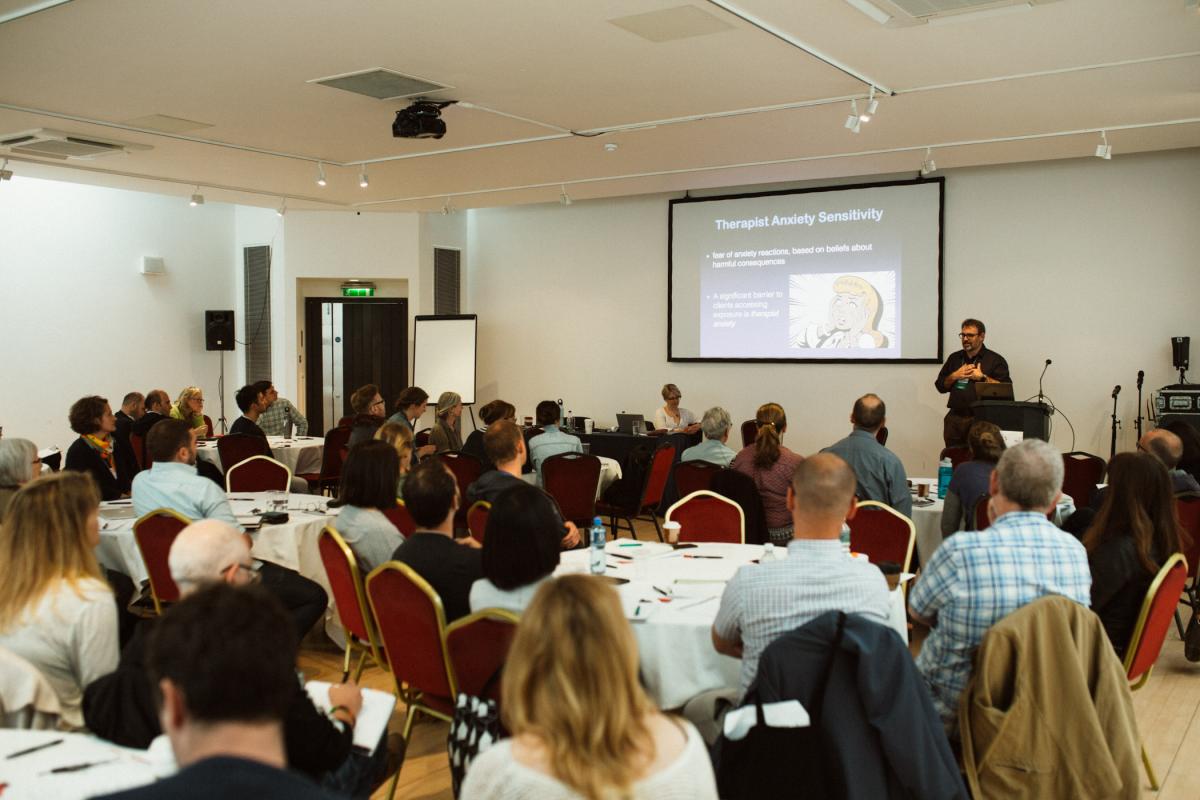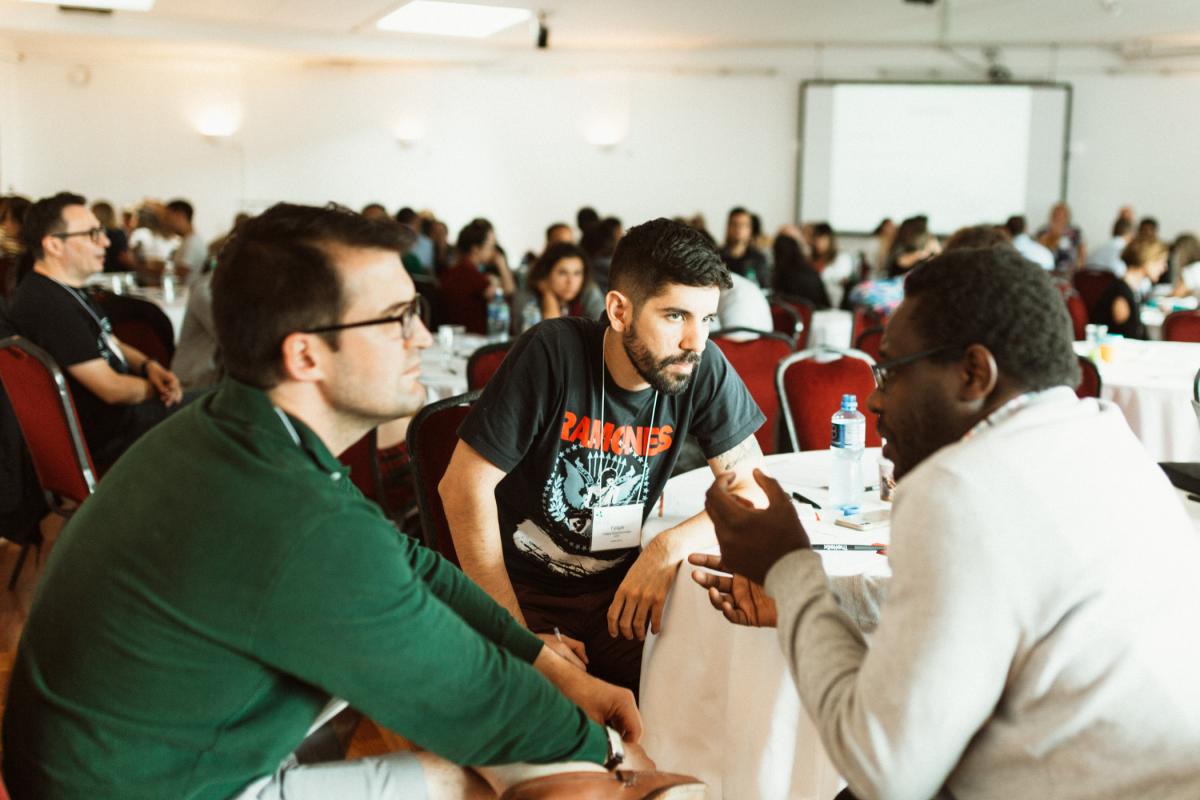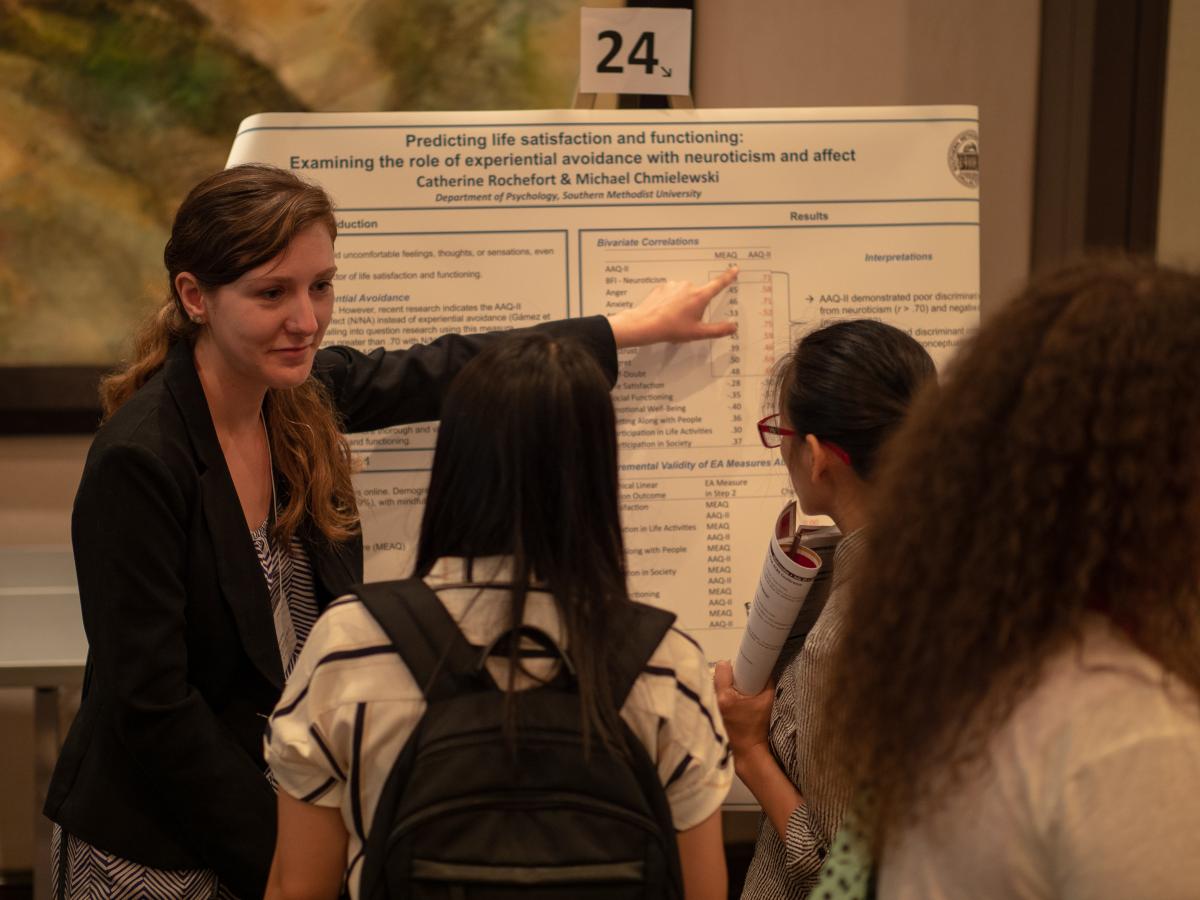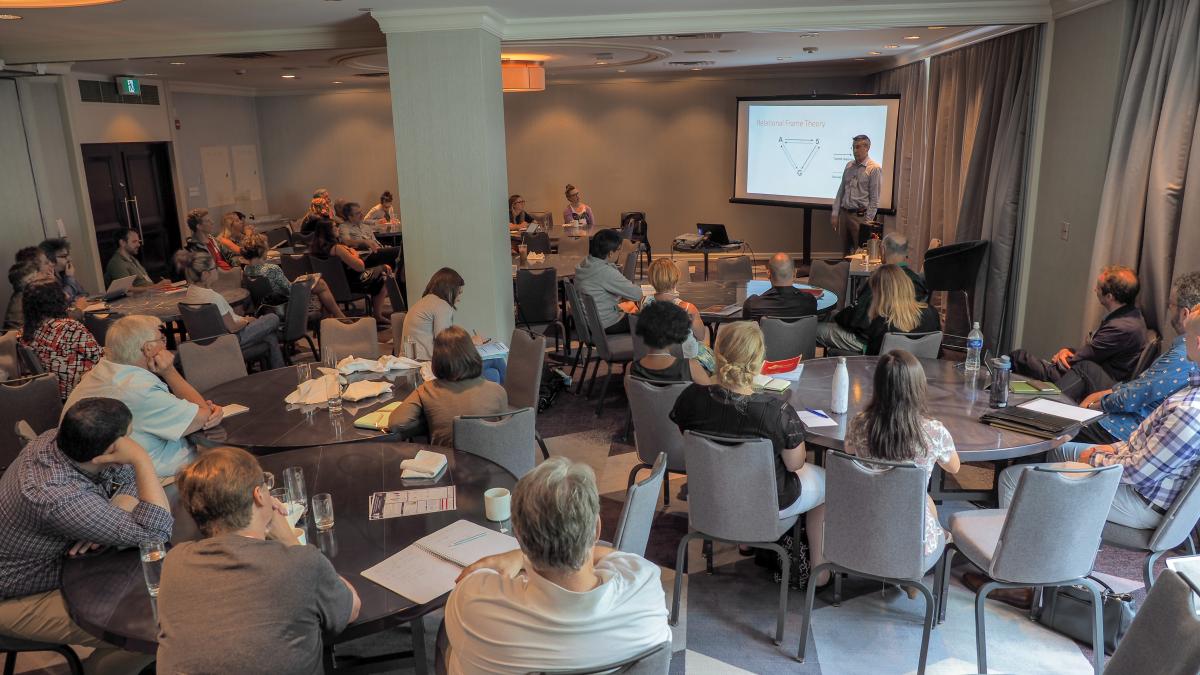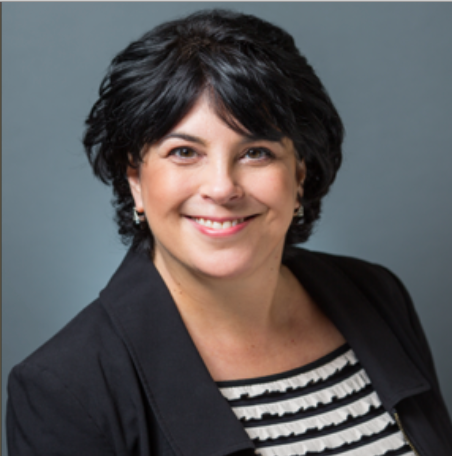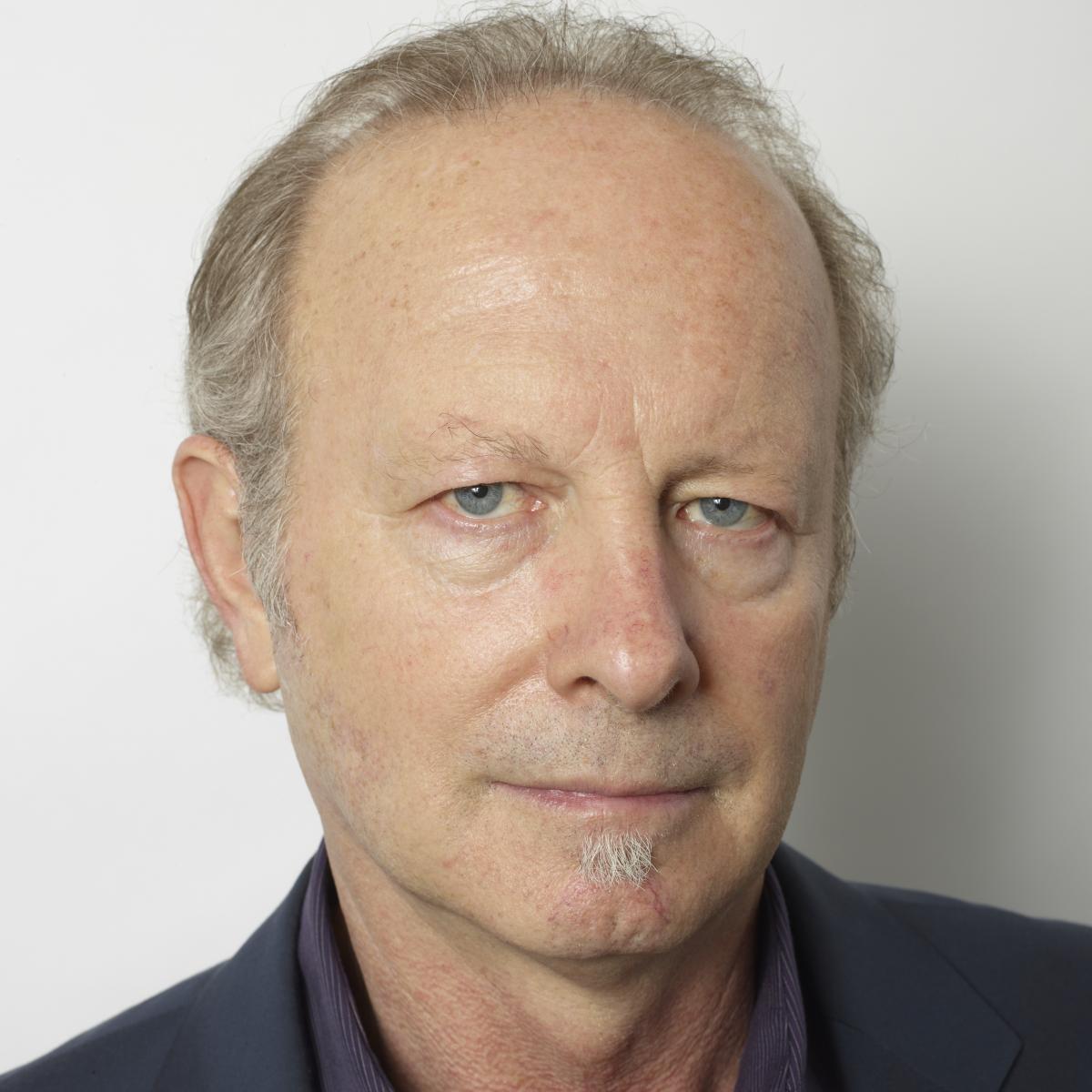ACBS World Conference 18 - New Orleans, USA, July 14-19, 2020
ACBS World Conference 18 - New Orleans, USA, July 14-19, 2020COVID-19 Latest Conference Information - Click here
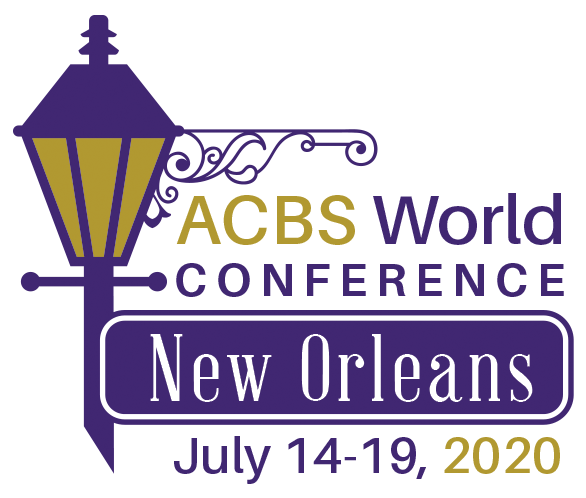
Visit our 2020 our Online Event page!
Our IN PERSON event in New Orleans has now been officially cancelled. Please join us online this summer!
What is the World Conference?
The World Conference brings together clinicians and researchers to present cutting-edge research in, among other modalities, Acceptance and Commitment Therapy (ACT), Relational Frame Theory (RFT), and Contextual Behavioral Science, as well as experienced trainers to lead experiential workshops so that you can learn how to better serve your clients.
The World Conference welcomes psychologists, social workers, professional counselors, marriage and family therapists, psychiatrists, physicians, drug counselors, health researchers, language researchers, behavior analysts, teachers, organizational psychologists, students and more.... Anyone in a similarly related helping or research field is invited to attend.
Registration in the full conference includes lunch, coffee/tea breaks, open access to workshops, research symposia, posters, panel discussions, plenary sessions with CBS researchers and practitioners, and our IGNITE sessions.
Register your interest in the conference here and we'll send you notifications when things like Call for Submissions, Registration, and the program are available.
Pre-Conference intensive, 2 day workshops: July 14-15, 2020
Conference kick off: evening July 15, 2020
Conference sessions: July 16-19, 2020 (concluding at noon on July 19)
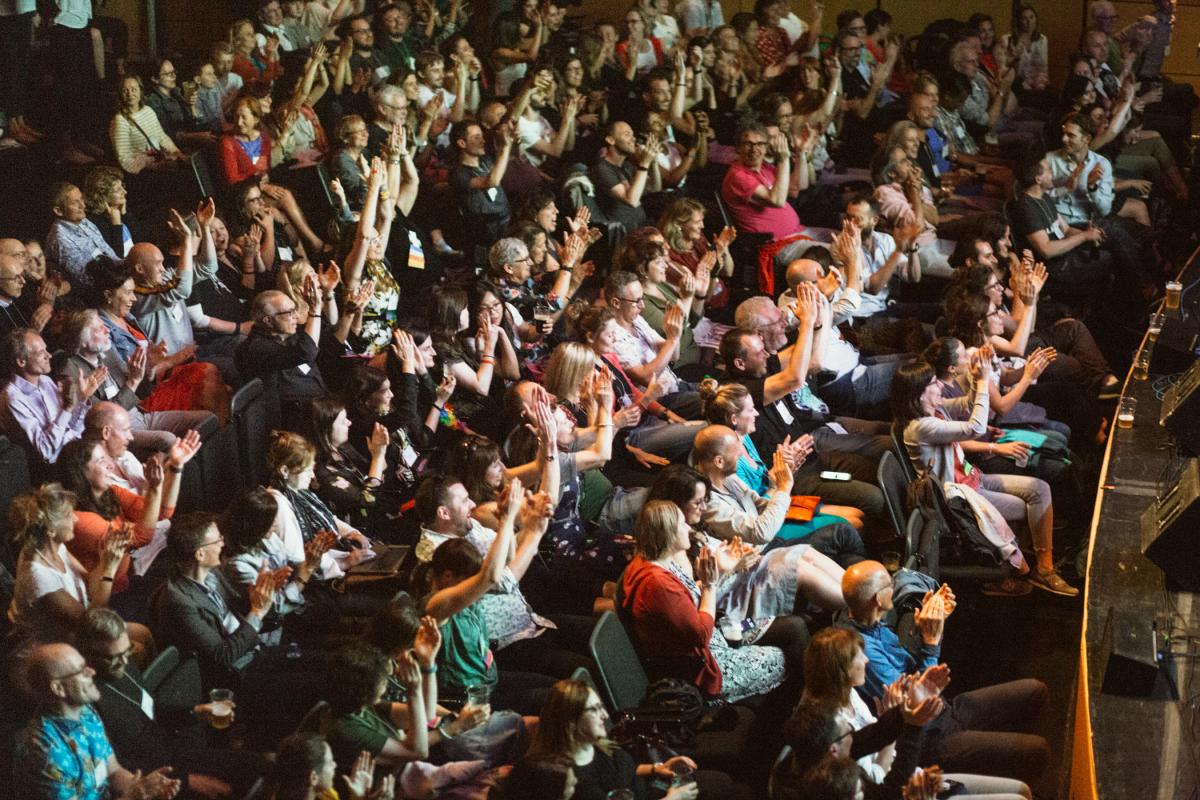
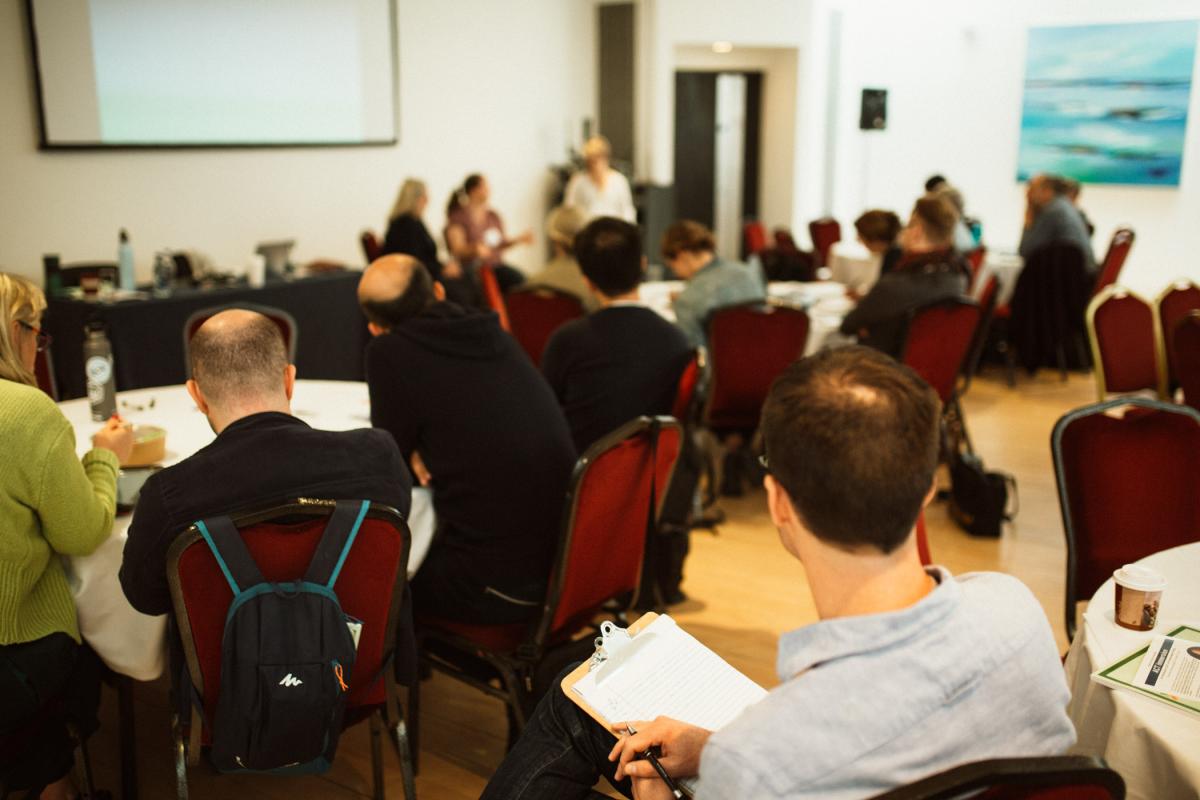
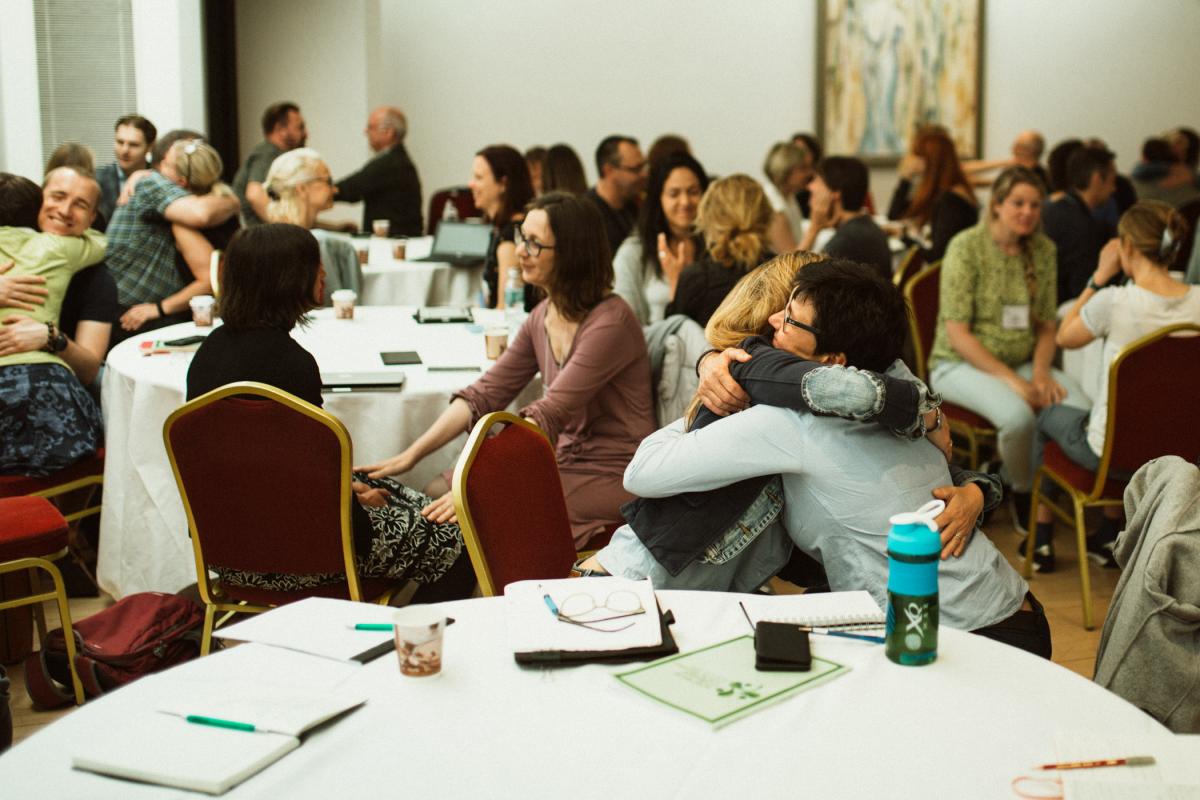
Call for Submissions is Closed
Registration - suspended
Registration is suspended pending potential changes to this year's program and delivery format.
Conference Highlights
- Confirmed speakers: Hannah Bockarie, Amanda Diekman, Patrick Friman, Michele Gelfand, Joseph LeDoux, Akihiko Masuda, Caio Miguel, Siri Ming, Graciela Rovner, Emily Sandoz, Dennis Tirch
- Lunches and coffee/tea are included so that you have more time to network.
- Hosted at the Sheraton New Orleans Hotel.
- Workshops, Workshops, Workshops. Half-day workshops are included (no extra charge), with your conference registration. These 30+ workshops are one-of-a-kind learning opportunities.

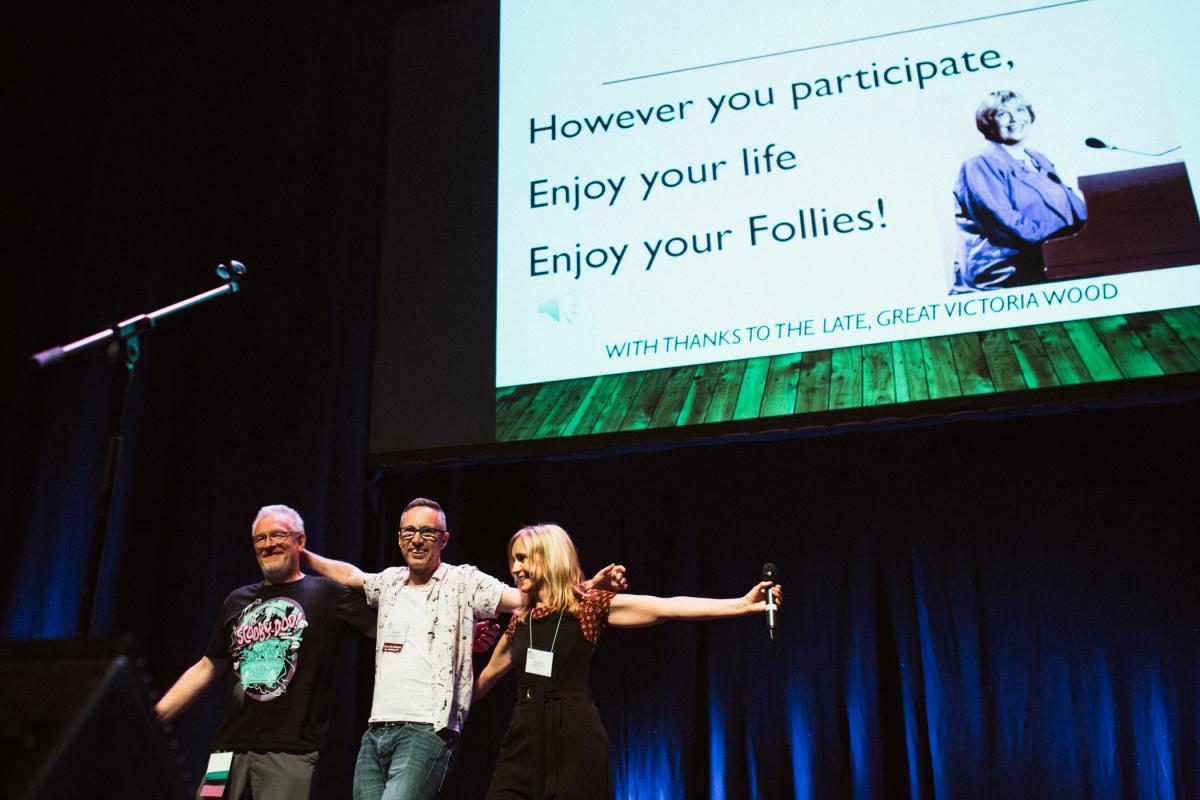
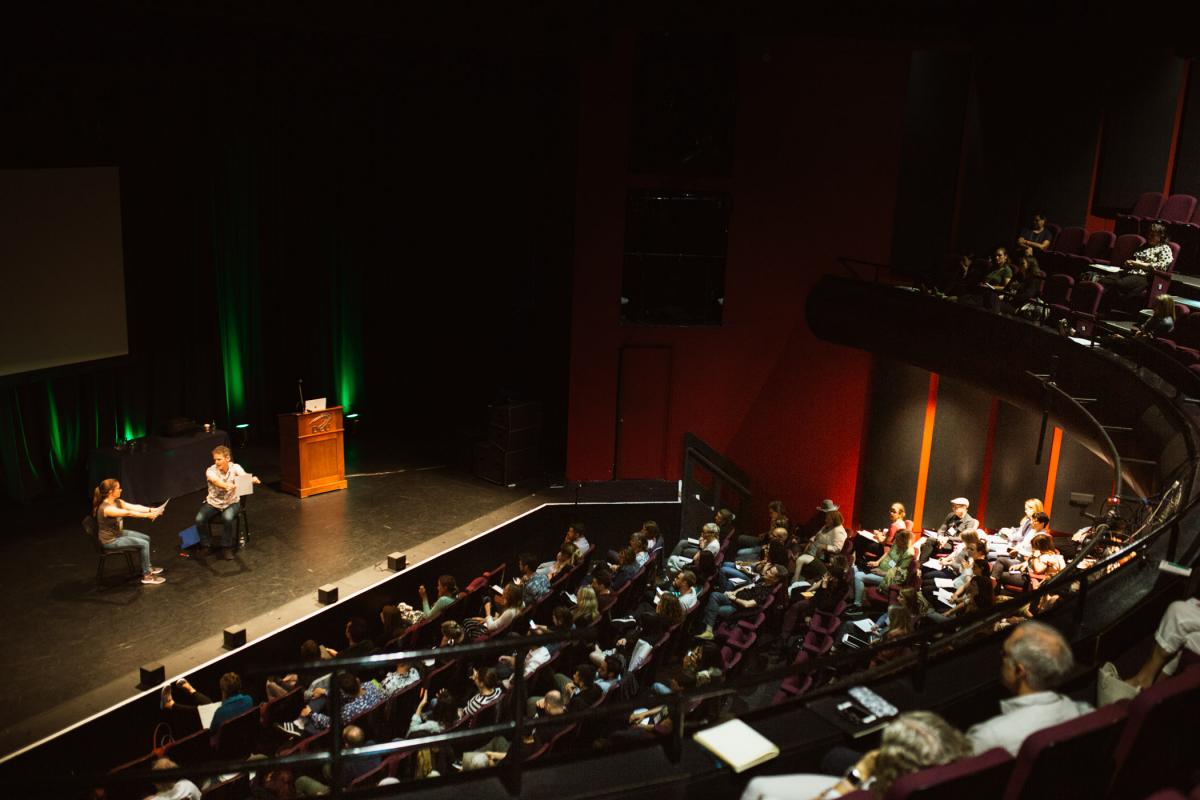
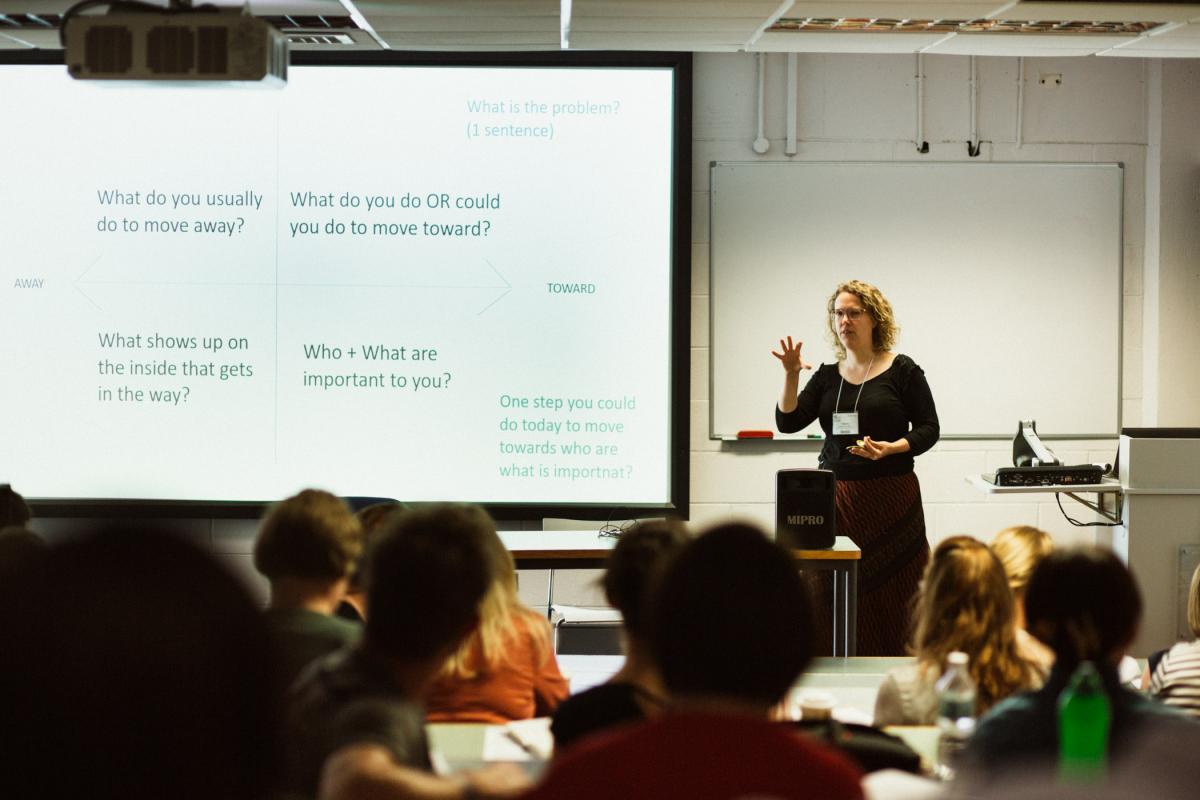
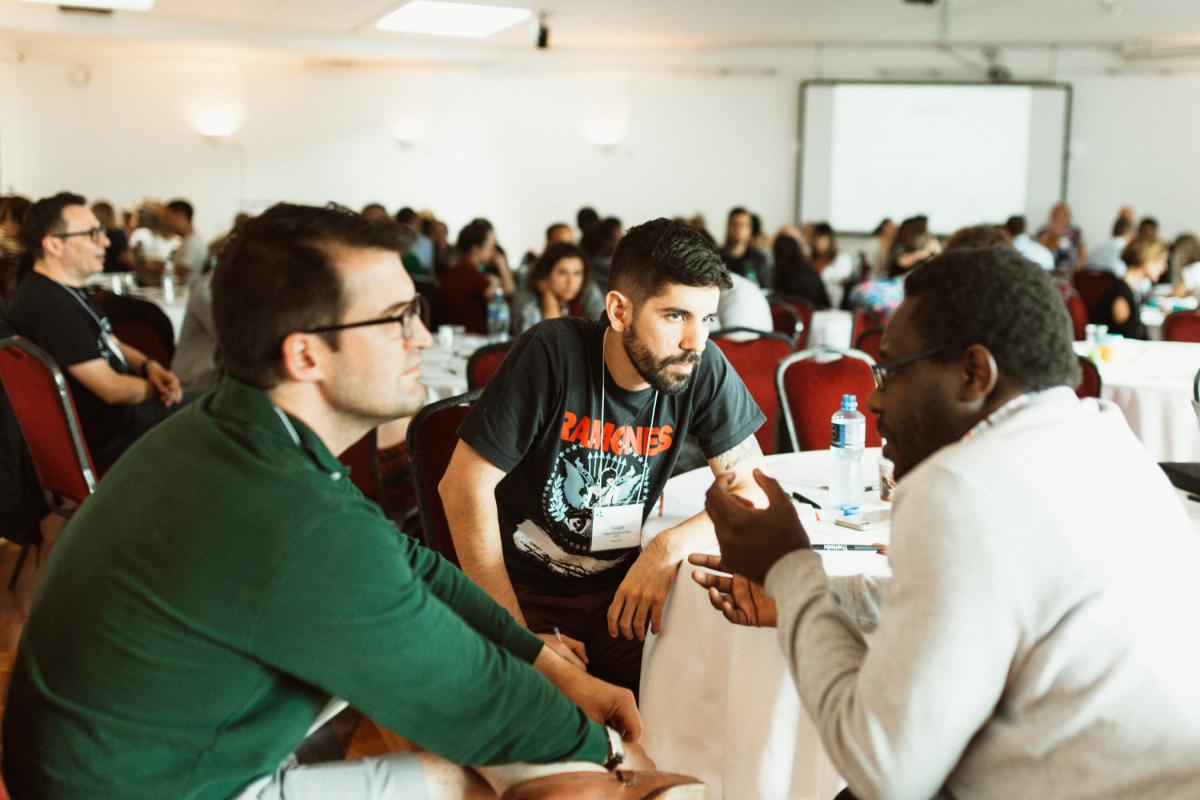
Registration & Fees - World Conference 2020 & Pre-Conference Workshops
Registration & Fees - World Conference 2020 & Pre-Conference WorkshopsPlease Register for our ACBS World Conference 2020 ONLINE!
The ACBS Board of Directors has decided to temporarily suspend registration for the ACBS World Conference in New Orleans, USA on July 14-19, 2020.
Continued research into alternative program delivery options, necessitated by the COVID-19 pandemic, have led to this temporary decision. The World Conference will occur, but at least some portion of it will occur in a virtual format.
During this time we will continue to research possible complements and alternatives to our in-person meeting, including various virtual options. We will continue to work with our presenters and provide updates to you as they become available. 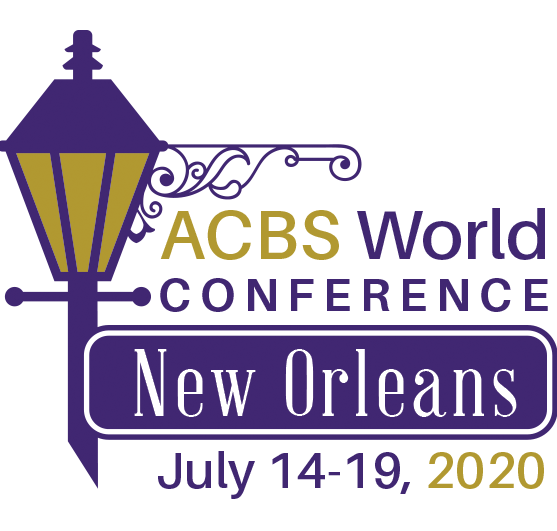
If you have already completed your registration, and our conference format changes, you may apply your registration toward any virtual option that may become available (you would be refunded the difference if the virtual option is lower in cost), or you may contact ACBS for other options.
If you are interested in receiving email updates about this year's conference (like updates about format, registration re-opening, etc.), please enter your information here. (Note, if you are an ACBS member you will receive these updates automatically.)
Additional conference updates regarding COVID-19 can be found here.
Refunds:
Cancellation of registration must be submitted in writing via email and must be dated on or before 5:00 p.m. Central Time, USA, on June 21, 2020 to support@contextualscience.org to receive a refund minus a $50 USD registration cancellation processing fee.
We regret that after June 21, refunds cannot be made, however we will allow a substitute registrant. If you need a refund, please contact us via email. (Note: Shared registrations are not permissible... meaning that you can't attend one day and your colleague the next, etc.) No refunds will be granted for no-shows. No refunds will be granted for any guest tickets.
Substitution:
Substitution Policy: Replacement of a registered ACBS attendee by a business colleague/coworker will be accepted if notified in writing by 5:00 p.m. Central Time, USA, July 13, 2020, to support@contextualscience.org. After July 13, 2020, no substitutions will be allowed.
Photographs/Video:
ACBS intends to take photographs and video of this event for use in ACBS newsletters and promotional material, in print, electronic and other media, including the ACBS website and social media accounts. By participating in this event, I grant ACBS the right to use any image, photograph, voice or likeness, without limitation, in its promotional materials and publicity efforts without compensation. All media become the property of ACBS . Media may be displayed, distributed or used by ACBS for any purpose.
Attendees of the World Conference are not permitted to audio or videorecord sessions without the express written permission of ACBS.
If you have any concerns regarding the media policy, please feel free to contact us.
Waiver of Liability:
As a condition of my participation in this meeting or event, I hereby waive any claim I may have against the Association for Contextual Behavioral Science (ACBS) and its officers, directors, employees, or agents, or against the presenters or speakers, for reliance on any information presented and release ACBS from and against any and all liability for damage or injury that may arise from my participation or attendance at the program. I further understand and agree that all property rights in the material presented, including common law copyright, are expressly reserved to the presenter or speaker or to ACBS. I acknowledge that participation in ACBS events and activities brings some risk and I do hereby assume responsibility for my own well-being. If another individual participates in my place per ACBS transfer policy, the new registrant agrees to this disclaimer and waiver by default of transfer.
Conference Awards & Scholarships
Conference Awards & ScholarshipsThank you for visiting this page. Deadlines for all of the 2020 conference scholarships have now passed.
Conference Code of Conduct and Liability/Media Waiver
Conference Code of Conduct and Liability/Media WaiverConference Code of Conduct Policy
Code of Conduct
ACBS is a listening organization focused on its participants. The ACBS World Conference is designed to increase interaction, engagement, collaboration, connectivity and community, in a fun and safe learning environment.
We value the participation of each member of the community and endeavor to deliver an enjoyable and fulfilling experience. Conference participants are expected to conduct themselves with integrity, courtesy and respect for others and maintain the highest level of professionalism at all conference programs and events, whether officially sponsored by ACBS or not. Disruptions that interfer with the conference experience for other attendees are not permitted. All attendees, speakers, organizers, volunteers, partners, vendors and staff at any ACBS event are required to observe the following Code of Conduct.
ACBS is dedicated to providing a harassment-free conference experience for everyone, regardless of gender, sexual orientation, disability, physical appearance, body size, race or religion. We do not tolerate harassment of conference participants in any form. All communication should be appropriate for a professional audience including people of diverse backgrounds and cultures. Sexual language and imagery is not appropriate for the conference.
Be kind to others. Do not insult or defame participants. Harassment in any form, sexist, racist, or exclusionary jokes are not condoned at the ACBS World Conference.
Participants violating these rules may be asked to leave the conference without warning at the sole discretion of ACBS. Thank you for helping to make this a welcoming event for all.
Guests
Guests of ACBS World Conference attendees will be held to the same Code of Conduct. Conference attendees are responsible for the behavior of their guest(s) at the event, and they will be held accountable if the guest is a disruption to the event, at the sole discretion of ACBS.
Cancellation
Cancellation of registration must be submitted in writing via email and must be dated on or before 5:00 p.m. Central Time, USA, on June 21, 2020 to support@contextualscience.org to receive a refund minus a $50 USD registration cancellation processing fee.
We regret that after June 21, refunds cannot be made, however we will allow a substitute registrant. If you need a refund, please contact us via email. (Note: Shared registrations are not permissible... meaning that you can't attend one day and your colleague the next, etc.) No refunds will be granted for no-shows. No refunds will be granted for any guest tickets.
Substitution
Substitution Policy: Replacement of a registered ACBS attendee by a business colleague/coworker will be accepted if notified in writing by 5:00 p.m. Central Time, USA, July 13, 2020, to support@contextualscience.org. After July 13, 2020, no substitutions will be permitted.
Housing
In an effort to support our host city, demonstrate effective practices in room block management, and keep registration fees lower, a hotel room in the official ACBS housing block should be booked. The deadline to book a hotel reservation is June 16, 2020, while rooms are available.
Liability/Media Waiver
As a condition of my participation in this meeting or event, I hereby waive any claim I may have against the Association for Contextual Behavioral Science (ACBS) and its officers, directors, employees, or agents, or against the presenters or speakers, for reliance on any information presented and release ACBS from and against any and all liability for damage or injury that may arise from my participation or attendance at the program. I further understand and agree that all property rights in the material presented, including common law copyright, are expressly reserved to the presenter or speaker or to ACBS. I acknowledge that participation in ACBS events and activities brings some risk and I do hereby assume responsibility for my own well-being. If another individual participates in my place per ACBS transfer policy, the new registrant agrees to this disclaimer and waiver by default of transfer.
ACBS intends to take photographs and video of this event for use in ACBS newsletters and promotional material, in print, electronic and other media, including the ACBS website and social media accounts. By participating in this event, I grant ACBS the right to use any image, photograph, voice or likeness, without limitation, in its promotional materials and publicity efforts without compensation. All media become the property of ACBS . Media may be displayed, distributed or used by ACBS for any purpose.
If you have any concerns regarding the media policy, please feel free to contact us.
Pre-Conference Workshops for WC2020
Pre-Conference Workshops for WC2020July 14-15, New Orleans, USA
Unforgettable. Inspiring. Cutting-edge. Inviting. ACBS Pre-Conference Workshops are well-known as a source for world-class CBS, evidence-based trainings. Here is the heart of ACBS. Where therapists and researchers of all ages sharpen their skills, and push their limits. Where expert trainers from across the globe converge as a creative force aiming to shape and support all those in attendance. Where life-long friends reconnect, or meet for the first time.
What to Expect
The 2020 Pre-Conference Workshops offer exciting new opportunities that will engage therapists and researchers of any skill level. Highlights include: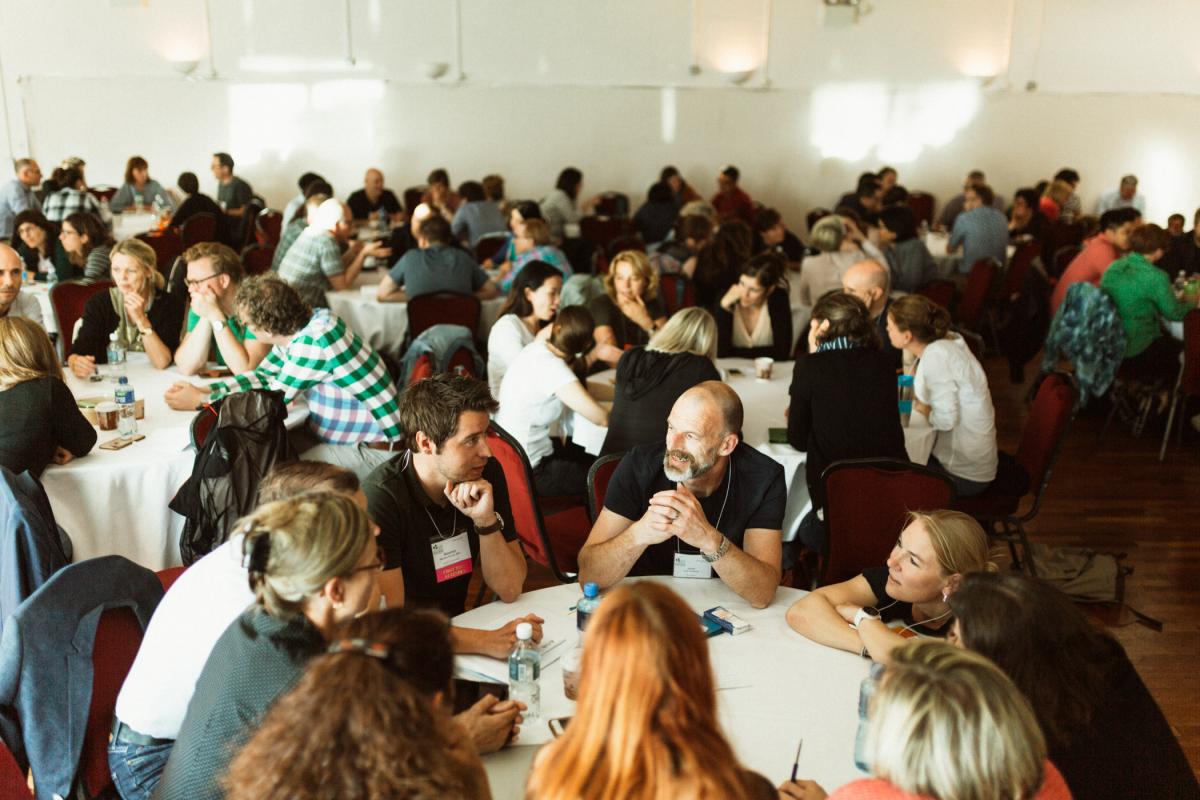
Acceptance and Commitment Therapy (ACT): Participate in experiential workshops to learn this empirically supported therapy
Relational Frame Theory (RFT): Apply this powerful and modern perspective on cognition and language to your own practice
Functional Analytic Psychotherapy (FAP): Utilize the power of your therapeutic relationships with FAP
Compassion Focused Therapy (CFT): Engage compassionate emotions within your clients with a processed-based approach
Focused Acceptance and Commitment Therapy (FACT): Learn how to effect psychological flexibility with limited client contact
Combining therapy role-plays, experiential exercises, case presentations, data graphics, focused lectures, and small group discussions, you can expect high-quality training from ACBS Pre-Conference Workshops. Continuing Education Credits are available.
Be sure to review the list of workshops to see your full list of options.
When, Where, and How Much?
These workshops will be held the two days immediately preceding the ACBS World Conference 2020.
Tuesday, July 14, 2020 - 9:00 a.m. - 5:15 p.m.
Wednesday, July 15, 2020 - 9:00 a.m. - 5:15 p.m.
They will be held at the Sheraton New Orleans Hotel in New Orleans, USA.
More general Registration information can be found here.
Pre-Conference Workshop Registration Rates (July 14-15, 2020)
The workshops below will be held the 2-days immediately preceding the ACBS World Conference 2020. They will be 9:00 a.m. - 5:15 p.m. on each day.
The workshops run concurrently, so you may only register for one pre-conference workshop. Also note that they require their own registration and fee (they are not included as part of the ACBS World Conference). CE credits are available.
| July 14-15 |
Early Registration |
Regular Registration |
Onsite Registration |
|---|---|---|---|
| Professional | $349 | $379 | $429 |
| Student | $219 | $249 | $299 |
| Professional, Non-Member | $419 | $449 | $499 |
| Student, Non-Member | $249 | $279 | $329 |
Above prices include lunch each day, twice daily coffee/tea on site, and a general certificate of attendance.
Additional information about registrations, refunds, etc., can be found here.
Learn about the specific workshops here.
Complete List of Pre-Conference Workshops - WC2020 New Orleans
Complete List of Pre-Conference Workshops - WC2020 New OrleansACBS World Conference 2020, Pre-Conference Workshops - Register now!
July 14-15, 2-day workshops:
Sean M. Barnes, Ph.D., Lauren M. Borges, Ph.D., Geoffrey Smith, Psy.D., Debbie Sorensen, Ph.D., Nazanin H. Bahraini, Ph.D.
(Clinical; Beginner, Intermediate, Advanced)
David Gillanders, DClinPsy, Sonja V. Batten, Ph.D.
(Clinical; Beginner, Intermediate)
Robyn L. Gobin, Ph.D., Daniel C. Rosen, Ph.D.
(Clinical; Beginner, Intermediate, Advanced)
Mary P. Loudon, Ph.D., Sarah Sullivan-Singh, Ph.D., Mavis Tsai, Ph.D., Robert J. Kohlenberg, Ph.D.
(Clinical; Beginner, Intermediate, Advanced)
Francisco J. Ruiz, Ph.D., Louise McHugh, Ph.D., Bárbara Gil-Luciano, Ph.D.
(Clinical, Research; Beginner, Intermediate)
Emily K. Sandoz, Ph.D.
(Clinical; Intermediate, Advanced)
Jill Stoddard, Ph.D., Miranda Morris, Ph.D., Jenna LeJeune, Ph.D., Manuela O'Connell, Lic.
(Clinical; Intermediate, Advanced)
Kirk Strosahl, Ph.D., Patricia Robinson, Ph.D.
(Clinical; Beginner, Intermediate, Advanced)
Dennis Tirch, Ph.D., Laura Silberstein-Tirch, Psy.D.
(Clinical; Beginner, Intermediate, Advanced)
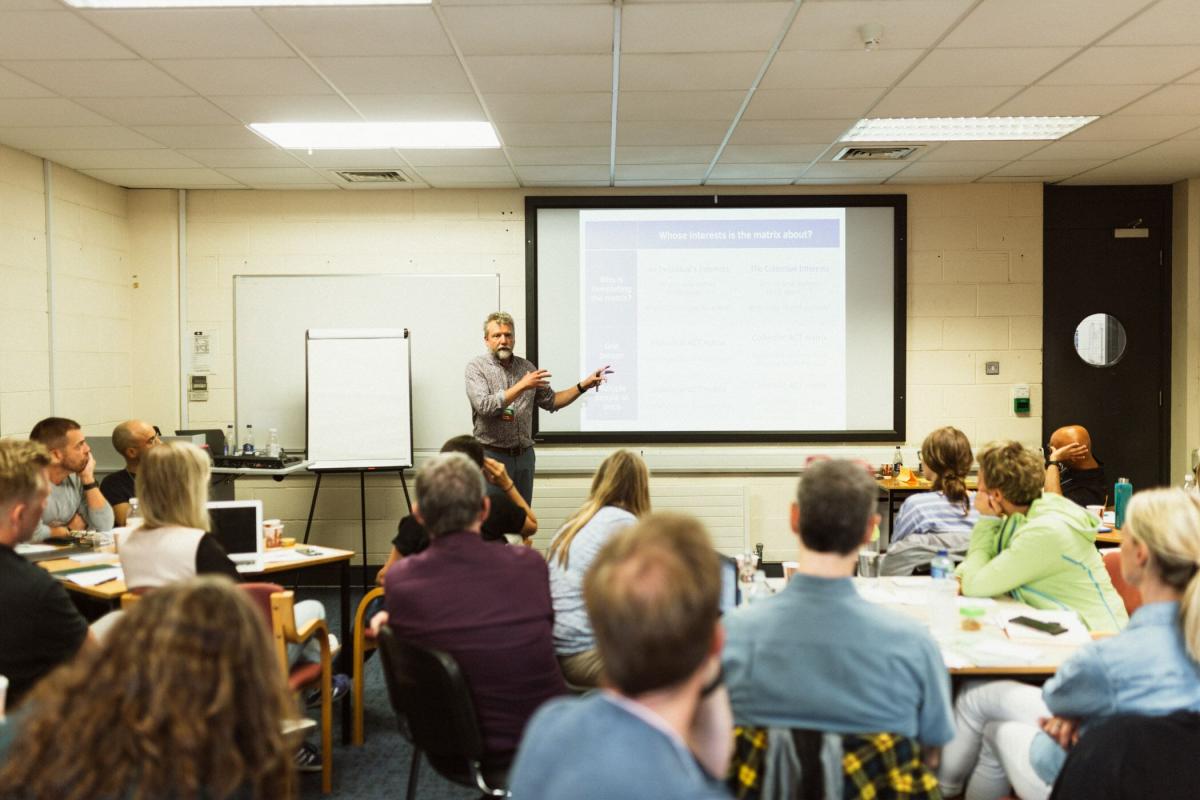 Michael P. Twohig, Ph.D., Patricia Zurita Ona, Psy.D.
Michael P. Twohig, Ph.D., Patricia Zurita Ona, Psy.D.
(Clinical, Research; Beginner, Intermediate, Advanced)
Robyn Walser, Ph.D.
(Intermediate, Advanced)
ACT for Life: An experiential training on a Contextual Behavioral Approach to Suicidal Ideation and Behavior
ACT for Life: An experiential training on a Contextual Behavioral Approach to Suicidal Ideation and Behavior
ACT for Life: An experiential training on a Contextual Behavioral Approach to Suicidal Ideation and Behavior

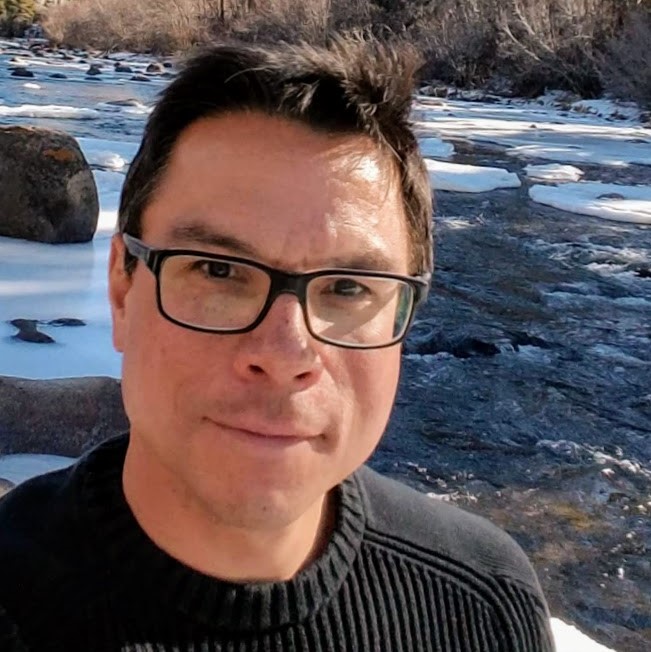
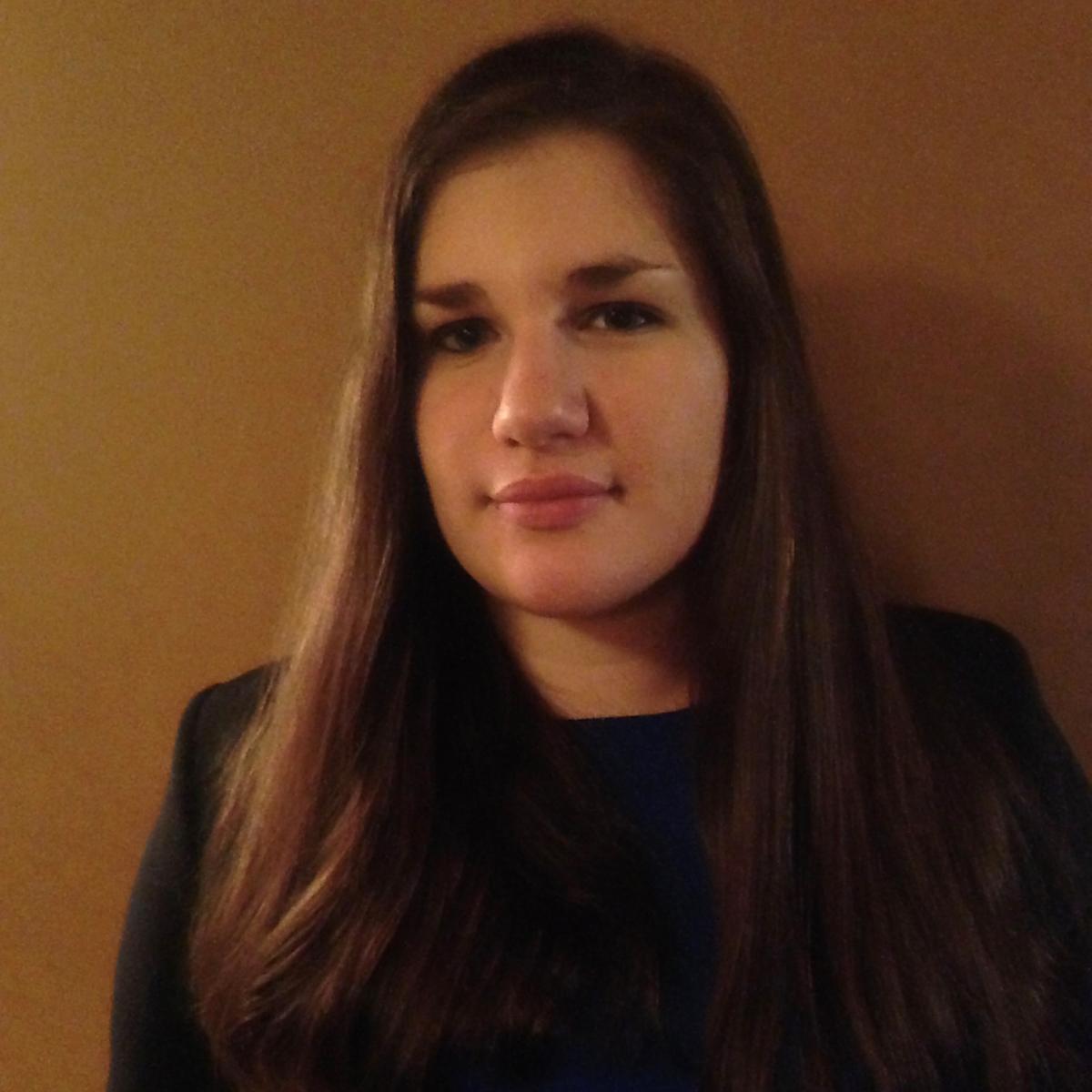
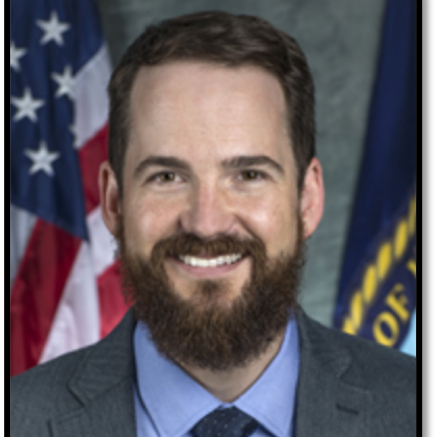
Lauren M. Borges, Ph.D.
Geoffrey Smith, Psy.D.
Debbie Sorensen, Ph.D.
Nazanin H. Bahraini, Ph.D.
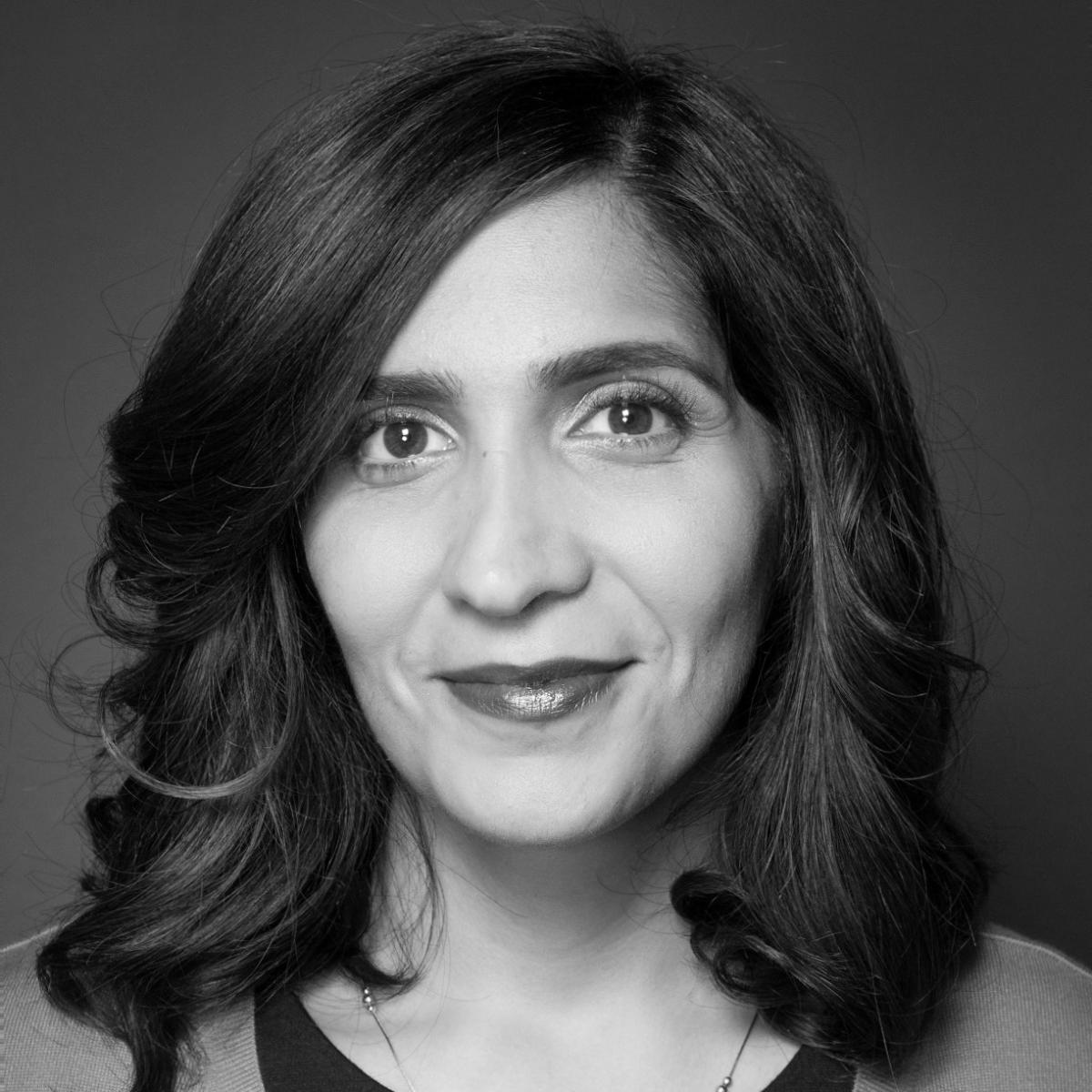
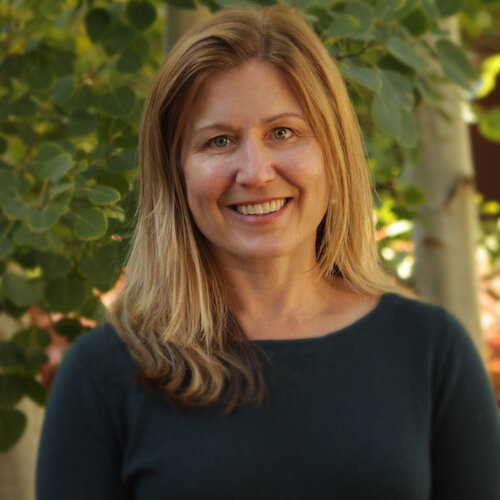
Tuesday, July 14, 2020 - 9:00 a.m. - 5:15 p.m.
Wednesday, July 15, 2020 - 9:00 a.m. - 5:15 p.m.
Competence in suicide prevention is vital to clinical practice. Yet, responding to suicide risk is often a source of tremendous stress and places therapists at odds with their clients. Respecting a client’s autonomy and maintaining therapeutic rapport can conflict with concerns for safety and practical considerations of clinician liability. Furthermore, standardized suicide risk assessment and management approaches mandated by health care organizations often promote assessment focused on the presence or absence of suicidal ideation and behavior, but fail to identify the function of suicidal thoughts and behaviors. Contextual Behavioral Science (CBS) can be used to successfully navigate these concerns to gain a nuanced and accurate understanding of the factors maintaining a client’s suicidal thoughts and behaviors (Borges et al., 2019). Acceptance and Commitment Therapy (ACT) provides a powerful and balanced approach to suicide prevention by promoting engagement in life in addition to preventing suicidal behavior by enhancing flexible thinking and emotional willingness (Barnes et al., 2017). Participants in this pre-conference training will learn how CBS, and ACT in particular, can be used to join with clients in acknowledging, understanding, and accepting pain that leads them to desire death, while still choosing an alternative - a vital and values-based life.
Case examples, role-plays, and experiential exercises will be used to expand clinicians’ repertoires for working effectively and compassionately with clients who experience suicidal ideation, while noticing their own experiences of this work. Participants will learn about common barriers to working effectively with clients considering suicide. Participants will explore systemic issues they face, as well as personal stressors they may experience in working with suicide, including burnout, caregiver fatigue, vicarious traumatization, and moral injury. Through experiential exercises and discussion, participants will explore their own internal responses and behavior patterns in working with suicide. Methods for responding effectively to common barriers will be discussed, and clinicians will be invited to be mindful of how their reactions to suicidal thoughts and behaviors may influence clinical decision making.
The empirical literature supporting the use of ACT with clients at risk of suicide will be reviewed. Participants will then learn about ACT for Life, a treatment protocol developed for clients at high risk of suicide, but also applicable to clients at low to moderate suicide risk. The facilitators of the training developed ACT for Life through a formative evaluation with experts in ACT and suicidology, and a randomized acceptability and feasibility study recently provided empirical support for ACT for Life. The ACT for Life protocol combines CBS functional assessment practices (e.g., chain analysis) and gold standard suicide risk mitigation tools (e.g., safety planning) with guidance on engaging ACT processes to build vital values-based lives clients will choose to live.
Participants will learn how to conceptualize suicide from a CBS perspective and practice using functional analysis to take a process-based approach to suicide risk assessment and risk management. Specifically, they will learn how to use chain analysis to identify unique factors maintaining suicidal thoughts and behaviors. Participants will practice building on the information gleaned from chain analysis to create a conceptualization of a client’s suicide risk and develop a treatment plan to disrupt behavior maintaining suicidal thoughts and behaviors. In addition to identifying opportunities to prevent suicidal ideation and behavior from interfering with functioning, participants will practice identifying values worth living that are connected to the suffering maintaining suicidal ideation and behavior. Treatment planning will include guidance on using emotional pain and related values to inform committed actions that will build a meaningful life. Participants will also learn about key components of documenting functional suicide risk assessments to meet standards of care and prevent clinician fear from impacting treatment.
Safety planning (i.e., assisting clients in making a hierarchical list of plans to cope with a suicidal crisis) has become the standard of care in suicide prevention and can be a useful tool for managing suicide risk, while engaging in deeper therapeutic work to address the function of suicidal thinking and behavior. However, safety plans often focus on avoidance or reduction of unwanted thoughts and emotions, and may seem inconsistent with CBS interventions that emphasize acceptance. Additionally, safety plans do not typically include material tailored to the client’s values. Participants will learn how CBS/ACT-consistent safety plans are created in ACT for Life.
Participants in the training will then practice engaging ACT processes in role plays that integrate idiographic information to specifically disrupt factors that are maintaining suicide risk and preventing engagement in meaningful behavior. Facilitators will demonstrate how to transform hopelessness about life into hopelessness about unworkable attempts at control, including suicide. Finally, participants will discuss useful experiential exercises, metaphors, and bold moves to lead clients in turning toward a life worth living.
About Sean M. Barnes, Ph.D.:
Sean M. Barnes, Ph.D. is a clinical research psychologist at the Rocky Mountain Mental Illness Research, Education, and Clinical Center (MIRECC) for Veteran Suicide Prevention and an assistant professor in the Department of Psychiatry at the University of Colorado Denver School or Medicine. As a principal investigator at the Rocky Mountain MIRECC, Sean contributes to the MIRECC's mission to prevent Veteran suicide through research, consulting, assessment, and treatment. Sean has published and presented nationally on a wide range of topics, including contextual behavioral approaches to working with moral injury and suicide risk. Sean is an ACT for Depressed Veterans provider and the principal investigator of the ACT for Life study, testing a brief ACT protocol for maximizing recovery after suicidal crises. Other aspects of Sean's research focus on ACT for Moral Injury, suicide risk assessment, and computerized interventions, but all of his projects share a common goal of alleviating suffering and helping others build vital meaningful lives.
About Lauren M. Borges, Ph.D.:
Dr. Lauren M. Borges is a clinical research psychologist at the Rocky Mountain Mental Illness Research, Education, and Clinical Center (MIRECC) for suicide prevention. She holds an academic appointment of assistant professor in the Department of Psychiatry at the University of Colorado School of Medicine. Dr. Borges’ primary line of research concerns the use of contextual behavioral interventions to help individuals approach emotions like guilt and shame more flexibly. She is a principal investigator on a federally funded study focused on investigating the acceptability and feasibility of Acceptance and Commitment Therapy for Moral Injury (ACT-MI) and a co-investigator on an intervention applying ACT to cultivate flexible responding to suicidal ideation and behavior. She is also interested in using functional analysis (in particular the chain analysis skill from Dialectical Behavior Therapy) to help individuals identify and intervene on their suicidal behavior more efficiently and effectively. Beyond her focus on interventional research, Dr. Borges is developing and validating novel approaches to measuring facets of responding to guilt and shame.
About Geoffrey Smith, Psy.D.:
Dr. Geoff Smith has been a clinical psychologist and administrator working with adults with acute and chronic mental illness since 2001. His experience spans from Community Mental Health Center program administration and development to Veterans Affairs Medical Center psychiatric unit administration, clinical services and senior leadership.
He is currently the Section Chief of Inpatient and Specialty Mental Health Programs for the Denver Veterans Affairs Medical Center. Past projects include developing Veteran programs for Peer Support Specialists providing health coaching on an inpatient psychiatric unit, developing Psychiatric step-down services, and using evidence based psychotherapy for suicide prevention. He is the psychological Incident Commander for the VA Critical Incident Response Team and Workplace Violence Prevention Programs. He provides numerous seminars and presentations across various MH staff disciplines and is a faculty instructor for the Psychiatry Department at the University of Colorado Health Sciences Center.
About Debbie Sorensen, Ph.D.:
Debbie Sorensen, Ph.D. is a clinical psychologist in Denver, Colorado. She has a Ph.D. in Psychology from Harvard University and a bachelor’s degree in Psychology and Anthropology from the University of Colorado, Boulder. She is a psychologist in the Spinal Cord Injury/Disorders Center at the Rocky Mountain Regional VA Medical Center, where she works with veterans with spinal cord injuries and chronic health conditions and trains psychology doctoral students. She is a nationally-recognized VA Regional Trainer and Training Consultant in Acceptance and Commitment Therapy (ACT). She has a private practice in Denver, and is a co-founder the ImpACT Psychology Colorado collective. She has been a lecturer at Harvard University in the Department of Psychology, and is a co-host of the popular podcast Psychologists Off the Clock.
About Nazanin H. Bahraini, Ph.D.:
Dr. Bahraini is a Clinical Research Psychologist and Director of Education at the Rocky Mountain MIRECC for suicide prevention. In addition, she is an Associate Professor of Psychiatry and Physical Medicine and Rehabilitation at the University of Colorado School of Medicine. Her research focuses on understanding factors that promote functional improvement and recovery among Veterans with chronic physical and mental health conditions. Along these lines, she is interested in how the principles and core processes underlying Acceptance and Commitment Therapy (ACT) relate to suicide, and how this knowledge can inform ACT based interventions to improve functioning and decrease suicide risk in indicated populations (i.e., Veterans hospitalized for suicide risk).
Learning Objectives:
Following this workshop participants will be able to:
- Explain the phenomenon of suicide from a contextual behavioral perspective.
- Describe personal and therapist barriers to working collaboratively with clients to effectively manage suicide risk.
- Practice using functional suicide risk assessment to inform an idiographic approach to case conceptualization and intervention.
- Identify critical components of suicide risk assessment documentation.
- Guide clients in creating CBS/ACT-consistent safety plans.
- Discuss the empirical support for using ACT with clients at risk of suicide.
- Describe the primary treatment goals of ACT for Life.
- Demonstrate creative hopelessness work appropriate for a client at high risk of suicide.
- Incorporate client-specific drivers of suicidal thoughts and behaviors into ACT experiential exercises highlighting intervening on the function these behaviors serve at the level of the individual.
- Learn to help clients clarify and pursue their values in the presence of tremendous psychological pain and use committed action work to build vital lives clients will choose to live.
Target Audience: Beginner, Intermediate, Advanced, Clinical
Components: Conceptual analysis, Literature review, Original data, Experiential exercises, Didactic presentation, Role play
Package Includes: A general certificate of attendance, lunch, and twice daily coffee/tea break on site.
Acceptance and Commitment Therapy for Obsessive Compulsive and Anxiety Disorders in Children and Adolescents
Acceptance and Commitment Therapy for Obsessive Compulsive and Anxiety Disorders in Children and Adolescents
Acceptance and Commitment Therapy for Obsessive Compulsive and Anxiety Disorders in Children and Adolescents

Wednesday, July 15, 2020 - 9:00 a.m. - 5:15 p.m.
This workshop combines two professionals whose careers have largely focused on the use of ACT to treat obsessive compulsive and anxiety disorders. Dr. Twohig is a US citizen and Dr. Zurita Ona is Bolivian but works and resides in the USA. Dr. Twohig has conducted his work within a research setting with additional applied work in a university clinic. Dr. Zurita Ona’s works has occurred in a private clinic with related scholarship activities. Both work with children, adolescents, and adults. Additionally, they have been collaborating professionally for the past two years and have a common conceptualization of obsessive compulsive and anxiety disorders and their treatment.
Obsessive compulsive and anxiety disorders include: obsessive compulsive disorder, trichotillomania, social phobia, panic disorder, separation anxiety disorder, and phobias. While the literature on ACT for obsessive compulsive and anxiety disorders in children and adolescents lags behind the data for adults, there has been a notable amount of work conducted supporting its effectiveness. These data show that a moderately unified ACT protocol is effective for a variety of presentations of obsessive compulsive and anxiety disorders. Only moderate adjustments need to be made for different clinical presentations.
In this 2-day workshop we will first update the attendees on the research in this area. There are a handful or large randomized trials and smaller single subject designs using ACT for children and adolescents with obsessive compulsive and anxiety disorders. Next, we will present the overarching ACT conceptualization of obsessive compulsive and anxiety disorders. We will present the conceptual and procedural adjustments that would need to occur for each general presentation. This background information would likely take half a day. The remaining day and a half will showcase this work for children and adolescents. The audience will learn to facilitate exposures, monitor and facilitate processes of change within exposures, teach and track outcomes that are consistent with the ACT model. A unique behavioral intervention, the Choice Point, will be presented as a formulation and intervention to augment the impact of exposure sessions. We will teach the procedures didactically, with video, and role play. Participants will be given the opportunity to practice the same skills and receive feedback from the presenters.
About Michael P. Twohig, Ph.D.:
Michael P. Twohig, Ph.D. is a licensed psychologist in the state of Utah and a Professor of Psychology at Utah State University. He received his B.A. and M.S. from the University of Wisconsin-Milwaukee, his Ph.D. from the University of Nevada, Reno, and completed his clinical internship at the University of British Columbia Hospital. He is past-President of the Association of Contextual Behavioral Science, the organization most associated with Acceptance and Commitment Therapy (ACT). His research focuses on the use of ACT across a variety of clinical presentations with an emphasis on obsessive compulsive and related disorders. He has published over 100 peer-reviewed articles and two books: An ACT-Enhanced Behavior Therapy approach to the Treatment of Trichotillomania (with Woods) and ACT Verbatim for Depression and Anxiety (with Hayes). His research has been funded through multiple sources including the National Institute of Mental Health.
About Patricia Zurita Ona, Psy.D.:
Dr. Zurita Ona, Dr. Z, is a Licensed Clinical Psychologist in California. Her clinical work started first as school psychologist and then as a clinical psychologist. She has significant experience working with children, adolescents, and adults with OCD, trauma, anxiety, and emotional regulation problems. . Dr. Z is the founder of the East Bay Behavior Therapy Center, a boutique therapy practice, where she runs an intensive outpatient program integrating Acceptance and Commitment Therapy (ACT) and Exposure Response Prevention (ERP) to support clients getting stuck from obsessions, figure out what they care about, and do stuff that matters to them.
Dr. Z attends local, national, and international conferences on a regular basis in order to keep up with current clinical research and deliver up-to-date therapy services to her clients. In addition to her doctoral training, Dr. Z has nominated as a Fellow of the Association of Contextual Behavioral Science; she's a graduate of the International OCD foundation Behavior Therapy Training Institute (BTTI) for the treatment of pediatric OCD and adult OCD; her clinical work is primarily based on exposure and Response Prevention, the recognized front-line treatment for OCD, anxiety and related condition disorders. Dr. Z is intensively trained in Dialectical Behavior Therapy (DBT). Over the last 10 years, Dr. Z has been learning, practicing, and teaching Acceptance and Commitment Therapy (ACT).
Learning Objectives:
Following this workshop participants will be able to:
- The attendees will learn the diagnostic differences between obsessive compulsive and anxiety disorders
- The attendee will learn the research on ACT for obsessive compulsive and anxiety disorders in children and adolescents
- The attendee will learn to conceptualize obsessive compulsive and anxiety disorders from an ACT standpoint
- The attendee will learn how ACT conceptualizes obsessive compulsive and anxiety disorders differently than other models
- The attendee will learn how to adjust typical ACT for obsessive compulsive and anxiety disorders
- The attendee will learn how to implement ACT for obsessive compulsive and anxiety disorders for children and adolescents
- The attendee will learn how to adjust ACT for obsessive compulsive and anxiety disorders based on developmental levels
- The attendee will learn how to conduct exposures for obsessive compulsive and anxiety disorders from an ACT model
- The attendee will identify the ACT core processes in regard to the “choice point model”
- The attendee will lean how to track outcomes when working with these clinical issues
Target Audience: Beginner, Intermediate, Advanced, Clinical, Research
Components: Conceptual analysis, Literature review, Original data, Experiential exercises, Didactic presentation, Case presentation, Role play
Package Includes: A general certificate of attendance, lunch, and twice daily coffee/tea break on site.
Acceptance and Commitment Therapy: Introduction & Skills Building
Acceptance and Commitment Therapy: Introduction & Skills BuildingAcceptance and Commitment Therapy: Introduction & Skills Building
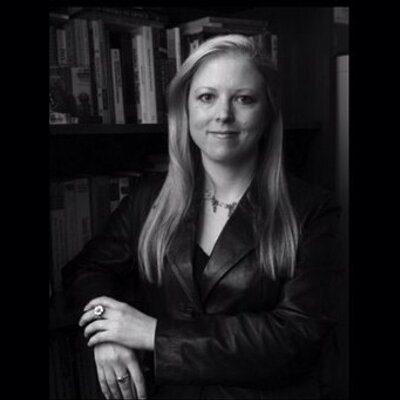
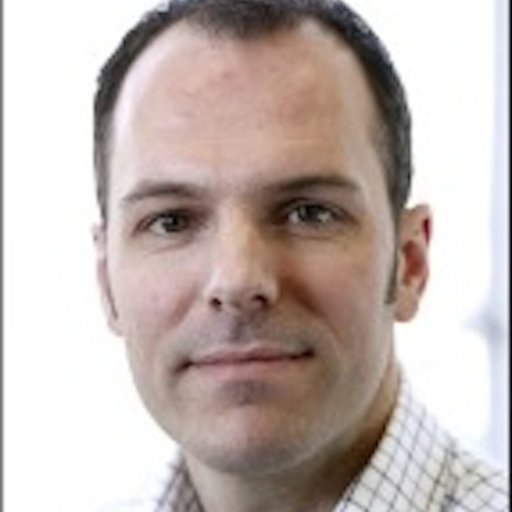
Wednesday, July 15, 2020 - 9:00 a.m. - 5:15 p.m.
This introductory ACT workshop is designed to combine the head, hands, and heart of ACT to maximize the group workshop time together in a way that can’t be gained from solo study. Initial components of the workshop will focus on the conceptual underpinnings of ACT, while not centering on those topics that could be just as easily understood through reading ACT books and articles. A significant portion of the workshop will revolve around experiential exercises that bring the heart of ACT to the fore through direct learning and engagement. Finally, participants will have the opportunity to practice the new skills that they are acquiring and give and receive feedback between participants and the expert trainers.
Participants will be guided through the ACT foundational hexaflex, learning about each of the six core processes. Throughout the workshop, attendees will learn about the application of each of these core processes through case conceptualizations, role plays, and discussions of clinical examples. The trainers will provide examples of specific exercises and metaphors, while working with the participants to understand the importance of the function, rather than the form, of the intervention. Special attention will be given to working with clients to clarify their personal life values and helping to facilitate meaningful committed action for clients.
The two peer-reviewed ACT trainers, Gillanders and Batten, are fully-versed in ACT and are Fellows and Founding Members of ACBS, with extensive experience delivering ACT training internationally. Their open and compassionate style models the ACT therapeutic stance, while demonstrating skills and responding to participant questions based on research-informed knowledge.
About David Gillanders, DClinPsy:
David Gillanders is a Chartered Clinical Psychologist, member of the British Psychological Society, Health & Care Professions Council, British Association of Behavioural & Cognitive Psychotherapy and a founding member of the Association for Contextual Behavioural Science. He is the Head of Clinical and Health Psychology at the University of Edinburgh. Formerly working for the NHS, he has extensive experience of working psychologically with people with both chronic physical and mental health problems from both an ACT and traditional CBT perspective. David has trained several hundred therapists in using an ACT approach across the globe and also supervises others using an ACT approach. He is a peer reviewed ACT trainer with ACBS, and the former ACBS Training Committee Chair, responsible for developing the current strategy to showing evidence of training competency and undertaking research in the area of ACT training
About Sonja V. Batten, Ph.D.:
Sonja V. Batten, Ph.D., is a clinical psychologist with a specialization in traumatic stress, who has worked in policy, clinical, and research leadership positions in the public and private sector. Dr. Batten is a recognized ACT trainer, a Past-President of the Association for Contextual Behavioral Science, the author of Essentials of Acceptance and Commitment Therapy, and the co-author of Committed Action in Practice. Dr. Batten is an experienced leader with a demonstrated history of working in the management consulting industry; skilled in Organizational Development, Health Care Operations, Leadership Development, and Acceptance and Commitment Therapy; a Licensed Clinical Psychologist, certified Change Management Practitioner, and experienced Coach and Mentor.
Learning Objectives:
Following this workshop participants will be able to:
- Know the ACT model conceptually
- Know the ACT model from the inside out (how the ACT processes ‘feel’)
- Have greater self awareness of own responses to difficult events in professional and possibly personal settings and be able to conceptualize those from within the ACT model
- Have better skills in responding flexibly to internal and external struggles in professional and possibly personal settings
- Be able to conceptualize cases / client work from an ACT perspective
- Understand the links between ACT and behavioral analysis more clearly
- Use their behavioral understanding of ACT to make more precisely targeted interventions.
- Be able to begin to apply ACT strategies within their professional context
- Apply multiple strategies for facilitating committed actions by clients
- Have a clear direction and resources for further study and training
Target Audience: Beginner, Intermediate, Clinical
Components: Conceptual analysis, Experiential exercises, Didactic presentation, Case presentation, Role play
Package Includes: A general certificate of attendance, lunch, and twice daily coffee/tea break on site.
Empowering psychological interventions by incorporating cutting-edge RFT research
Empowering psychological interventions by incorporating cutting-edge RFT researchEmpowering psychological interventions by incorporating cutting-edge RFT research


.jpg)
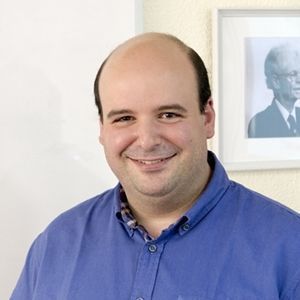
Wednesday, July 15, 2020 - 9:00 a.m. - 5:15 p.m.
This workshop aims to introduce the basis of Relational Frame Theory (RFT) and the implications of “cutting-edge” Clinical RFT research. The workshop will be divided into four parts. In Part 1, we will present the basic concepts of RFT through multiple clinical examples. In Part 2, we will present an RFT conceptualization of self-as-context and defusion and how it can be used to empower the exercises and clinical interactions aimed at moving these processes. In Part 3, we will present current RFT research on the relational components that improve the effect of clinical metaphors. Lastly, in Part 4, we will present recent research in the RFT conceptualization of worry and rumination and how it can be used to develop briefer ACT interventions. Multiple experiential exercises and role-plays will be presented across the four parts of the workshop to develop skills in Clinical RFT.
About Francisco J. Ruiz, Ph.D.:
Francisco J. Ruiz received his doctoral degree in Psychology in Universidad de Almería (Spain) under the supervision of Dr. Carmen Luciano in 2009. He worked in several Spanish universities before accepting a professor position in Fundación Universitaria Konrad Lorenz (Colombia) in 2015. In this position, he designed one of the first Ph.D. programs in Psychology in the country and has been awarded as a “Distinguished Researcher” of the institution. He has published about 70 scientific articles focused on Acceptance and Commitment Therapy (ACT) and Relational Frame Theory (RFT). During the last few years, he and his colleagues are developing a model of ACT that focuses on dismantling dysfunctional patterns of repetitive negative thinking (RNT). This model incorporates previous research on Clinical RFT and new empirical developments.
About Louise McHugh, Ph.D.:
Louise McHugh, Ph.D., is associate professor of psychology at University College, Dublin; has published over 90 papers in the area of Contextual Behavioural Science; is a peer-reviewed acceptance and commitment therapy (ACT) trainer; fellow of the Association for Contextual Behavioral. Science; author of A Contextual Behavioral Guide to Self and coeditor of The Self and Perspective Taking.
About Bárbara Gil-Luciano, Ph.D.:
Barbara Gil-Luciano is a Ph.D. in Psychology and an ACT therapist with adults and adolescents. She trains in ACT in the Madrid Institute of Contextual Psychology (MICPSY) and Nebrija University. She has authored multiple publications in ACT and Clinical RFT.
Learning Objectives:
Following this workshop participants will be able to:
- Describe the clinical implications of the three properties of relational framing.
- Describe the relational framings involved in self-as-context and defusion processes.
- Design enhanced self-as-context exercises according to recent RFT research.
- Design enhanced defusion exercises according to recent RFT research.
- Describe the relational components that increase the efficacy of clinical metaphors.
- Design metaphors that include common physical properties with the client’s suffering.
- Design physicalized metaphors to realize the effect of inflexible and flexible ways of responding to private events.
- Describe the central role of worry and rumination in psychological inflexibility.
- Conduct functional analyses of worry and rumination.
- Design exercises to disrupt worry and rumination processes according to the RFT analysis.
Target Audience: Beginner, Intermediate, Clinical, Research
Components: Conceptual analysis, Experiential exercises, Didactic presentation, Case presentation, Role play
Package Includes: A general certificate of attendance, lunch, and twice daily coffee/tea break on site.
Focused Acceptance and Commitment Therapy (FACT): The Basics and Beyond
Focused Acceptance and Commitment Therapy (FACT): The Basics and Beyond
Focused Acceptance and Commitment Therapy (FACT): The Basics and Beyond

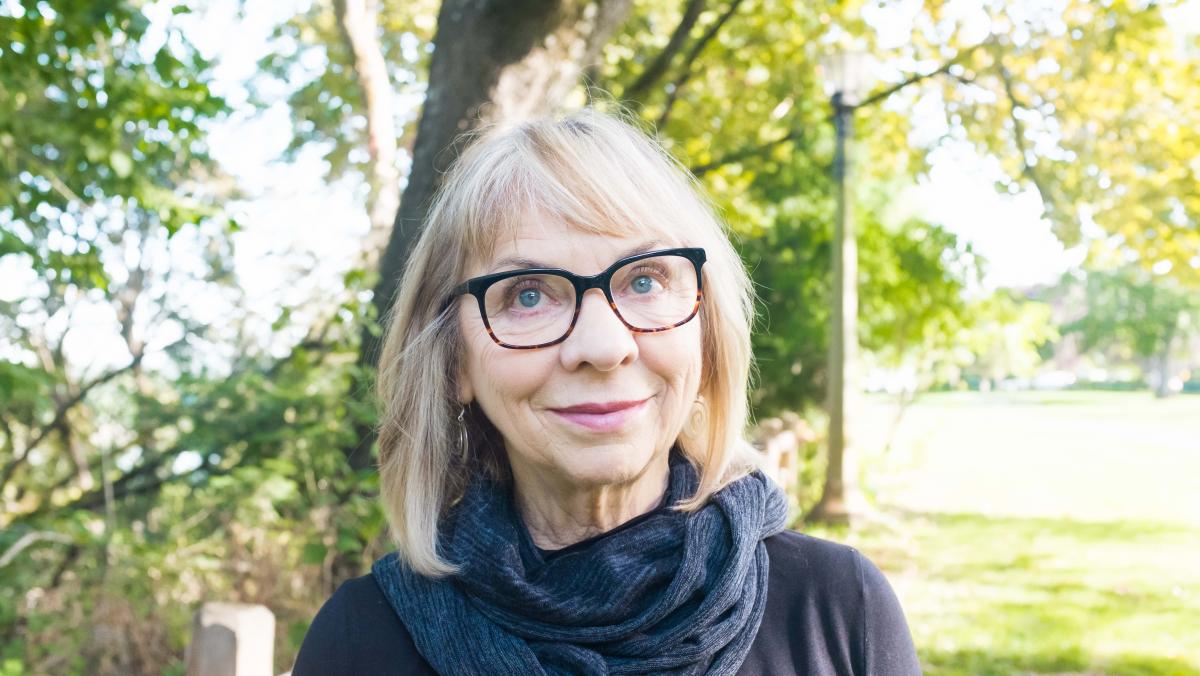
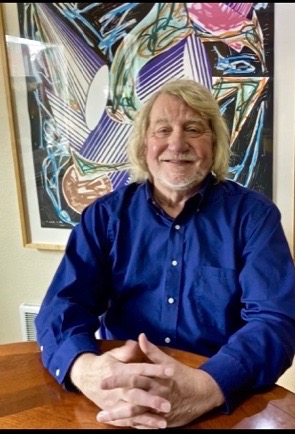
Wednesday, July 15, 2020 - 9:00 a.m. - 5:15 p.m.
Clinicians in a wide variety of practice settings are under increasing pressure to obtain positive clinical outcomes despite having fewer contacts with the client. This two-day workshop will examine both basic and advanced principles of Focused Acceptance and Commitment Therapy (FACT), an approach to brief assessment and intervention that promotes radical change. In this workshop, participants learn about three toxic processes, based in human language, that lead to behavioral rigidity and psychological suffering. They will explore the three “pillars” of psychological flexibility that can be used to combat these toxic processes: Building present moment awareness, promoting openness to private experiences and stimulating engagement with valued life activities. Through video demonstrations and “real plays”, we will model specific techniques for structuring the clinical conversation using known as CARE. Each letter of the acronym describes specific clinical tasks to be performed during that part of the clinical interview, with completion of the entire sequence leading to a higher likelihood of meaningful change. Using a series of dyadic and small group role play exercises, participants will learn how to create expectancy for rapid change, conduct a change oriented, contextually focused interview, identify and undermine client avoidance strategies in and out of session, use case formulation methods to quickly determine intervention targets, and reformulate or “reframe” the presenting problem so that an approach orientation is more likely. Participants will also view and then practice the use of various physical and experientially based metaphorical interventions designed to promote rapid change.
About Kirk Strosahl, Ph.D.:
Kirk Strosahl, Ph.D., is one of the founders of Acceptance and Commitment Therapy and specializes in the application of ACT as a brief intervention. He has practiced for 30 years in a variety of brief intervention contexts, including brief therapy clinics and primary care. He has written several professional books on the brief applications of ACT, including “Brief Interventions for Radical Change: Principles and Practice of Focused Acceptance and Commitment Therapy” and “Inside This Moment: Promoting Radical Change in Acceptance and Commitment Therapy” (Robinson & Gustavsson, co-authors, 2012, 2015). In 2018, he co-authored (along with Patricia Robinson) the second edition of their best-selling self-help book, “The Mindfulness and Acceptance Workbook for Depression: Using Acceptance and Commitment Therapy to Move Through Depression and Live a Vital Life” (Robinson, co author, 2018). Dr. Strosahl has conducted numerous training workshops around the world; his approach to teaching is clinician oriented and skill based. Because of this, Dr. Strosahl has often been referred to as the “hands of ACT”.
About Patricia Robinson, Ph.D.:
Patti Robinson, Ph.D., of Mountainview Consulting Group, is widely regarded as one of the pioneers of ACT, and a master clinician specializing in brief applications of Acceptance and Commitment Therapy. She currently consults with primary care systems around the United States that are seeking to integrate behavioral services into the general health care setting. She is the author of numerous articles and book chapters and has published six books, including Real Behavior Change in Primary Care: Improving Patient Outcomes and Increasing Job Satisfaction (New Harbinger, 2010), Behavioral Consultation and Primary Care: A Guide to Integrating Services (with Jeffrey T. Reiter) (Springer, 2007), Brief Interventions for Radical Change: Principles and Practice of Focused Acceptance and Commitment Therapy (New Harbinger, 2012), and the Mindfulness and Acceptance Workbook for Depression, 2nd Edition (New Harbinger, 2018).
Learning Objectives:
Following this workshop participants will be able to:
- Describe the difference between psychological pain and psychological suffering.
- Analyze the role of rule following, emotional and behavioral avoidance in producing psychological dysfunction.
- Explain the basic components of the CARE model of session structure.
- Describe the two basic components of the contextual interview.
- Discuss how to use workability to capitalize on the on-going tension between avoidance and approach behaviors in the clinical conversation.
- Apply two different case analysis methods to treatment planning process.
- Understand the five facet sequence of mindful processing of distressing, unwanted private experience;
- Demonstrate how to use focused behavioral experiments to promote flexible patterns of value based problem solving;
- Demonstrate use of FACT practice support tools and worksheets.
- Create and deploy powerful physical and psychological metaphors.
Target Audience: Beginner, Intermediate, Advanced, Clinical
Components: Experiential exercises, Didactic presentation, Case presentation, Role play
Package Includes: A general certificate of attendance, lunch, and twice daily coffee/tea break on site.
From Learner to Leader: Mastering Your Skills as an ACT Teacher and Trainer
From Learner to Leader: Mastering Your Skills as an ACT Teacher and Trainer
From Learner to Leader: Mastering Your Skills as an ACT Teacher and Trainer

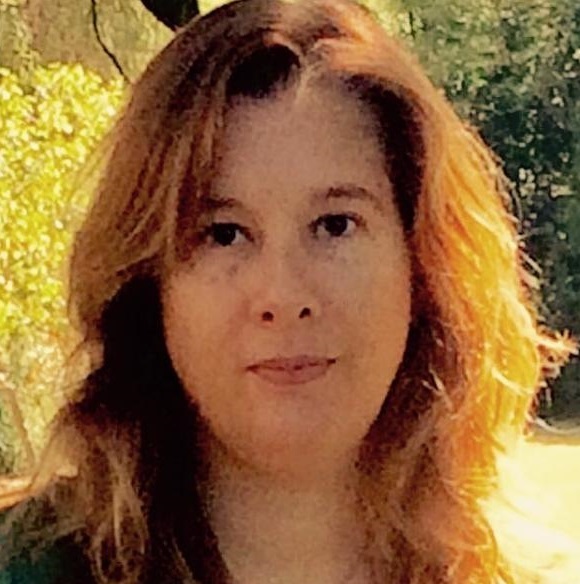
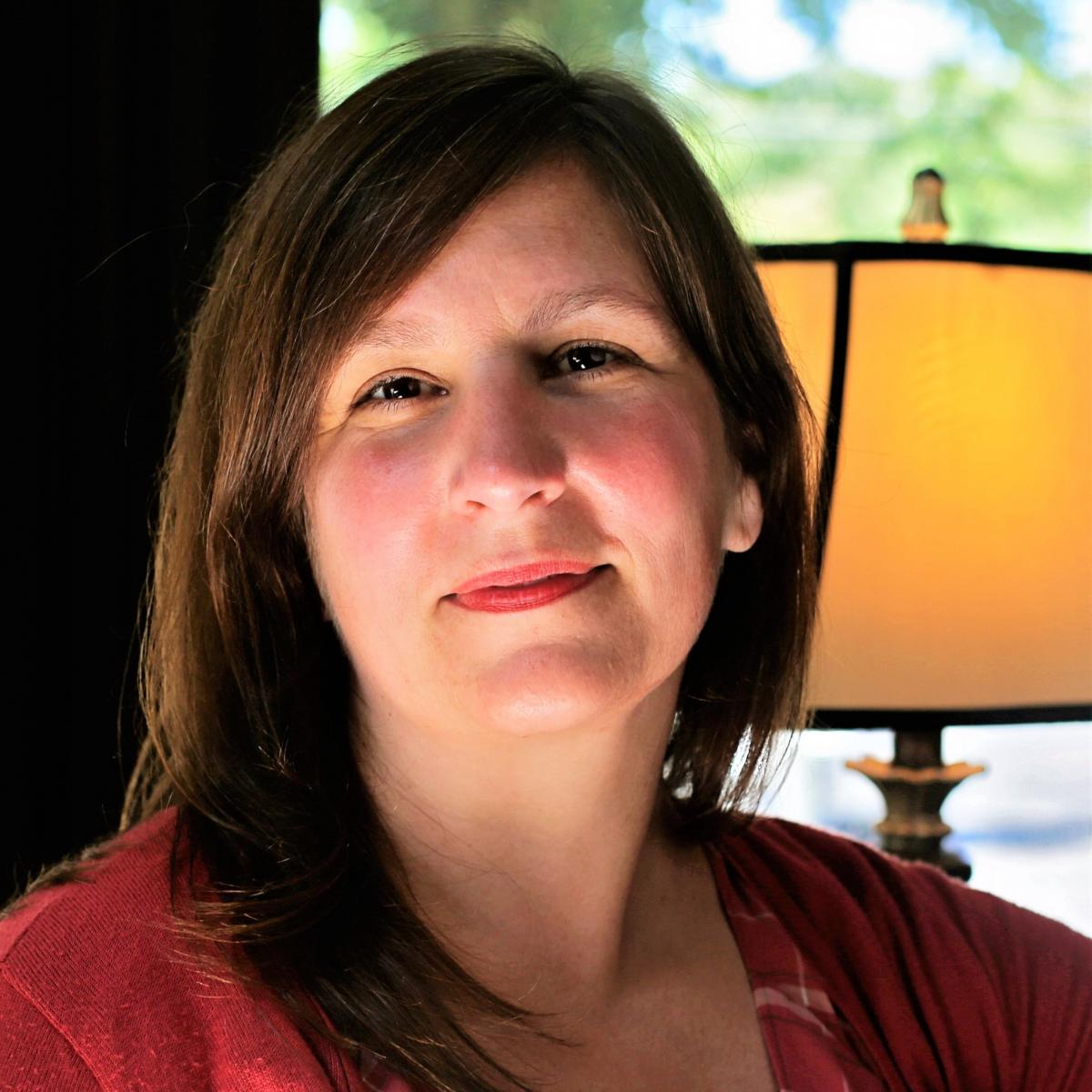
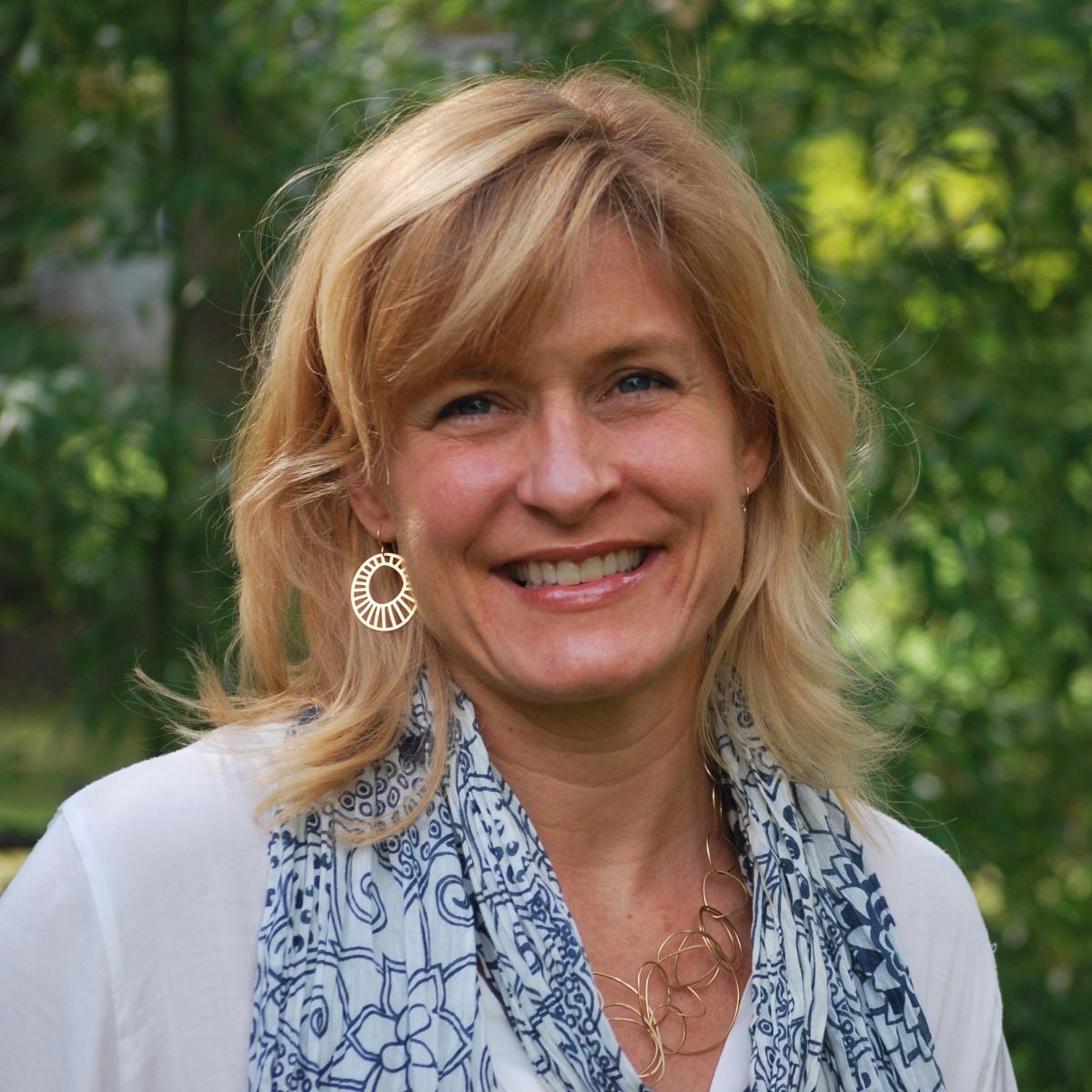
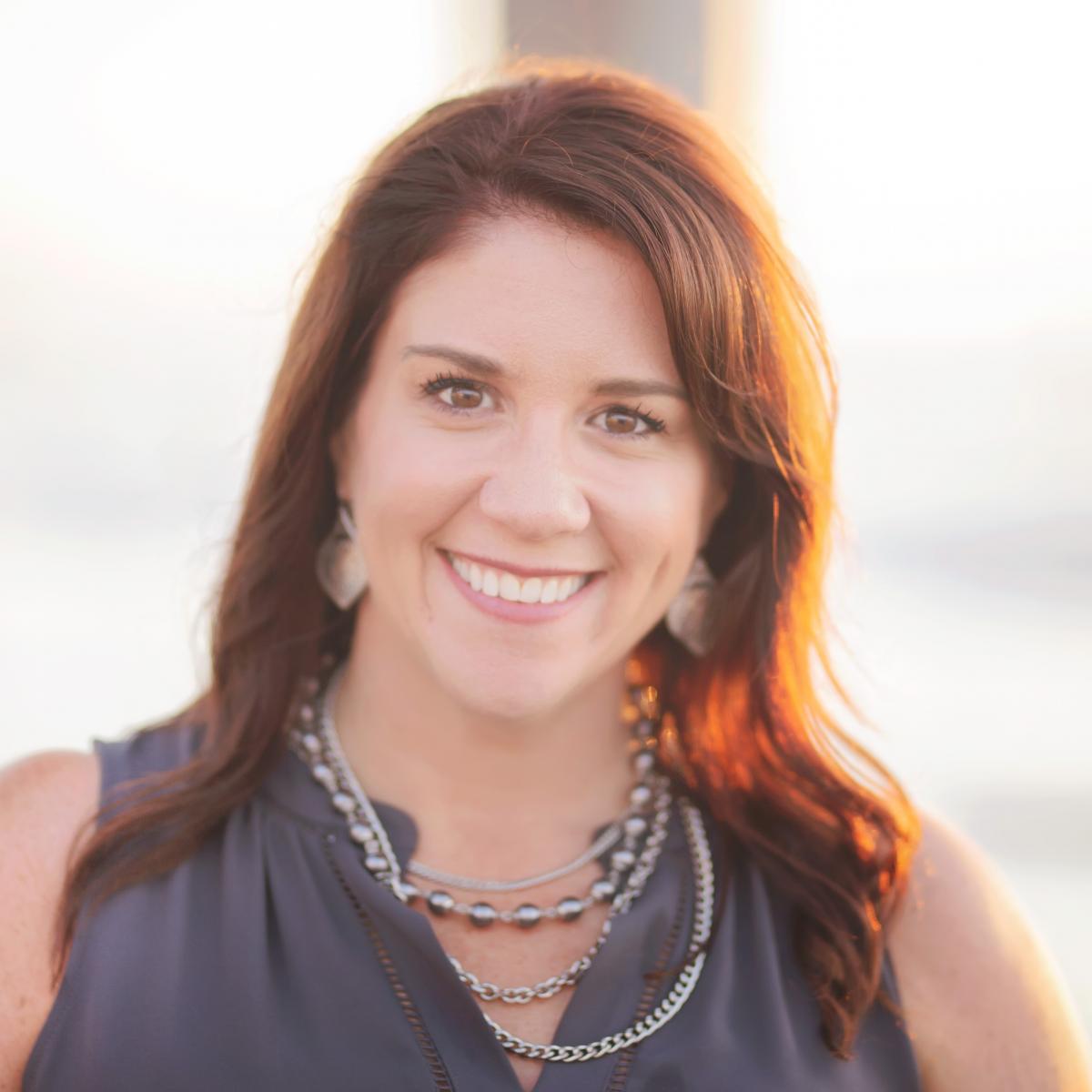
Miranda Morris, Ph.D.
Jenna LeJeune, Ph.D.
Manuela O'Connell, Lic.
Wednesday, July 15, 2020 - 9:00 a.m. - 5:15 p.m.
Interested in teaching or training ACT but don’t know how to proceed? Already teaching ACT and hoping to enhance your skills? The central mission of ACBS is to disseminate contextual behavioral science in the service of the alleviation of human suffering. We need skillful, effective, values-driven teachers and trainers in ACBS. There is also a strong need for a greater diversity of voices among those doing ACT trainings and teaching ACT courses as the ACBS community is striving to become more inclusive and diverse.
While there are many workshops available to train practitioners in the delivery of ACT, there are none - to our knowledge - to train teachers and trainers. A considerable proportion of ACBS members endorse “teaching and training” as a professional activity, so we have an opportunity to expand our reach in spreading CBS worldwide. This workshop is designed to support current and would-be ACT/CBS teachers and trainers from all backgrounds to broaden your skill set and to identify and move forward with your own values-based teaching and training goals.
External barriers(e.g., lack of knowledge or skill) and internal barriers (e.g., lack of confidence) have been shown to contribute to a lack of innovation in education (Schoepp, 2005). Our training team, which consists of four experienced peer-reviewed trainers, will utilize ACT processes to help you address these barriers. This workshop will incorporate research that suggests that experiential learning in which trainees practice applying therapy principles and techniques on themselves increases results in enhanced learning (Bennett-Levy, 2001). For example, you will work through a personal ACT case conceptualization regarding your own narratives, experiential avoidance, and professional values related to teaching and training ACT. Throughout the training, we will engage in experiential practices aimed at increasing psychological flexibility around some of the most common difficulties encountered by both novice and experienced teachers and trainers alike (Walser & Westrup, 2006) (e.g. fusion with thoughts of “I’m not expert enough,” experiential avoidance when it comes to covering more challenging material such as RFT in trainings, etc.). More specifically, in this preconference you will learn:
- To utilize impactful, memorable teaching methods, with special attention to teaching difficult concepts (e.g., functional contextualism, relational frame theory) in accessible ways
- How to create, guide, and unpack experiential practices within a teaching/training context
- What it means to ‘live ACT’, embody the ACT therapeutic stance, and practice psychological flexibility in the context of teaching and training (including informed consent, managing the classroom, handling challenging participants, and handling mistakes and/or surprises).
- The importance of providing culturally sensitive and relevant teaching and training and evidence-based strategies for how best to do so (Hayes, et al, 2004; Sobczak & West, 2013).
- Describe how to teach ACT flexibly in different settings with varying audiences (e.g., 1 hr didactic vs 2 day workshop; grad students vs licensed clinicians, professionals vs general public)
- How to adapt trainings based on modality and audience (e.g., 2-day workshops vs 1 hr talks; first year graduate students vs licensed clinicians)
Bennett-Levy, J., Turner, F., Beaty, T., Smith, M., Paterson, B., Farmer, S., Cook, J. (2001). The value of self-practice of cognitive therapy techniques and self-reflection in the training of cognitive therapists. Behavioural and Cognitive Psychotherapy, 29(2), 203-220.
Hayes, S. C., Bissett, R., Roget, N., Padilla, M., Kohlenberg, B. S., Fisher, G., ... & Niccolls, R. (2004). The impact of acceptance and commitment training and multicultural training on the stigmatizing attitudes and professional burnout of substance abuse counselors. Behavior Therapy, 35(4), 821-835.
Schoepp, K. (2005). Barriers to technology integration in a technology-rich environment. Learning and Teaching in Higher Education: Gulf Perspectives, 2(1), 1-24.
Sobczak, L. R., & West, L. M. (2013). Clinical considerations in using mindfulness-and acceptance-based approaches with diverse populations: Addressing challenges in service delivery in diverse community settings. Cognitive and Behavioral Practice, 20(1), 13-22.
Walser, R. D., & Westrup, D. (2006). Supervising trainees in acceptance and commitment therapy for treatment of posttraumatic stress disorder. International Journal of Behavioral Consultation and Therapy, 2(1), 12-16.
About Jill Stoddard, Ph.D.:
Jill Stoddard is a clinical psychologist and founder/director of The Center for Stress and Anxiety Management, a multi-site outpatient psychotherapy clinic specializing in evidence-based treatments for anxiety and related issues. Dr. Stoddard received her Ph.D. in clinical psychology from Boston University where she trained at the highly regarded Center for Anxiety and Related Disorders. She completed her APA accredited internship and post-doctoral fellowship at UCSD’s School of Medicine Department of Psychiatry. She is an author, award-winning teacher, and peer-reviewed ACT trainer. She has coauthored articles on ACT, CBT, anxiety, trauma, and pain. She also coauthored The Big Book of ACT Metaphors: A Clinician’s Guide to Experiential Exercises and Metaphors in Acceptance and Commitment Therapy; her second book, Be Mighty: A Woman’s Guide to Mastering Anxiety, Worry, and Stress Using Mindfulness and Acceptance, will be published in January 2020. She is on the board of the Association for Contextual and Behavioral Sciences, is a co-founder and vice-president of the non-profit San Diego Cognitive Behavioral Therapy Consortium, and is a member of the Association for Behavioral and Cognitive Therapies and the Anxiety and Depression Association of America.
About Miranda Morris, Ph.D.:
Miranda Morris, Ph.D. is the founder of DC ACT, an organization that provides training and consultation in ACT and other contextual behavioral therapies. She is a peer-reviewed ACT Trainer and has conducted workshops in the US and abroad. She co-founded the Mid Atlantic Chapter of ACBS (MAC ACBS), a group committed to disseminating contextual behavioral science and to building a strong ACBS community in the Mid Atlantic. In addition, she currently serves on the Executive Board of the Association for Contextual Behavioral Science (ACBS) and is President Emeritus of the Mid-Atlantic Chapter of the ACBS. Miranda is a licensed psychologist in private practice in Bethesda, MD. She treats a broad range of difficulties including anxiety, OCD, depression, trauma, relationship problems, and pervasive difficulties often referred to as 'personality disorders'.
About Jenna LeJeune, Ph.D.:
Jenna LeJeune, Ph.D. is President and co-founder of Portland Psychotherapy Clinic, Research, and Training Center. She currently serves on the ACBS Training Committee. As a peer-reviewed ACT trainer who provides trainings for professional around the world, Jenna has a strong interest in presenting ACT and CBS processes in such a way as to make them accessible and relevant to a wide range of audiences. She is co-author of the book Values in Therapy: A Clinician’s Guide to Helping Clients Explore Values, Increase Psychological Flexibility, and Live a More Meaningful Life (2019). In her clinical practice, Jenna specializes in working with adults struggling with various relationship difficulties, including problems with intimacy and sexuality, trauma-related relationship challenges, and struggles people may have in their relationship with their own bodies.
About Manuela O'Connell, Lic.:
Peer reviewed ACT trainer. Clinical psychologist specialize in ACT and Mindfulness. Does trainings in different countries in South America and in several places in Argentina. Author of the ACT for the public book written in Spanish called Una vida valiosa by Penguin Random House. Contributor in The heart of ACT book.
Learning Objectives:
Following this workshop participants will be able to:
- Identify personal strengths, growth areas, and values for yourself as a teacher/trainer utilizing a Self Case Conceptualization based on a psychological flexibility model
- Distinguish between didactic and experiential teaching methods and explain the relative merits of each
- Create, guide, and process experiential learning exercises
- Describe how to teach ACT flexibly in different settings with varying audiences (e.g., 1 hr didactic vs 2 day workshop; grad students vs licensed clinicians)
- Demonstrate how to teach technical concepts such as functional analysis, functional contextualism, and RFT in effective and accessible ways
- Demonstrate strategies for responding effectively to challenging participants and circumstances (e.g., exercises that don’t go as planned, equipment failures)
- Explain at least 3 ways to cultivate cultural sensitivity and inclusivity in your training approach
- Demonstrate an understanding of the core competencies for becoming a well-rounded teacher/trainer of ACT - the Heart, Hands and Head of ACT
- Demonstrate how to both teach and model the 6 core psychological flexibility processes in a classroom or training setting
- Explain the value of teaching ACT as a process-driven approach rather than a technique-driven approach
Target Audience: Intermediate, Advanced, Clinical
Components: Experiential exercises, Didactic presentation, Case presentation, Role play
Package Includes: A general certificate of attendance, lunch, and twice daily coffee/tea break on site.
Here, Now, and Between Us: Functional Analytic Psychotherapy and the power of the therapeutic relationship
Here, Now, and Between Us: Functional Analytic Psychotherapy and the power of the therapeutic relationship
Here, Now, and Between Us: Functional Analytic Psychotherapy and the power of the therapeutic relationship

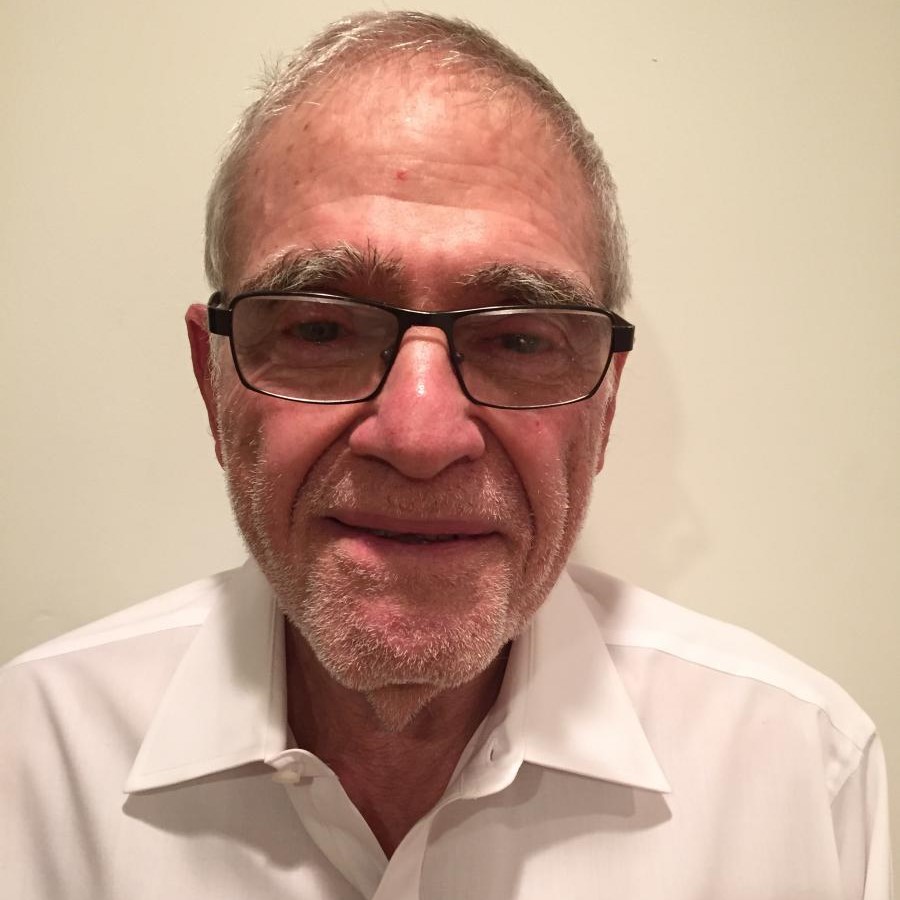
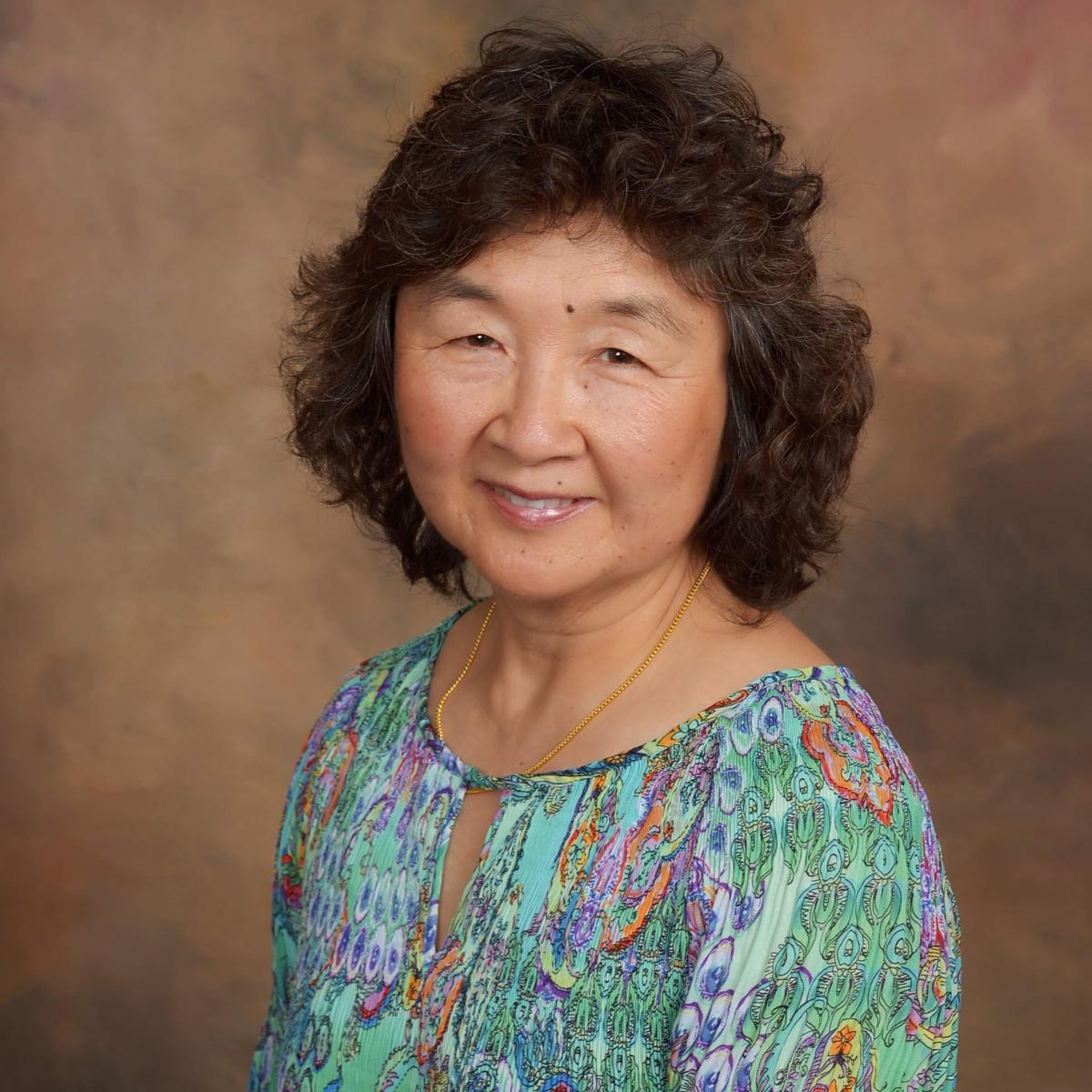
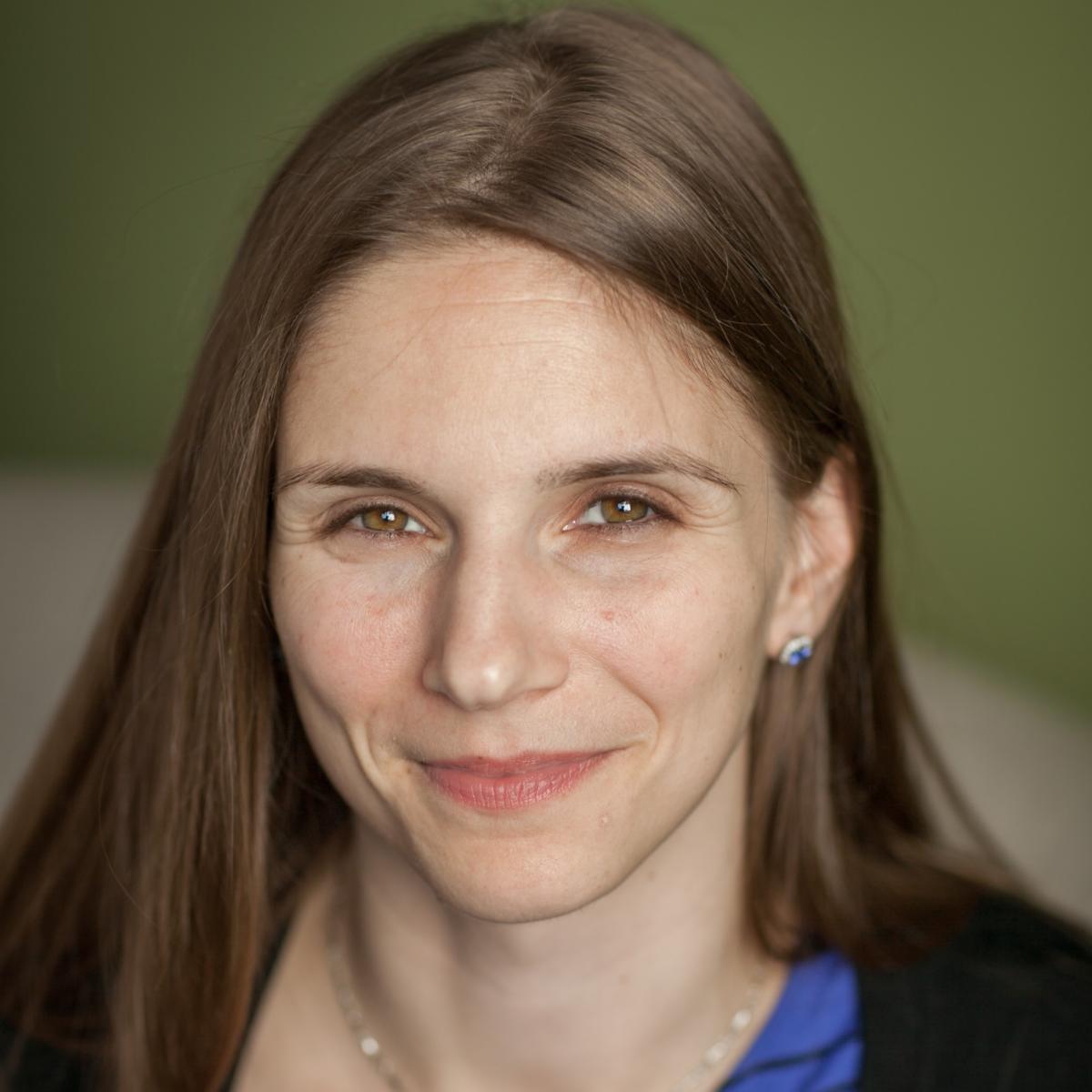
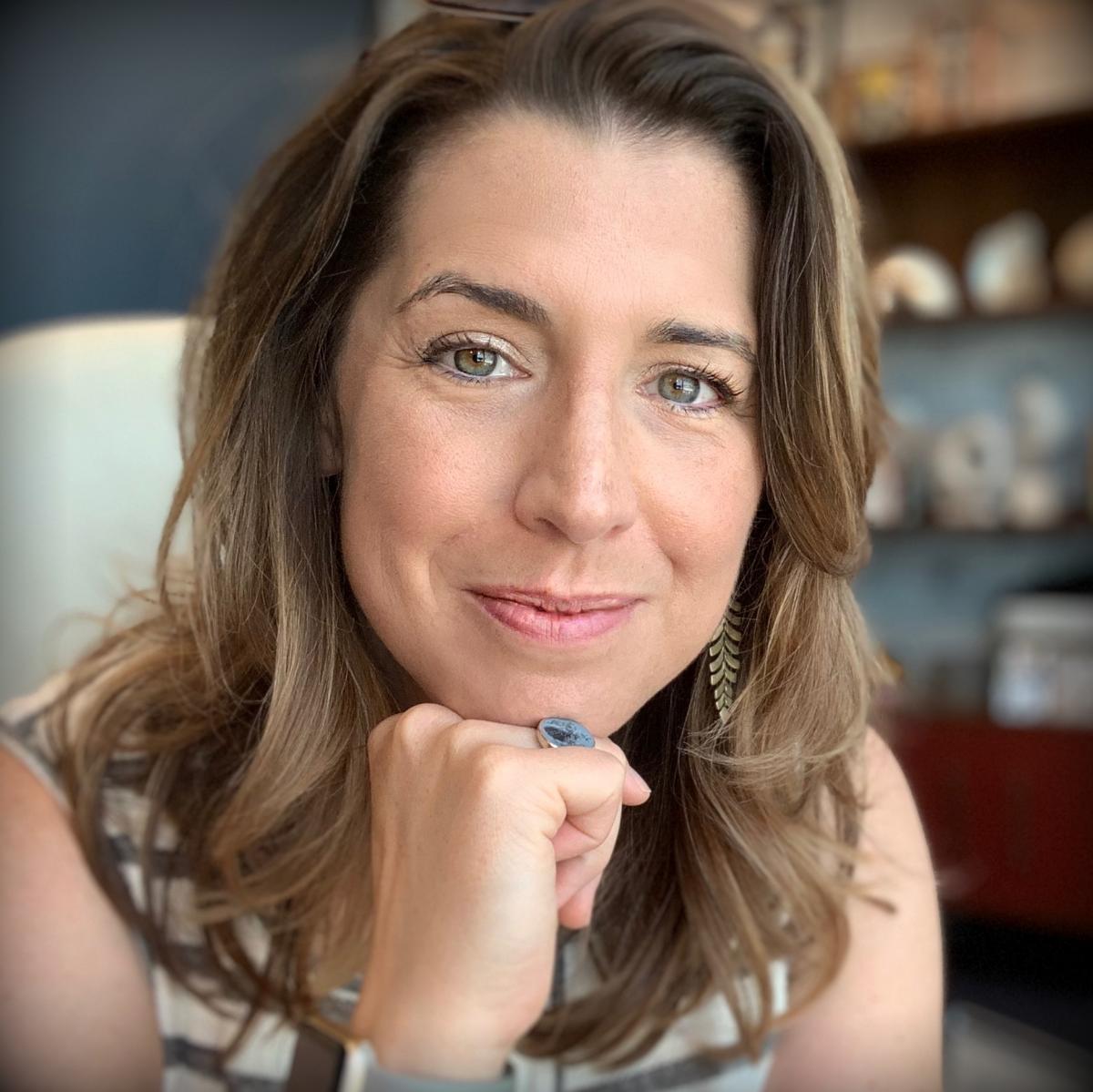
Sarah Sullivan-Singh, Ph.D.
Mavis Tsai, Ph.D.
Robert J. Kohlenberg, Ph.D.
Wednesday, July 15, 2020 - 9:00 a.m. - 5:15 p.m.
As numerous pressures push our profession towards manualized intervention toolkits targeted at nomothetically-defined outcomes, this workshop aims to cultivate your ability to harness the wellspring of therapeutic opportunity available within each unique relationship we create with our clients. This is the promise of Functional Analytic Psychotherapy: a Contextual Behavioral Science (CBS) therapy for those who value basic behavioral science as much as they feel awed by the power of the therapy relationship.
We will begin by presenting a clear theoretical rationale, rooted in basic behavioral tenants, for integrating a particular type of interpersonal focus within any therapy approach you already practice. Five simple, yet profound, rules of practice comprise this framework: 1) identify clinically-relevant behavior occurring in session via functional analysis, 2) evoke these behaviors during the therapy hour, 3) shape these behaviors with your immediate authentically attuned responses, 4) customize and refine your responding by observing the impact of your interpersonal reinforcers on the client, and 5) work with the client to generalize improved in-session behavior into life outside of therapy. In this workshop, you will have the opportunity to practice seeing and hearing your clients through this lens of compassionate functional analysis and to enhance your awareness of tools for reinforcing client improvements.
As technical as the underlying behavioral roots of FAP are, the therapy that emerges from them is fundamentally human and emotionally intimate as it calls on both client and therapist to engage in reciprocal transactions of candid behavior. The relationship comes alive and transforms into an in-vivo laboratory in which you invite the client to attempt new, more effective behaviors in service of their values and goals. As the work progresses, FAP therapists shape and reinforce improvement by illuminating the positive impact it has on both them and the therapy relationship. In short, we encourage clients to practice, “right here, right now,” behaviors that are functionally equivalent to those they wish to implement in their lives outside of session. Because clients emit new behaviors in your presence, they benefit from the enhanced reinforcement of your immediate and sincere responding. Hence, increasing your own self-awareness, courage, and judiciousness in how you share your authentic self and emotional vulnerability allows you to augment the potency of your in-the-moment responses to clients.
Following a logical arc that weaves together essential didactic elements of theory, CBS rationale, and ethical considerations, the workshop will also introduce a curriculum of new experiential exercises that provides balance among intellectual, practical, and personal development. Of note, we will encourage you to reveal yourself, including your vulnerability, to the extent that it supports your learning and development both personally and professionally and with an ongoing, thoughtful consideration of your needs and limits within the workshop setting. Along the way, you will create a FAP Case Conceptualization for a client, build a FAP Therapist Case Conceptualization for yourself, and practice the 5 Rules of FAP in “real-plays” with peers in small groups. We will prepare you to learn from these experiential exercises, and to take FAP on the road with you to your clients, via didactic presentations, live demonstrations, segments of video from therapy sessions conducted by the trainers, and a compendium of FAP-consistent clinical tools and resources that you will take home with you.
Whether you are new to FAP or have been practicing FAP for years, our hope is that you will leave the workshop with a deepened awareness of yourself, an awakened excitement about the possibilities of the therapy relationship, and an enlivened commitment to igniting it with each of your clients. As trainers, we plan to do the same.
About Mary P. Loudon, Ph.D.:
Dr. Loudon is an internationally recognized expert in Functional Analytic Psychotherapy (FAP) who earned her doctorate in clinical psychology at the University of Washington where she developed expertise in contextual behavioral science (CBS) approaches including FAP, Acceptance and Commitment Therapy (ACT), and Mindfulness-Based therapies. After completing her post-doctoral fellowship with Dr. Mavis Tsai, she became a Certified FAP Trainer and has since led/co-led over 25 FAP training workshops, intensives, and courses. Dr. Loudon has innovated new training techniques and content, and has taught, supervised, and provided consultation for hundreds of practitioners domestically and abroad.
In 2009, Dr. Loudon was appointed Clinical Faculty at the University of Washington in the Department of Psychology and since this time she has provided clinical supervision to doctoral students in FAP, ACT, and EFT. In her private practice, she works with individual adults and couples across a wide span of concerns including anxiety, emotional avoidance and disconnection from self or others, low mood, grief, trauma, and interpersonal connection and intimacy. She also provides therapy for therapists - an endeavor especially suited for professionals who want to improve their therapeutic skills while cultivating deeper courage, awareness, and love in their personal lives.
In 2014, Dr. Loudon co-founded The Seattle Clinic, a community of over 20 practicing psychologists who bring together expertise in a wide variety of 3rd wave therapies including FAP, ACT, DBT, and MBCT. She spearheaded and continues to co-lead the in-house FAP/ACT Consultation Team, while offering periodical 12-week FAP Therapist Training Programs for unaffiliated therapists. In the coming year, she will be launching a pre-internship FAP practicum for graduate students with Dr. Sullivan-Singh. She also offers consultation to outside groups of practitioners interested in staring FAP Consultation groups of their own.
Finally, Dr. Loudon has maintained an interest and expertise in minority and LGBT psychology throughout her academic and clinical career, devoting her graduate research to the psychological effects of bias on members of stigmatized minority groups. As a psychologist and a member of the LGBT community, it is Mary’s passion to harness the power of interpersonal connection in service of social justice. To this end Dr. Loudon has been involved in the development and implementation of CBS-based approaches to anti-racism work. Specifically, she collaborated with other CBS scientists, clinicians, and researchers to create an ACT & FAP based anti-racism workshop which has been offered in a variety of settings.
About Sarah Sullivan-Singh, Ph.D.:
Dr. Sullivan-Singh earned her doctoral degree in clinical psychology from UCLA and completed a postdoctoral fellowship within the University of Washington Rehabilitation Medicine Department before beginning her independent practice. She is a Clinical Instructor within the University of Washington (UW) Psychology Department where she supervises graduate students treating clients using ACT and FAP. Dr. Sullivan-Singh routinely guest lectures to psychology interns and psychiatry residents in the UW Department of Psychiatry and Biobehavioral Sciences (student feedback available upon request). Currently, she is also providing ongoing consultation and clinical supervision to a randomized-controlled trial at the UW Center for the Science of Social Connection of a brief FAP intervention for individuals who report high fears of intimacy.
About Mavis Tsai, Ph.D.:
Dr. Tsai, co-originator of FAP, is a clinical psychologist and senior research scientist at University of Washington’s Center for Science of Social Connection. She is the co-author of five books on FAP (some of which have been translated into Portuguese, Spanish, Japanese, Italian, Korean and Persian), and over 70 articles and book chapters. She is an ACBS Fellow, and received the Washington State Psychological Association’s Distinguished Psychologist Award in recognition of significant contributions to the field of psychology. She gave a TEDx talk “Create Extraordinary Interactions”, has presented “Master Clinician” sessions at the Association for Behavior and Cognitive Therapy, has led numerous workshops nationally and internationally, and trains online clinicians all over the world in FAP. As Executive Director of the Nonprofit Organization ‘Awareness, Courage & Love Global Project” which brings FAP to the general public, she trains volunteers to lead chapters in six continents to create a worldwide- network of open-hearted change-seekers who strive to meet life’s challenges through deepening interpersonal connection and rising to live more true to themselves.
About Robert J. Kohlenberg Ph.D.:
Dr. Kohlenberg received his doctorate at UCLA and is a Professor of Psychology at the University of Washington where he served as the Director of Clinical training. He is certified by the American Board of Professional Psychology, received the Washington State Psychological Association’s Distinguished Psychologist Award, and is a Fellow of ACBS, Society for Exploration of Psychotherapy Integration, and American Academy of Clinical Psychology. He is the co-originator of Functional Analytic Psychotherapy (FAP), has attained research grants for FAP treatment development, has co-published many papers and six books, including Functional Analytic Psychotherapy: A Guide for Creating Intense and Curative Therapeutic Relationships.
Learning Objectives:
Following this workshop participants will be able to:
- Describe the 5 Rules of FAP and the behavioral theory underlying them.
- Identify both functional classes and specific examples of problematic and improved in-session client behavior.
- Plan and practice effective therapist responses to problematic and improved in-session client behaviors.
- Analyze how your own problematic and improved in-session therapist behaviors may interact with your clients’ behaviors.
- Demonstrate ability to implement functional analysis, recognize and evoke clinically relevant behavior, and contingently reinforce target behaviors by sharing your genuine responses during experiential exercises.
- Create a personalized FAP therapist case conceptualization that identifies your own problematic and target therapist behaviors.
- Prepare a FAP case conceptualization and treatment plan for one client that demonstrates the application of functional analysis to client behavior and awareness of the impact of your own therapist behavior on the client.
- Demonstrate skill in giving, receiving, and responding to positive and negative feedback in service of assessing your own therapist behaviors and planning and practicing how to more powerfully evoke and reinforce target client behaviors.
- Discuss ethical considerations related to cultivating intense therapeutic relationships with clients when using FAP.
- Acquire skills to build your own FAP Consultation Team and/or to bring FAP into your existing ones.
Target Audience: Beginner, Intermediate, Advanced, Clinical
Components: Experiential exercises, Didactic presentation, Case presentation, Role play
Package Includes: A general certificate of attendance, lunch, and twice daily coffee/tea break on site.
Mindfulness and Compassion Focused Therapy for Everyone
Mindfulness and Compassion Focused Therapy for EveryoneMindfulness and Compassion Focused Therapy for Everyone
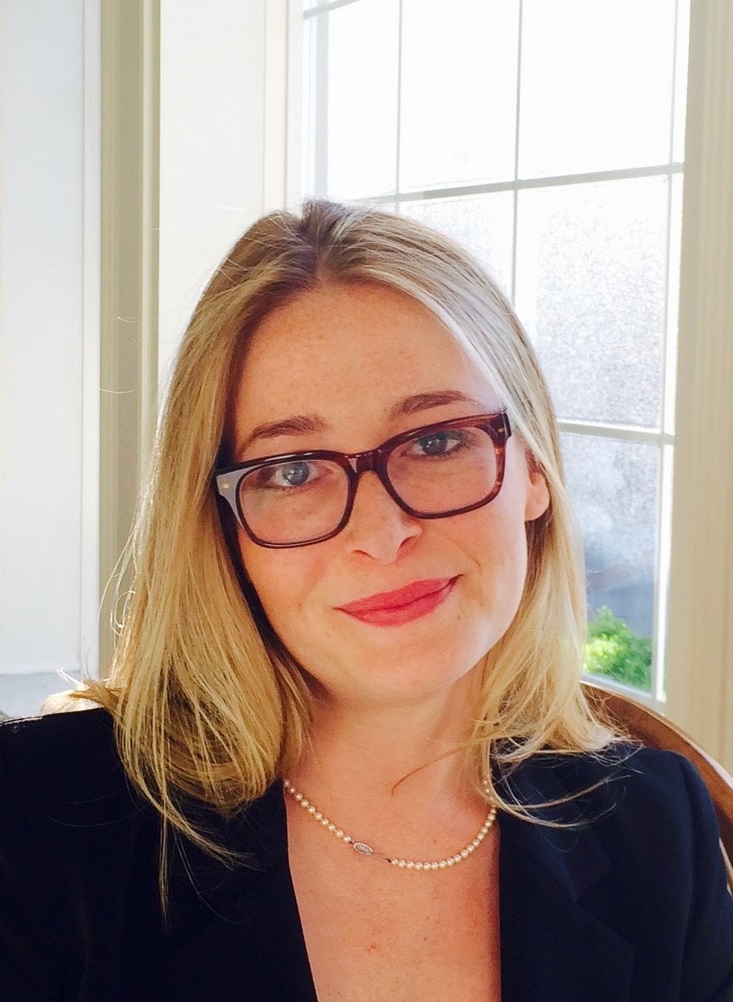
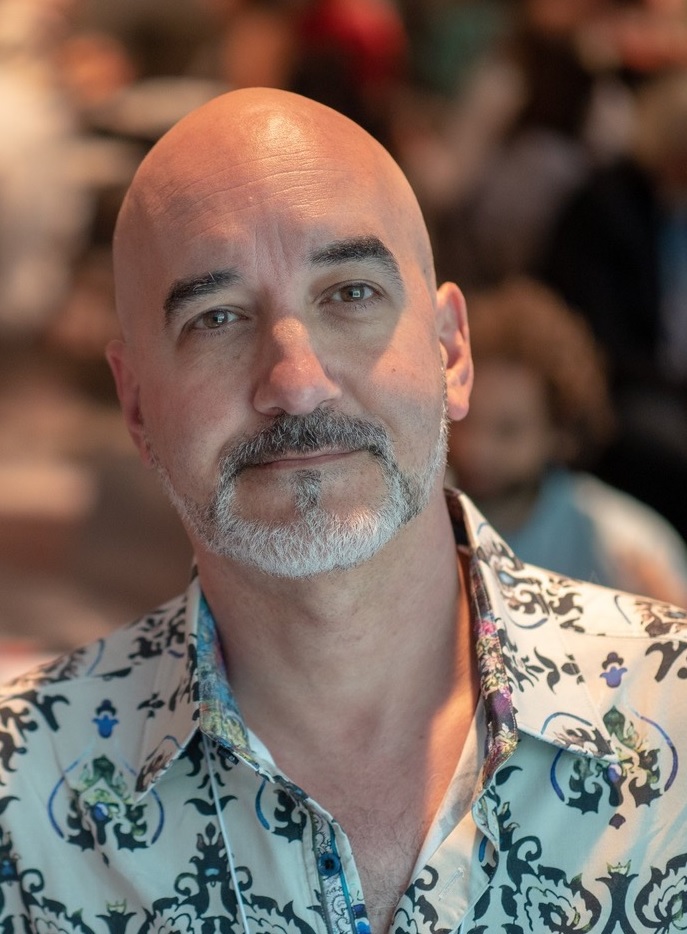
Dennis Tirch, Ph.D.
Wednesday, July 15, 2020 - 9:00 a.m. - 5:15 p.m.
We know that developing mindfulness, acceptance and compassion can lead to growth in well-being and psychological flexibility. But, how can we focus our efforts, and robustly train these capacities for our clients and ourselves? How do we awaken the compassionate mind, to move ever more fully into lives of meaning, purpose and vitality?
Compassion Focused Therapy (CFT) training can be a path to personal growth and performance enhancement for therapists practicing just about any approach. Over the last 10 years, thousands of ACT practitioners, in particular, have added CFT tools to their repertoire, changing the game and exploring new ways of working with their personal and professional selves. During the past 15 years, CFT has been found to be beneficial for people experiencing a wide range of difficulties, and recent advances in research and practice have suggested that compassion may be one of the most important processes in psychotherapy effectiveness.
This deeply experiential workshop will explore the foundational series of mindfulness and compassion imagery practices that make up the heart of CFT. Participants will learn these practices through direct, personal experience, learning CFT from the inside out. In addition to meditative exercises, we will demonstrate and practice ways to build up self-compassion through the psychotherapy relationship, using classic compassion training methods in the natural flow of a therapy session. We will review and explore the relationship between compassionate mind training and psychological flexibility, grounding our work in evolutionary science, attachment theory, and contextual behavioral theory. An array of learning tools will be used, including guided mindful compassion practice, role-play exercises, self-reflection, mindful movement, narrative, video and case examples.
Wherever you may be in your professional journey, from beginner to seasoned expert, you may find that these methods can complement and strengthen your therapeutic approach. No previous CFT experience is necessary, and the trainers are aiming to help ACT and FAP therapists, in particular, as they integrate a compassion focus into the work they do. This workshop presents a novel approach to understanding the therapy – aimed at helping participants to advance their compassion work. This is an opportunity to integrate the dimensions of compassion work into your practice, while renewing your understanding of the fundamental dynamics of mindfulness and compassion. Together, we will build a road map towards increased compassion-based living, mindful courage, and psychological flexibility.
About Dennis Tirch, Ph.D.:
Dennis Tirch, Ph.D., is President of The Association for Contextual Behavioral Science (ACBS) and the Founder of the Center for Compassion Focused Therapy in New York. Dr. Tirch is the author/co-author of numerous books, chapters, and peer-reviewed articles on ACT, CFT, CBT, and Buddhist psychology. Dr. Tirch also serves as an Associate Clinical Professor at the Icahn School of Medicine at Mt. Sinai Medical Center, and as President of The Compassionate Mind Foundation, North America. Dr. Tirch provides workshops and courses globally in mindfulness, compassion and acceptance, both in person and online. Dr. Tirch is a Fellow of ACBS, and is a Fellow and Consultant/Supervisor with the Academy of Cognitive Behavioral Therapy. Dr. Tirch is a Dharma Holder, Board Member, and Co-Founder of the Flowing Heart Temple (Ryushin-ji) of The Zen Garland Order, in New York.
About Laura Silberstein-Tirch, Psy.D.:
Laura R. Silberstein-Tirch, Psy.D., is the Director of the Center for Compassion Focused Therapy. Dr. Silberstein-Tirch is a clinical psychologist, supervisor and compassion-focused therapy (CFT) trainer who presents internationally on mindfulness, compassion and acceptance. She is the author of How to Be Nice to Yourself: The Everyday Guide to Self-Compassion and co-author of Experiencing ACT from the Inside Out, Buddhist Psychology and CBT a Clinician’s Guide and The ACT Practitioner's Guide to the Science of Compassion. She is a founding member and Past-President of the New York City chapter of the Association for Contextual Behavioral Science and the Executive Director, The Compassionate Mind Foundation, North America. Her research interests include psychological flexibility and emotions as well as CFT for anxiety and depression.
Learning Objectives:
- Participants will be able to describe and work with an ACT-friendly CFT definition of compassion in practice.
- Participants will be able to teach others how evolutionary science explains the powerful links we see among attachment dynamics, compassion and psychological flexibility.
- Participants will be able to work with the three-circle model of emotion regulation found in CFT.
- Participants will have a working knowledge of the 7 core attributes of compassionate flexibility, and how they can be assessed, conceptualized and developed in psychotherapy.
- Participants will learn to deploy compassion in the therapeutic relationship to create a context of embodied compassion for themselves and their clients.
- Participants will learn to assist clients in working with "multiple self" experiences, bringing compassion to challenging emotional "selves."
- Participants will understand the relationship between courage, psychological flexibility and compassion, learning how training in either can help build up both qualities.
- Participants will be able to use compassion focused imagery with clients and themselves.
- Participants will be able to build on compassion focused imagery and multiple-self work, using compassion focused role-plays in group or individual psychotherapy.
- Participants will be able to help their clients take a compassion-focused approach to becoming the author of valued directions in life.
Target Audience: Beginner, Intermediate, Advanced, Clinical
Components: Conceptual analysis, Experiential exercises, Didactic presentation, Case presentation, Role play
Package Includes: A general certificate of attendance, lunch, and twice daily coffee/tea break on site.
Nurturing Roots to Reach New Heights: Revisiting Foundations of ACT as Clinical Behavior Analysis for Mastering Flexible, Process-Based Implementation
Nurturing Roots to Reach New Heights: Revisiting Foundations of ACT as Clinical Behavior Analysis for Mastering Flexible, Process-Based ImplementationNurturing Roots to Reach New Heights: Revisiting Foundations of ACT as Clinical Behavior Analysis for Mastering Flexible, Process-Based Implementation
.jpg)
Wednesday, July 15, 2020 - 9:00 a.m. - 5:15 p.m.
Acceptance and Commitment Therapy (ACT) is defined by its behavior analytic roots and its focus on building flexibility into the behavioral repertoire. Many ACT clinicians, however, find behavior analytic language lacking in its ability to capture and inform the clinical work they do every day. Instead, ACT assessments and interventions are typically guided by less specific, “mid-level terms,” such as acceptance, defusion, and values. While mid-level terms certainly reduce the barriers to learning ACT as a new approach, they may unnecessarily limit the clinicians’ application of ACT to the creation and use of techniques, exercises, and metaphors that target flexibility components. This workshop offers practice with an alternative approach to ACT mastery - ACT as clinical behavior analysis.
ACT as clinical behavior analysis is simply the direct clinical application of functional contextual behavioral science and behavior analytic theory, typically in a talk therapy format. Many have dismissed behavior analysis as cold, rigid, and overly technical. However, practicing ACT as clinical behavior analysis tends to bring clinicians closer to practicing in a way that is connected, compassionate, and closely attuned to the therapist-client interaction. Far from building in rigidity, practicing ACT as clinical behavior analysis fosters innovation and therapist growth.
Using an experiential approach that progressively builds skills across two days, participants will practice the functional analysis of moment-to-moment therapy process in service of building clients’ psychological flexibility. These practice opportunities will begin with only the most basic philosophical assumptions underlying ACT and move through principles that are increasingly specific, converging on the ACT components that are typically described in mid-level terms. Participants will leave the workshop with a simple but effective behavioral framework in hand for providing clients opportunities to develop flexible, adaptive, and expansive patterns of behavior that extend far beyond the therapy room.
About Emily K. Sandoz, Ph.D.:
Dr. Emily K. Sandoz is the Emma Louise LeBlanc Burguieres/BORSF Endowed Professor of Social Sciences in the Psychology Department at the University of Louisiana at Lafayette. Emily is the Director of the Louisiana Contextual Science Research Group and the Editor-in-Chief of the Journal of Contextual Behavioral Science. She has co-authored three books on acceptance and commitment therapy for struggles with eating and body image, along with chapters and journal articles on ACT, Relational Frame Theory, values, the therapeutic relationship, and psychological flexibility. Emily has led more than 70 professional training workshops around the world, and serves as a peer-reviewed ACT trainer. She also practices as a Clinical Psychologist, focusing on clinical behavior analysis of body-related difficulties.
Learning Objectives:
Following this workshop participants will be able to:
- Describe three clinical implications of functional contextualism for clinical behavior analysis.
- Analyze talk therapy interventions in terms of the function game vs. the correspondence game.
- Analyze talk therapy interventions by tracking the functional relationship between context and behavior.
- Demonstrate clinical behavior analytic interventions based on analyses of the functional relationship between context and behavior.
- Analyze talk therapy interventions by tracking behaviors under aversive and appetitive control.
- Demonstrate clinical behavior analytic interventions based on analyses of aversive and appetitive control.
- Describe the psychological flexibility model of psychological well-being in behavioral terms.
- Describe the psychological flexibility model of clinical behavioral intervention in behavioral terms.
- Assess psychological flexibility in the therapeutic interaction, along with the manipulable conditions that influence it.
- Demonstrate interventions that manipulate immediate conditions to build psychological flexibility.
Target Audience: Intermediate, Advanced, Clinical
Components: Conceptual analysis, Experiential exercises, Case presentation, Role play
Package Includes: A general certificate of attendance, lunch, and twice daily coffee/tea break on site.
Reclaiming Humanity amidst Injustice: A Contextual Behavioral Science Skills-Based Approach to Social Connection Across Cultural Differences
Reclaiming Humanity amidst Injustice: A Contextual Behavioral Science Skills-Based Approach to Social Connection Across Cultural Differences
Reclaiming Humanity amidst Injustice: A Contextual Behavioral Science Skills-Based Approach to Social Connection Across Cultural Differences

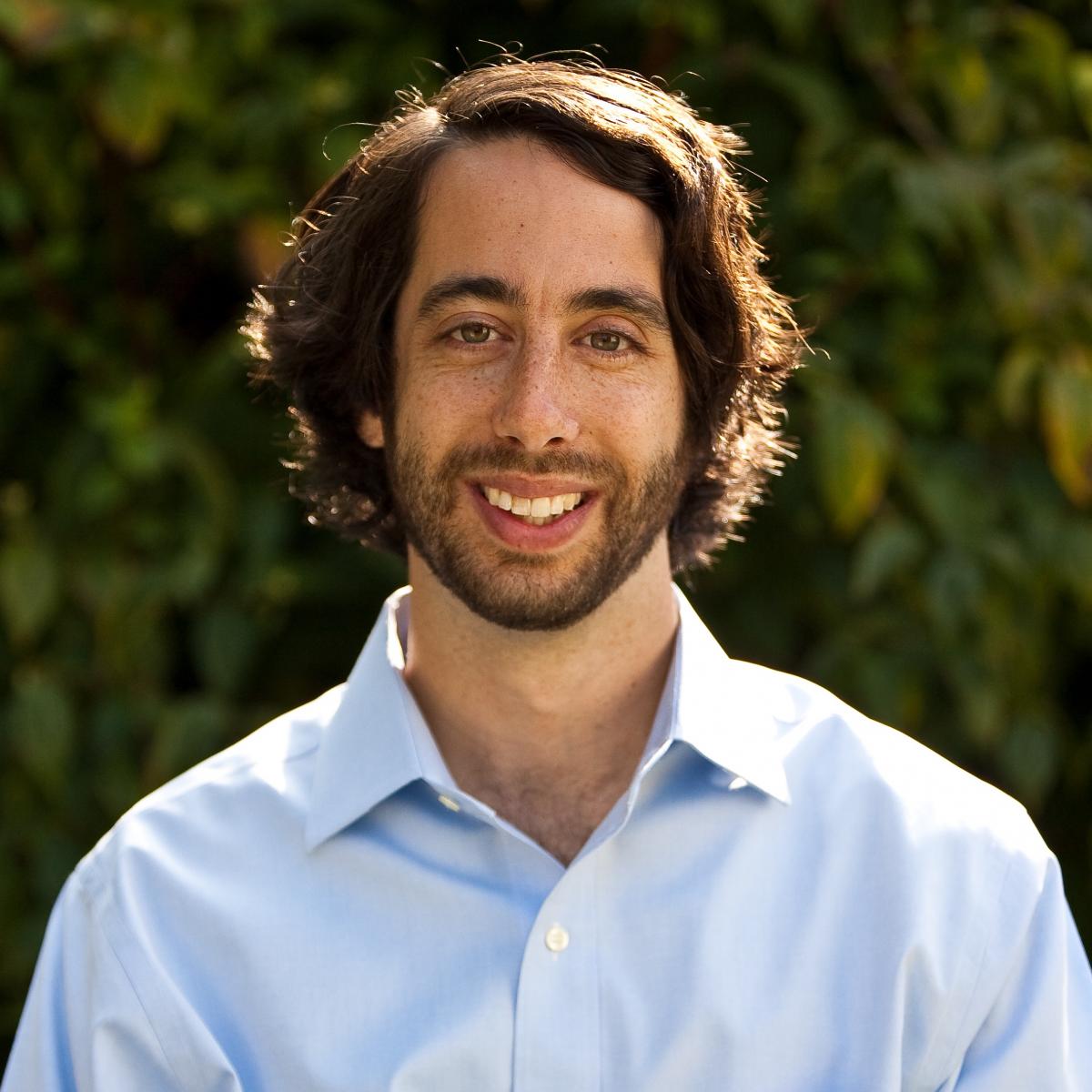
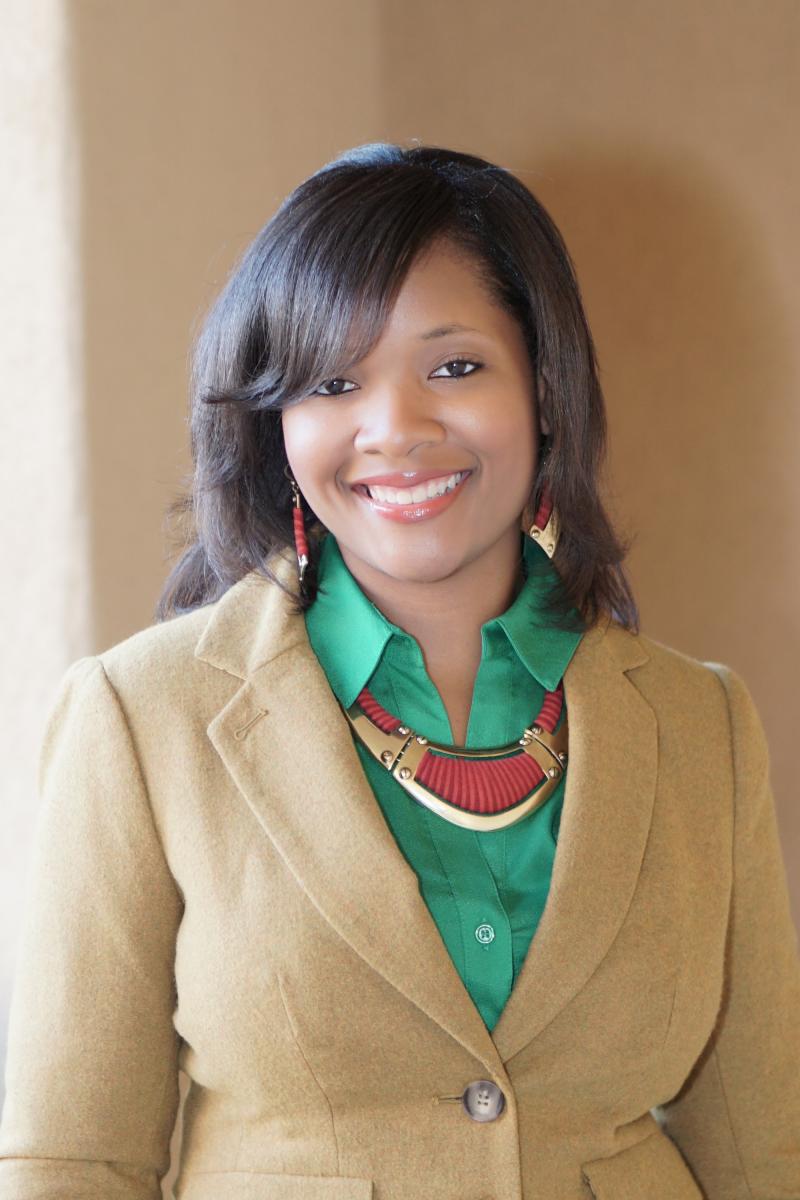
Wednesday, July 15, 2020 - 9:00 a.m. - 5:15 p.m.
The past year has demonstrated in blunt form how racism, sexism, and other forces of oppression are still deeply rooted in our societies, with toxic and deadly impacts. We are alarmed and appalled by the sharp increase in explicit acts of hatred which have recently occurred across multiple nations, just as we are concerned about the less visible, longstanding manifestations of oppression that have existed for centuries. At the same time, we recognize developments in psychological science that suggest that bias and prejudice exist as normative psychological processes on both an implicit and explicit level. These biases operate within all human beings, including well-meaning individuals who disavow hatred and oppression and espouse deeply held pro-social values – and even within communities that aspire to be safe havens of peace and love, like ACBS.
We believe that contextual-behavioral science (CBS) harbors abundant and largely untapped potential for addressing these problems in a global context. This two-day workshop is a direct application of CBS principles to the psychological processes that function as obstacles to connection across cultural differences. These principles and processes will be engaged with recognition of the broader context of institutional and structural forms of oppression. We will adopt an intersectional framework that explores how interpersonal contexts where we encounter difference (across race, gender, sexual orientation and many other identities) can result in a range of outcomes from experiences of disconnection and invalidating microaggressions to meaningful and intimate exchanges and deep connectedness.
The workshop will be largely experiential, with exercises grounded in a contextual-behavioral understanding of behavior change and applicable to participants inclusive of all nationalities. The specific processes of ACT and the five rules of FAP will be applied in this uncharted territory of connecting across cultural difference. Acceptance, defusion, and self-focused exercises are designed to increase awareness of sources of anxiety and bias that influence our behavior, and small-group exercises are designed to facilitate sustainable, intentional behavior change in intercultural interactions. We aim to produce more than a transient “feel good” experience. Rather, we aim to help attendees walk the difficult walk of utilizing CBS principles in moments that matter, whether they are interactions at a work meeting, a dinner with extended family, or a clinical encounter. In recognition of the challenging nature of these encounters, self-compassion exercises will be infused to facilitate a sense of connectedness, self-care, and present-moment focus during difficult dialogues. The theoretical and empirical foundations of exercises will be discussed and the workshop will also focus on generalizing the experiential work into the daily-life contexts of attendees through modeling, role-play practice, and feedback. Each participant will be asked to identify committed actions they can take to benefit the ACBS community throughout the World Conference, in their clinical work, and within their home communities.
The presenters have been developing, presenting and refining the ideas and exercises that will inform this workshop for several years and across multiple contexts. Empirical support for the CBS-informed exercises that will be engaged in the workshop have been demonstrated by two recent randomized controlled trials. Participants who engaged in these interventions demonstrated improved (more empathic and less biased) behavior when in clinical encounters with patients of color, and heightened feelings of connectedness and understanding when in inter-racial interactions that generalized to other members of out-groups not in attendance. In this workshop we will broaden an application of these mechanisms beyond race to multiple cultural identities.
Please note: the presenters are equal collaborators. They are listed alphabetically.
About Robyn L. Gobin, Ph.D.:
Robyn L. Gobin, Ph.D. is a licensed clinical psychologist in Champaign, Illinois and an assistant professor in the Department of Kinesiology and Community Health at the University of Illinois at Urbana Champaign (UIUC). Dr. Gobin directs the Transforming Trauma and Mental Health Lab where her research focuses on alleviating the mental health effects of interpersonal trauma by developing and testing interventions, including Acceptance and Commitment Therapy (ACT), for culturally diverse trauma-exposed populations. She also investigates the efficacy of ACT as a mental health stigma reduction intervention, technology-based mental health interventions, and the impact of African American culture on trauma recovery. At UIUC, Dr. Gobin developed Trauma, Diversity, and Resilience, a graduate level course that explores mental health disparities and how multiple intersecting cultural identities impact trauma recovery. Dr. Gobin maintains a private practice focused on women’s wellness and interpersonal trauma recovery. Her clinical interests include empirically supported therapies for post-traumatic stress disorder (PTSD) and mindfulness and acceptance-based therapies with women and other marginalized groups. Dr. Gobin advocates for social justice and promotes multiculturalism and culturally competent service delivery as a member of various community boards and professional committees, including the American Psychological Association’s Society for the Psychological Study of Ethnic Minority Issues.
About Daniel C. Rosen, Ph.D.:
Daniel C. Rosen, Ph.D., is professor and chair of the Department of Counseling and Health Psychology and the Director of The Daniel K. Church Center for Social Justice & Diversity at Bastyr University. He earned a Ph.D. in Counseling Psychology from Arizona State University after completing his Predoctoral Internship at the Center for Multicultural Training in Psychology at Boston Medical Center/Boston University School of Medicine. He completed his Postdoctoral Fellowship in Behavioral Medicine at Cambridge Health Alliance/Harvard Medical School. Dr. Rosen’s scholarship is focused in multicultural psychology, and has explored issues of ethnic identity, social justice in mental health, addressing disparities in access to and quality of mental health services, and antisemitism-related stress. Dr. Rosen is the co-editor of the recently published book, Eliminating Race Based Mental Health Disparities (New Harbinger). He has a private practice in Seattle, WA.
Learning Objectives:
Following this workshop participants will be able to:
- Describe a contextual-behavioral model of microaggressions and other behavioral obstacles that produce cultural health disparities in treatment processes and outcomes.
- Demonstrate acceptance skills in the presence of anxiety while interacting across cultural differences.
- Apply defusion skills in the presence of cultural stereotypes while interacting across cultural differences.
- Demonstrate engaging in committed, value-guided actions in the service of creating meaningful clinical relationships during challenging interpersonal cultural moments.
- Demonstrate in real-play experiential exercises with other participants how to repair connections in the wake of unintended microaggressions and other such punishing interactions.
- Explain how to increase your ability to respond flexibly, guided by values rather than defensiveness, when engaged in dialogue about privilege, differences or experiences of microaggressions.
- Demonstrate reinforcing the behavioral improvements of clients, friends, and family members when their efforts still leave you feeling punished, microaggressed, or guarded.
- Apply experiential work to specific clinical cases in your practice, or other relevant life settings, through role-plays and feedback.
- List specific behavioral risks you will take during the ACBS World Conference and at home in service of chosen values and utilizing the skills gained during the workshop.
- List sources of collective action within the ACBS community to advance culturally responsive practice and the promotion of social justice.
Target Audience: Beginner, Intermediate, Advanced, Clinical
Components: Conceptual analysis, Literature review, Original data, Experiential exercises, Role play
Package Includes: A general certificate of attendance, lunch, and twice daily coffee/tea break on site.
The Heart of ACT: Supporting Client Change through Process and Therapeutic Relationship
The Heart of ACT: Supporting Client Change through Process and Therapeutic RelationshipThe Heart of ACT: Supporting Client Change through Process and Therapeutic Relationship
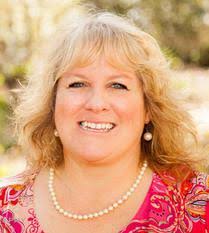
Wednesday, July 15, 2020 - 9:00 a.m. - 5:15 p.m.
Acceptance and commitment therapy (ACT) has transformed the lives of clients and clinicians in many ways and—as part of a broader shift in the practice of psychotherapy emerging from a new theory of human language —has had a significant impact in the field of psychology. ACT has flourished in areas of application, research base, and clinical use around the world. Not only does it have a broad reach that continues to grow, it also tends to have a distinctive and personal impact. Done with intention and presence, ACT links us to the very qualities of what it means to be alive and whole, to be a conscious and experiencing being. Yet, the behavioral processes implemented in ACT may be learned and understood at many levels and may remain challenging to implement in a flexible, consistent, process-based, and effective fashion. Functional analysis remains a vital yet sometimes elusive aspect of ACT. As well, multiple levels of process are present in any therapy, including those processes beyond ACT’s 6 core. Moving beyond simple technique and into a fluid ACT intervention requires attending to intrapersonal, interpersonal, and overarching and ongoing processes in the context of the psychotherapeutic relationship. Engaging in an on-going functional analysis feeds these processes and informs the case conceptualization. Digesting the theory and research behind ACT and understanding its content, processes, techniques, and foundational goal—psychological flexibility—is about inviting clients back into the vitality found in human joy and pain in the movement toward meaning. Connecting workshops participants to on-going functional analysis and the multiple levels of process found in ACT from a more in-depth, experiential, or heartfelt place will be the focus of this workshop. Didactic presentation, video, role-play and experiential exercises will be used to convey the material.
About Robyn Walser, Ph.D.:
Robyn D. Walser, Ph.D. is Director of TL Consultation Services, Assistant Professor at the University of California, Berkeley, and works at the National Center for PTSD. As a licensed psychologist, she maintains an international training, consulting and therapy practice. Dr. Walser is an expert in Acceptance and Commitment Therapy (ACT) and has co-authored 6 books on ACT including a book on learning ACT. She has most recently written a book entitled: The Heart of ACT, to be released in Fall of 2019. Dr. Walser has expertise in traumatic stress, depression and substance abuse and has authored a number of articles, chapters and books on these topics. She has been doing ACT workshops since 1998; training in multiple formats and for multiple client problems. Dr. Walser has been described as a “passionate, creative, and bold ACT trainer and therapist” and she is best known for her dynamic, warm and challenging ACT trainings. She is often referred to as a clinician’s clinician. Her workshops feature a combination of lecture and experiential exercises designed to provide a unique learning opportunity in this state-of-the-art intervention. http://www.tlconsultationservices.com/
Learning Objectives:
Following this workshop participants will be able to:
- Explain what is meant by exploring ACT processes from the perspective of personal internal experience and how it is relevant to therapy.
- Describe the role and function of interpersonal process in the implementation of ACT.
- Describe functional analysis and its role in the overarching and ongoing process of ACT intervention and case conceptualization.
- Explain how intrapersonal and interpersonal behavioral patterns inform a functional approach.
- Explain how different levels of process participate in and inform the therapeutic relationship.
- Explain what is meant by ACT processes and their flexible use with respect to the six core components of ACT tucked inside of therapeutic relationship.
- Explain how ACT metaphors and experiential exercises can be tailored to fit the client’s experience and language practices including the social and cultural contexts.
- Describe barriers to fluid implementation of ACT and how to work through these barriers in an ACT consistent fashion.
- Describe the role of personal values in guiding the work done in ACT therapy and how to apply it across sessions.
- List the benefits of mindfulness as a practice as well as an ongoing process during session, including how it can be used to cultivate compassion.
Target Audience: Intermediate, Advanced
Components: Conceptual analysis, Experiential exercises, Didactic presentation, Case presentation, Role play
Package Includes: A general certificate of attendance, lunch, and twice daily coffee/tea break on site.
Continuing Education (CE) Credits
Continuing Education (CE) Credits- 2-day pre-conference workshops: 13 hours
- ACBS World Conference 2020 (attending all CE events): Approx. 22-25 hours
Types of Credit Available:
APA, NASW*, NBCC*, BCBA* (details below)
- CE credit is available for psychologists from the American Psychological Association (APA)
- *Pending approval* CE credit is available for social workers from the National Association of Social Workers (NASW)
- *Pending approval* CE credit is available for counselors from the National Board for Certified Counselors (NBCC)
- *Pending approval* CE credit for BCBAs is available
The Association for Contextual Behavioral Science is approved by the American Psychological Association to sponsor continuing education for psychologists. The Association for Contextual Behavioral Science maintains responsibility for this program and its content.
CE rules require that we only issue credits to those who attend the entire workshop. Those arriving more than 15 minutes late or leaving before the entire workshop is completed will not receive CE credits.
Information about the CE Process at the Event:
Please remember to scan in and out at the beginning and end of each session using our scanner system. If there is a problem and the scanners are not working, please make sure to sign in and out on the paper check-in sheet provided. We cannot give CE credit if you do not scan/sign in and out.
Please DO NOT SCAN in and out for coffee/tea breaks. CE credits are NOT available for IGNITE sessions, Chapter/SIG/Committee meetings, or other lunch time sessions.
You will need to complete an evaluation for each session you attend, in order to earn CEs (of any type offered). The evaluations will all be done online. You can complete your evaluations at http://contextualscience.org/evals. These online evaluations must be completed by Sunday, August 2, 2020. We will email you a printable copy of your certificate by Wednesday, September 4, 2020. This email will come to you from “ACBS”. If you do not receive it, please email support@contextualscience.org.
If you do not complete all evaluations corresponding to our attendance records by the date listed above (August 2, 2020), you have until September 11, 2020 to contact ACBS to contest or correct the number of hours/credits earned. An additional fee of $20 USD will apply if the error is due to incomplete evaluations.
After September 11, 2020, corrections/contestations will be considered on a case-by-case basis and additional fees will apply.
Certificate with Number of Hours Attended
As an alternative to a CE certificate, some credentialing agencies (please check with yours) may accept a certificate with the number of hours attended. This requires that an individual verifies their attendance by signing in and out of each session that they attend during the event. The cost for this type of certificate is $10 USD.
Not sure if you need CEs?
Check with your licensing agency, and/or sign in/out on the yellow sheets provided, and you can determine your eligibility immediately after the event (still adhering to the evaluation deadlines mentioned above). If you do not scan or sign in/out, or complete necessary evaluations by the deadline, that cannot be “corrected” later.
Fees:
A $45 USD fee will be required to earn CEs. If you attend either a pre-conference workshop(s), World Conference, or both, only $45 is due. If you register for multiple events separately, please only pay the fee one time. This fee is non-refundable (unless you cancel your registration in its entirety before the cancellation deadline). Attendance verification (sign in/out) and evaluations also may be required.
Refunds & Grievance Policies: Participants may direct any questions or complaints to ACBS Executive Director Emily Rodrigues, acbs@contextualscience.org, or through the Contact Us link on this website.
- CEs are only available for events that qualify as workshops, symposia, invited lecture, panel discussion, or plenary sessions. Poster sessions, IGNITE sessions, sessions shorter than 1 hour, social evening events, Chapter/SIG/Committee meetings, and some other specialty sessions do NOT qualify for Continuing Education. Early morning movement sessions do qualify for CEs unless otherwise noted in the abstract of the session in the conference program.
- (Note: CE credits are only available for those registered as a professional. You may not earn CE credits with a student registration.)
Hotel & Travel
Hotel & TravelAre the conference venue hotel rooms, meeting rooms and bathrooms accessible?
Are the conference venue hotel rooms, meeting rooms and bathrooms accessible?Yes, the venue for the ACBS World Conference 2020 in New Orleans, Louisiana (Sheraton New Orleans) has an elevator for access to all meeting rooms. All meeting rooms are wheelchair accessible.
Bathrooms (toilets) are available for wheelchair access in the Sheraton. You can also request room accessibility during the process of making your reservation. After you have completed your reservation, you will want to contact the hotel directly (+1 504-525-2500) and speak to the ADA on site. They will assist you to make confirmed customizations of your room, to choose a bed type and choose accessibility options.
For more information about the physical features of the Sheraton's accessible rooms, common areas, or special services relating to a specific disability, please call +1 504-525-2500. https://www.marriott.com/hotels/fact-sheet/travel/msyis-sheraton-new-orleans-hotel/#accessibility
The Sheraton New Orleans accessibility features include:
Accessible Areas with Accessible Routes from Public Entrance
Business Center
Fitness Center
Meeting spaces and ballrooms
Pool accessible
Pool pathway
Public entrance alternative
Registration Desk Pathway
Registration desk
Restaurant(s)/Lounge(s)
Guest Room Accessibility
Accessible guest rooms with 32” wide doorways
Accessible route from public entrance to accessible guest rooms
Bathtub grab bars
Bathtub seat
Deadbolt locks, lowered
Door night guards, lowered
Doors with lever handles
Flashing door knockers
Hearing accessible rooms and/or kits
Pool pathway
Public entrance alternative
Registration Desk Pathway
Registration desk
Restaurant(s)/Lounge(s)
Roll-in shower
Shower wand, adjustable
TTY/TTD available
TV with close-captioning
Toilet seat at wheelchair height
Transfer shower
Vanities, accessible
Viewports, lowered
Additionally, Service animals are allowed on the property for people with disabilities.
Also, ACBS will have a set of bathrooms in the hotel designated as "All Gender", for comfortable access for anyone of any gender.
Off-Site Events and Transportation:
Any Off-Site Events and transportation planned by ACBS during the conference will be wheelchair accessible.
Hotel Information and Reservations - New Orleans
Hotel Information and Reservations - New Orleans Sheraton New Orleans
Sheraton New Orleans
500 Canal Street
New Orleans, Louisiana 70130
USA
+1 504-525-2500 or +1 888-627-7033
Group block rate $169.00 USD (plus tax) (valid July 12-19, 2020):
Rooms have 2 Double Beds or 1 King Bed.
Occupancy: single ($169), double ($169), triple ($194), quad ($219)
Rate includes complimentary standard internet in the guest room.
Check in 4:00pm, check out 11:00am. Reservation cancellations made fewer than 3 days prior to scheduled arrival will incur penalties.
Rooms in our block at the Sheraton New Orleans (if rooms are still available) are only available for online reservations until June 16, 2020 (5pm local time). After this date the "prevailing" rate may apply, subject to room availability.
This hotel has ADA accessible rooms. See here for more information.
Interested in sharing a room? Click here to view our room share/ride share page.
Room Share / Ride Share
Room Share / Ride Share Please use this page to find hotel roommates or rides for the ACBS World Conference 2020 and/or pre-conference workshops.
Please use this page to find hotel roommates or rides for the ACBS World Conference 2020 and/or pre-conference workshops.
Please be sure to post a "check-in" and "check-out" date in your posting and if you already have a room reserved or not (and where).
To post your need: click "add new comment" (which appears in blue below). It is recommended that you list your email address so that you may be contacted directly, but that is up to you.
To respond to a posting: click "reply" at the bottom of a post, and your reply will appear on this page (you may want to give your email address so that you may be contacted directly).
See the "Example Post" and "Example Reply" below to understand what this will look like.
When your need has been met, please go back to your comment (be sure you are logged in) and click "edit", and delete the content of your post. (admin is the only one who can delete the post entirely, but if you have deleted all of the content, I'll know to delete the post) Otherwise people will just keep contacting you....
Click "Contact Us" above in the header of the site for feedback or assistance. (You only need a login to interact with this page, paid membership is not required to participate.)
Please note that it becomes the responsibility of each participant in the program to communicate with and to work out an agreement with a potential room sharer. ACBS's role is strictly limited to the maintenance of this website page who have signified interest in the program and will maintain the page but will not (a) screen participants, (b) make any determination as to the appropriateness of any resulting room share, or (c) represent that any room share which may follow use of the service will prove to be satisfactory to the participants.
Call for Submissions - Closed
Call for Submissions - ClosedACBS World Conference 18, July 14-19, 2020, New Orleans, Louisiana, USA
Join us in New Orleans!
Conference Theme:
This conference invites all who are driven by compassion to reclaim the world across all levels and dimensions. Presentations on topics vastly ranging from the intricacies of human verbal learning to addressing climate change on a planetary level are all welcome. When we understand the dynamics of contextual behavioral science, the underlying principles of evolutionary change reveal themselves, and the reality of Reclaiming the World, the One World, Our World, is present in our hearts and minds. May we make this loving transformation present in the world for the benefit of all beings, together. - Dr. Dennis Doshin Tirch, ACBS President
Oral submission deadline: February 15, 2020. (Results of oral submissions will be emailed out in the last week of March or the first week of April, 2020).
Poster: The original deadline for poster submissions is Friday, March 20, 2020.
Results will be emailed out during the last week of March or first week of April.
The alternate deadline for poster submissions is Friday, May 1, 2020. (Note that these late submissions may not appear in the printed/final conference program.)
Results will be emailed as soon as practicable between May 20 and May 30.
Chapter/SIG meeting deadline: May 1, 2020.
RFT and Behavior Analysis Track:
A track will be organized for submissions of RFT/Behavior Analysis data, as well as conceptual and clinically-relevant submissions to address the needs of those interested in RFT and BA across experience levels.
If you have any problems submitting, please contact support@contextualscience.org
Tips for Submissions
Questions about the new submission website? Check out some FAQs here.
Are you wondering how to increase the chance of acceptance for your submission? Click here for tips.
Unsure about writing Educational Objectives? Click here to learn more about them.
Are you submitting a poster? Check out the poster guidelines here.
Submission Types:
Poster
Posters usually report empirical research and will be organized into one or more sessions, during which attendees will be invited to review the research presented and discuss findings with poster presenters. Presenters must be at their poster during their assigned time of the poster session and may choose to provide handouts. (Poster size: no larger than 36 inches tall by 48 inches wide, or A0 size (a vertical poster is strongly preferred). Smaller is also permitted.) Abstract word limit: 250 words maximum
Read the poster guidelines here.
Plenary/ Invited Address (use only if instructed)
Chapter/SIG/Committee Meeting
This gives Chapters/SIGs/Committees (or forming chapters and sigs) the opportunity to reserve a space and time to get together and plan, meet, socialize, etc. This form allows you to request space before or during the conference day (early morning, during the conference, during lunch, etc.) Deadline: May 1, 2020
IGNITE
The Ignite presentation is a short, structured talk in which presenters present on ideas and issues they are most passionate about using a “deck” of 20 slides that auto-advance every 15 seconds (no exceptions). Exactly 5 minutes total. Topics may be empirical, conceptual, philosophical, historical, or methodological. Presentation should be well-practiced and high energy (perhaps even... fun!). Abstract word limit: 175 words maximum
For more on Ignite presentations, see:
http://www.speakerconfessions.com/2009/06/how-to-give-a-great-ignite-talk/
Panel Discussion
Panel discussions consist of 3 to 5 speakers selected for some shared interest or expertise in an area. Panelists respond to one or more questions or issues, with time allotted for interaction among the speakers and with the audience. A panel discussion is organized by a chairperson who serves as the session’s moderator. Abstract word limit: 175 words maximum
Symposia (chair, 3 - 5 papers and a discussant)
Organized by a chairperson who moderates the 90 minute session, symposia are a series of three to five 15-20 minute presentations focused on either empirical research or conceptual, philosophical, historical, or methodological issues. A discussant highlights and integrates the contributions of various speakers in the symposium and moderates questions from the audience. Chairpersons are encouraged to use symposia as an opportunity to integrate related work by: 1) bringing speakers of different affiliations together rather than showcasing the work of a single group and 2) incorporating different kinds of talks (e.g., historical, conceptual, and research-based) on the same topic into one symposium. Papers from submissions that are not accepted may be considered for a poster session. This year, we are prioritizing submissions that are research and data driven. In service of being more data aware, we encourage you to include research citations (data citations) with your proposal. The Program Committee will not split apart symposia that are submitted together. Abstract word limit: 175 words maximum
Paper (not part of a pre-arranged symposium)
Paper submissions are individual, oral presentations, usually concerned with conceptual, philosophical, historical, or methodological issues. A paper submission will usually report on data. All paper presentations will be 15-20 minutes long. Accepted submissions will be organized into paper sessions of 90 minutes. Submissions not accepted will be considered for a poster session. We are prioritizing submissions that are research and data driven. In service of being more data aware, we encourage you to include research citations (data citations) with your proposal. Abstract word limit: 175 words maximum
Workshop
Workshops are training sessions of 1.5 or 3 hours and usually focus on a combination of experiential and/or didactic exercises. Workshop submissions are highly competitive (note: based on past events, the acceptance rate for workshops is approximately 60-70%, and of workshops submitted only 7%-11% receive 3 hour slots). Please put your best workshop/abstract forward keeping this in mind when determining your desired length. Keep in mind as well that most workshops selected are for the 1.5 hour slots. Be sure to clearly state your goals and objectives for participant education in your submissions. Workshops should be regarded as opportunities to directly train specific skills rather than to present research findings, discuss conceptual, philosophical, or methodological issues, or share opinions. However, in service of being more data aware, we encourage you to include research and data citations supporting your topic with your proposal, and to briefly present these (1-2 slides) during your workshop. Submissions that are not clearly focused on training should be submitted for other formats. Abstract word limit: 175 words maximum
Reclaiming The World
Reclaiming The WorldReclaiming The World
In 2020, we know that “evolution” means far more than just gradual biological change in species, natural selection, and “survival of the fittest” single organism. Understanding evolution across behavioral and biological domains reveals that we all exist in an interconnected flow, continuously evolving as individuals, groups, societies, and as a planet. The core principles of an evolutionary Contextual Behavioral Science (CBS) can serve as the key to transformation across multiple levels and dimensions. When we appreciate that we are intimately connected to our context in every moment, as a living aspect of the “One World,” we understand the importance of advancing this dynamic and holistic behavioral science, an approach better suited to the alleviation and prevention of suffering of sentient beings.
At this point in our history, we bear witness to stark suffering on this planet; from burning rainforests to elevating rates of adolescent suicide; from epidemic levels of psychiatric diagnoses to despotic political movements rising across the world. Given all of this, a rational person could despair, but our CBS commitment is to do more than observe, and to take direct action to address such suffering head on. This involves an arising of compassionate action, and practical wisdom, served by our community’s dedication throughout the world.
Borrowing a phrase from Roshi Paul Genki Kahn, we set our course for “Reclaiming The World.” We might begin at the level of the individual, developing the science of psychological flexibility, as a grounded path of values-based action and intimate presence to each “body-environment moment.” From such a beginning, the scope of our mission of compassion and commitment grows, so that we can apply CBS to the epochal challenges of this historical moment.
This conference invites all who are driven by compassion to reclaim the world across all levels and dimensions. Presentations on topics vastly ranging from the intricacies of human verbal learning to addressing climate change on a planetary level are all welcome. When we understand the dynamics of contextual behavioral science, the underlying principles of evolutionary change reveal themselves, and the reality of Reclaiming the World, the One World, Our World, is present in our hearts and minds. May we make this loving transformation present in the world for the benefit of all beings, together.
- Dr. Dennis Doshin Tirch, ACBS President
Presenter Resources
Presenter Resources
Welcome to the ACBS World Conference Presenter Resources Page! This page contains valuable information to help you  prepare for the upcoming conference.
prepare for the upcoming conference.
Call for Submissions Information
Call for Submissions
 Oral submission deadline: February 15, 2020. (Results of oral submissions will be emailed out in the last week of March or the first week of April, 2020).
Oral submission deadline: February 15, 2020. (Results of oral submissions will be emailed out in the last week of March or the first week of April, 2020).
Poster and Chapter/SIG meeting deadline: March 20, 2020. (Results of poster submissions will be emailed out in the first half of April, 2020).
If you have any problems submitting, please contact support@contextualscience.org
Are you wondering how to increase the chance of acceptance for your submission? Click here for tips.
Find more information about submissions here.
Questions about the new submission website? Check out some FAQs here.
Session Types
Learn about the various types of sessions in the ACBS program here.
Handouts
If you have a handout that you would like to make available to your attendees, please email it to Courtney at staff@contextualscience.org by June 14, 2020 so that it can be printed. It will be delivered to your workshop room just prior to your session during the conference. We regret that we cannot print handouts received after June 14, but would be happy to put it on our website to make it available to attendees.
Powerpoints
 For your convenience ACBS has provided a Powerpoint template that you may use. This file also includes disclosure slides that can be used when appropriate.
For your convenience ACBS has provided a Powerpoint template that you may use. This file also includes disclosure slides that can be used when appropriate.
Additionally, we would like to collect as many powerpoint presentations as we can prior to the conference, to make them available for attendees and ACBS members. When your powerpoint or other handouts are ready, please email it to: acbsstaff@contextualscience.org with “WORKSHOP PPT” in the subject line, and the workshop Title and Authors in the body of the email, and we will post them on our website.
Breakout Rooms and Setups
Room assignments can be found on the Brief Schedule in May 2020.
Setup Types:
- Banquet: Large round tables that can fit 8-10 individuals
- Theatre: Rows of chairs, with not tables, facing toward the front of the room
- Classroom: Rows of chairs, with tables or desks, facing toward the front of the room
The following information is subject to change with no notice.
| Room Name | Approximate Capacity | Setup |
|---|---|---|
| Napoleon Ballroom | 1,000 | Banquet and Theatre mix |
| Rodrigue Gallery | 330 | Banquet and classroom mix |
| Napoleon A1, A2, A3 | 250 | Banquet |
| Bayside B, C | 215 | Banquet |
| Borgne | 180 | Banquet and theatre mix |
| Napoleon D1, D2, D3 | 165 | Theatre |
| Oak Alley | 150 | Banquet and Theatre mix |
| Nottoway | 150 | Banquet and Theatre mix |
| Baccus / Muses / Iris | 130 | Theatre |
| Bayside A | 125 | Theatre |
| Southdown Room | 90 | Banquet |
| Gallier A, B | 72 | Theatre |
| Endymion / Mid-City | 60 | Theatre |
| Proteus / Zulu | 60 | Theatre |
| Edgewood A, B | 60 | Theatre |
Audio Visual Equipment
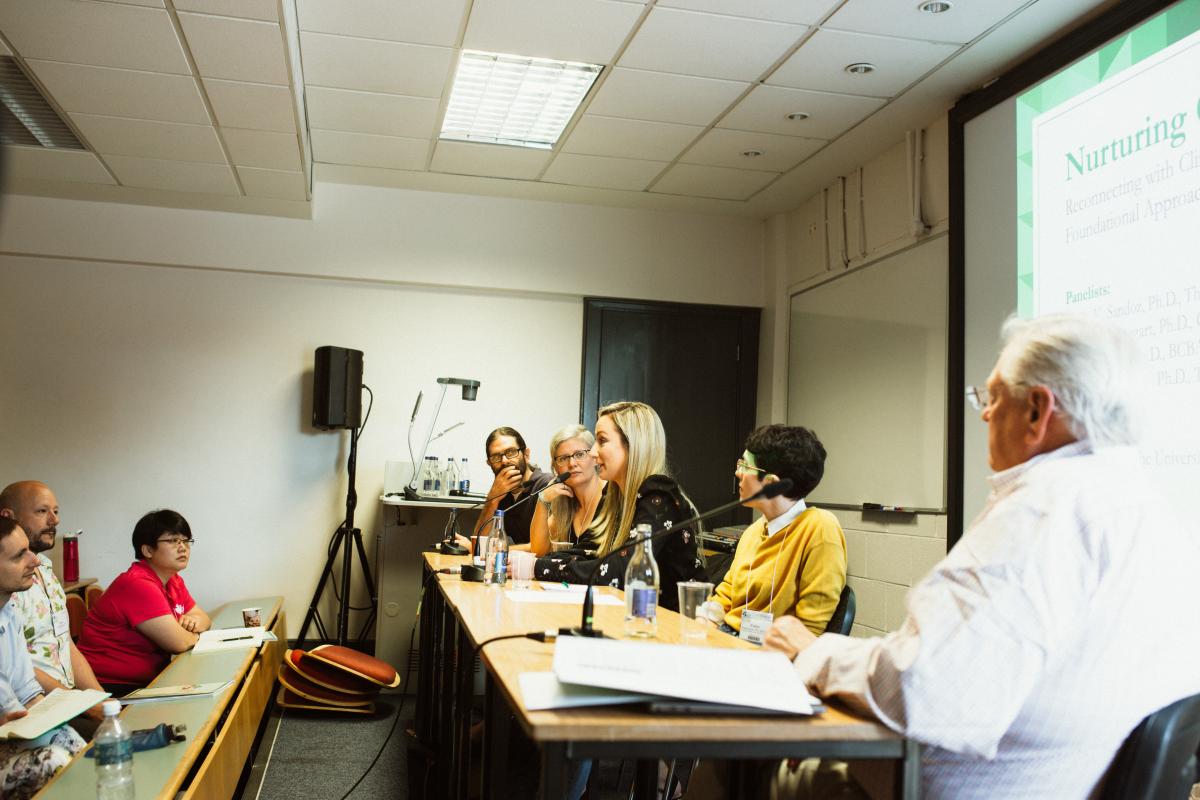 Every room will come equipped with a projector. The projectors will have VGA and HDMI cables or adaptors for your use.
Every room will come equipped with a projector. The projectors will have VGA and HDMI cables or adaptors for your use.
Note: If you use a MAC laptop, please bring an adapter for hooking it up to the projector (all projectors are PC compatible). Likewise, please bring any needed international plug adapters if applicable. Also bring your presentation (PC capable) on a memory stick, as a back up.
There will be microphones in most of the breakout rooms – the type and quantity will be dependent on the session type and number of presenters.
Presenters are requested to provide their own laptops for their presentations. If you are unable to supply your own laptop, you must note this when answering the call for submissions.
Books for Sale
Our conference bookstore is operated by New Harbinger Publications, however they include books from other publishers in our bookstore. New Harbinger will make every reasonable effort to include your suggested book in the bookstore.
If you'd like your book considered for inclusion in the ACBS Conference bookstore, please submit your information here by May 15, 2020.
Program
Programunder construction
Conference (July 16-19)
Preliminary schedule of the conference content will be available here in April or May, 2020.
To see last year's program, please check here.
Please meet your fantastic 2020 WC18 Conference Program Committee here.
Pre-Conference Workshops (July 14-15)
Complete information about our Pre-Conference workshops (July 14-15) can be found here.
We have the following experiential workshops available:
- ACT for Life: An experiential training on a Contextual Behavioral Approach to Suicidal Ideation and Behavior with Sean M. Barnes, Ph.D., Lauren M. Borges, Ph.D., Geoffrey Smith, Psy.D., Debbie Sorensen, Ph.D., Nazanin H. Bahraini, Ph.D.
- Acceptance and Commitment Therapy: Introduction & Skills Building with David Gillanders, DClinPsy, Sonja V. Batten, Ph.D.
- Reclaiming Humanity amidst Injustice: A Contextual Behavioral Science Skills-Based Approach to Social Connection Across Cultural Differences with Robyn L. Gobin, Ph.D., Daniel C. Rosen, Ph.D.
- Here, Now, and Between Us: Functional Analytic Psychotherapy and the power of the therapeutic relationship with Mary P. Loudon, Ph.D., Sarah Sullivan-Singh, Ph.D., Mavis Tsai, Ph.D., Robert J. Kohlenberg, Ph.D.
- Empowering psychological interventions by incorporating cutting-edge RFT research with Francisco J. Ruiz, Ph.D., Louise McHugh, Ph.D., Bárbara Gil-Luciano, Ph.D.
- Nurturing Roots to Reach New Heights: Revisiting Foundations of ACT as Clinical Behavior Analysis for Mastering Flexible, Process-Based Implementation with Emily K. Sandoz, Ph.D.
- From Learner to Leader: Mastering Your Skills as an ACT Teacher and Trainer with Jill Stoddard, Ph.D., Miranda Morris, Ph.D., Jenna LeJeune, Ph.D., Manuela O'Connell, Lic.
- Focused Acceptance and Commitment Therapy (FACT): The Basics and Beyond with Kirk Strosahl, Ph.D., Patricia Robinson, Ph.D.
- Mindfulness and Compassion Focused Therapy for Everyone with Dennis Tirch, Ph.D., Laura Silberstein-Tirch, Psy.D.
- Acceptance and Commitment Therapy for Obsessive Compulsive and Anxiety Disorders in Children and Adolescents with Michael P. Twohig, Ph.D., Patricia Zurita Ona, Psy.D.
- The Heart of ACT: Supporting Client Change through Process and Therapeutic Relationship with Robyn Walser, Ph.D.
Invited Speakers for WC2020
Invited Speakers for WC2020*This page is under construction
Plenary Speakers
Amanda Diekman, Ph.D., Indiana University
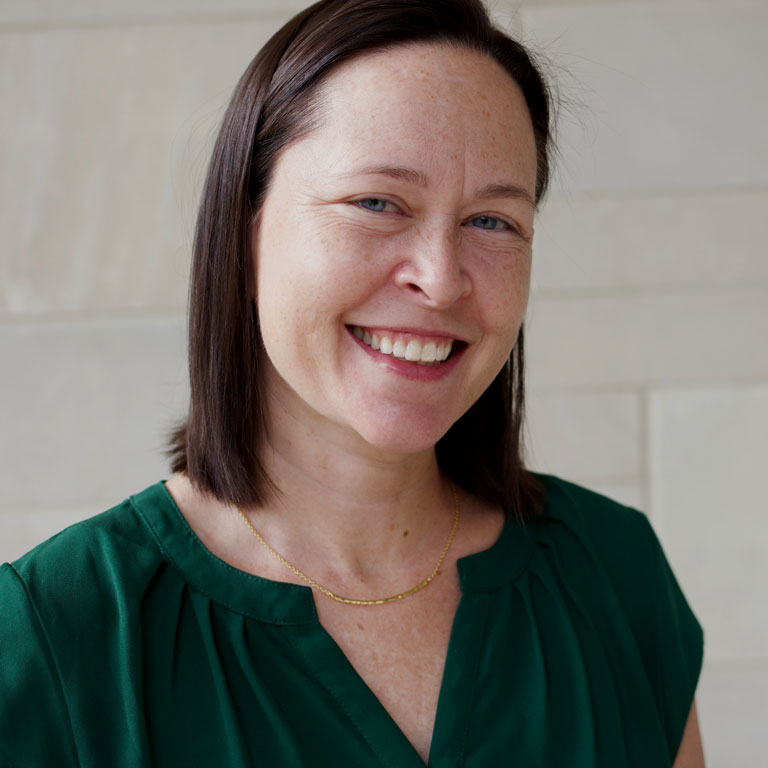
Amanda Diekman is Professor and Associate Chair in the Department of Psychological and Brain Sciences at Indiana University. She will be giving the following presentation: Gender as Embedded in Societal Structure, Social Context, and the Self: Opportunities and Obstacles.
Click here for a complete bios and session abstract.
Michele J. Gelfand, Ph.D., University of Maryland, College Park
Michele Gelfand is a Distinguished University Professor at the University of Maryland, College Park. She will be giving the following presentation: Tight or Loose? The Key to Unlocking Our Cultural Divisions.
Click here for a complete bio and session abstract.
Joseph LeDoux, Ph.D., New York University
Joseph LeDoux is a University Professor and Henry and Lucy Moses Professor of Science at New York University, and directs the Emotional Brain Institute located at both NYU and at the Nathan Kline Institute. He will be giving the following presentation: As Soon as There Was Life There Was Danger: Fear Is a Human Invention.
Click here for a complete bio and session abstract.
Hannah Bockarie, B.A., Commit and Act
Hannah Bockarie is the Country Director for Commit and Act in Sierra Leone. She will be giving the following presentation: My her-story: A woman working to reclaim the world, beginning with one small nation.
Click here for complete bios and a session abstract.
Invited Speakers
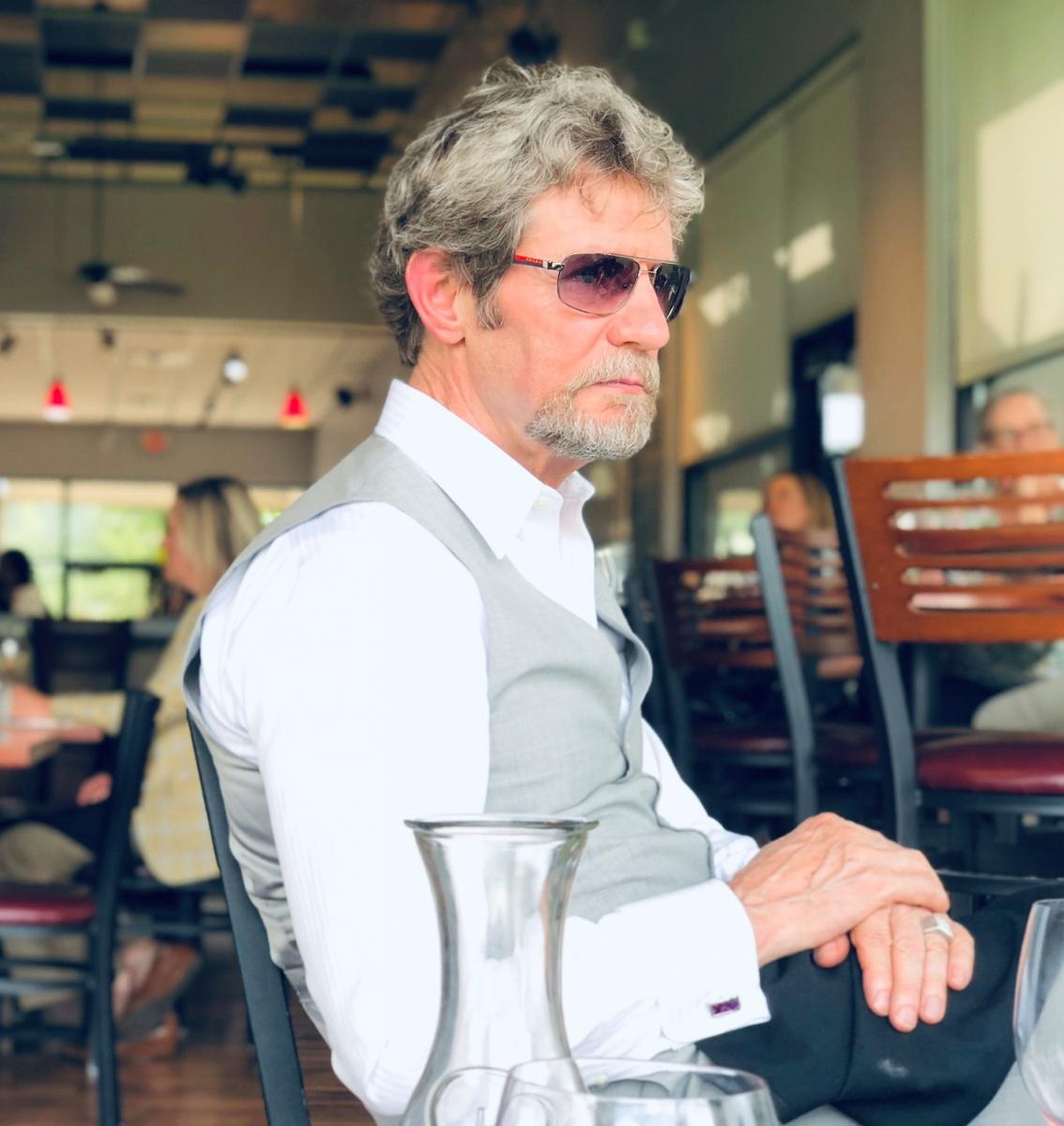 Patrick Friman, Ph.D., ABPP, Center for Behavioral Health at Boys Town and University of Nebraska School of Medicine
Patrick Friman, Ph.D., ABPP, Center for Behavioral Health at Boys Town and University of Nebraska School of Medicine
Dr. Patrick C. Friman is the current Vice President of Behavioral Health at Boys Town and a Clinical Professor in the Department of Pediatrics at the University of Nebraska School of Medicine. He will be giving the following presentation: Six Metaphysical Sources of Reinforcement.
Click here for a complete bio and session abstract.
Akihiko Masuda, Ph.D., University of Hawaii at Manoa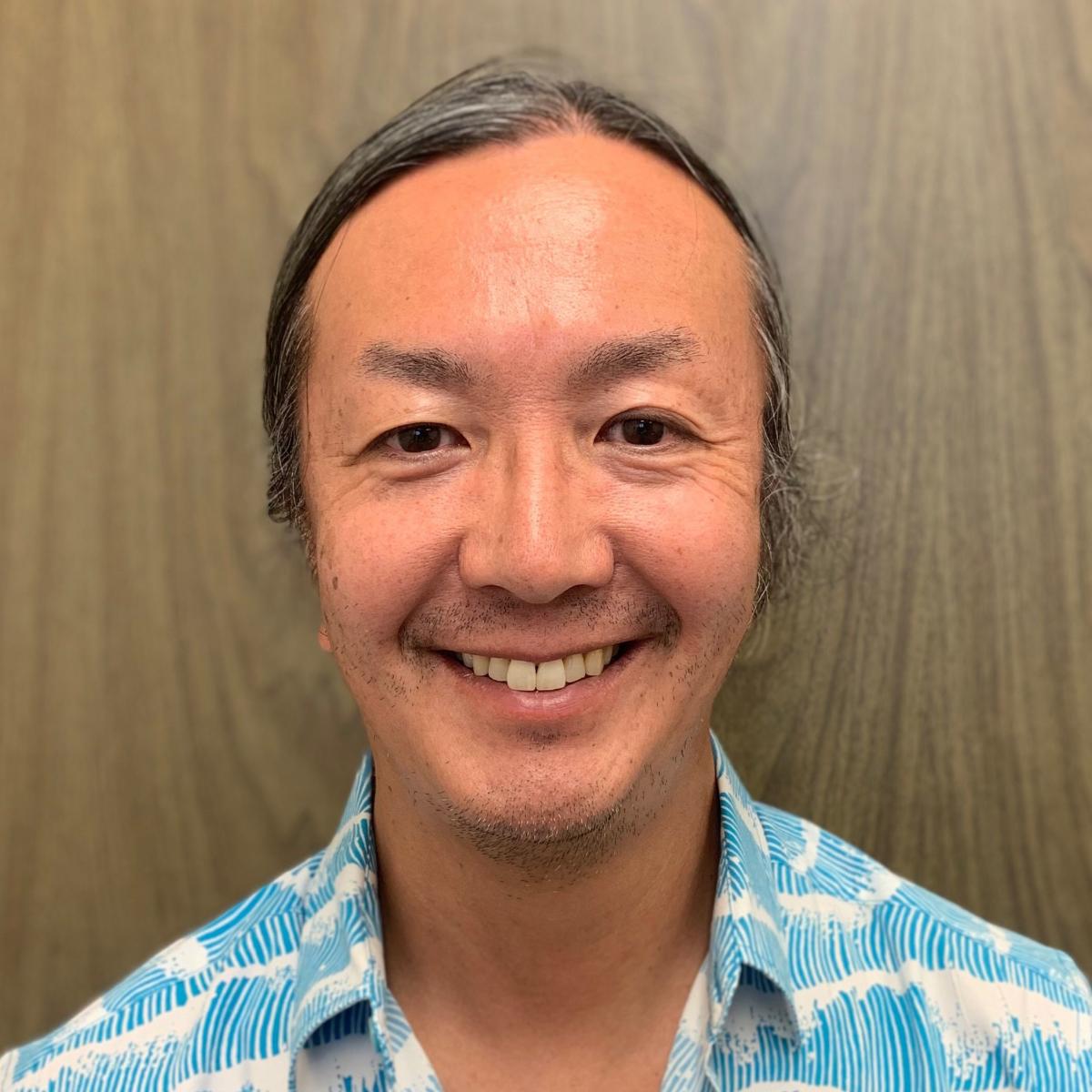
Dr. Akihiko Masuda is an associate professor of Clinical Psychology at the University of Hawai‘i at Mānoa. He will be giving the following presentation: ACT and Zen: What if Zen is the Chosen Valued-Direction?
Click here for a complete bio and session abstract.
Caio Miguel, Ph.D., BCBA-D, California State University, Sacramento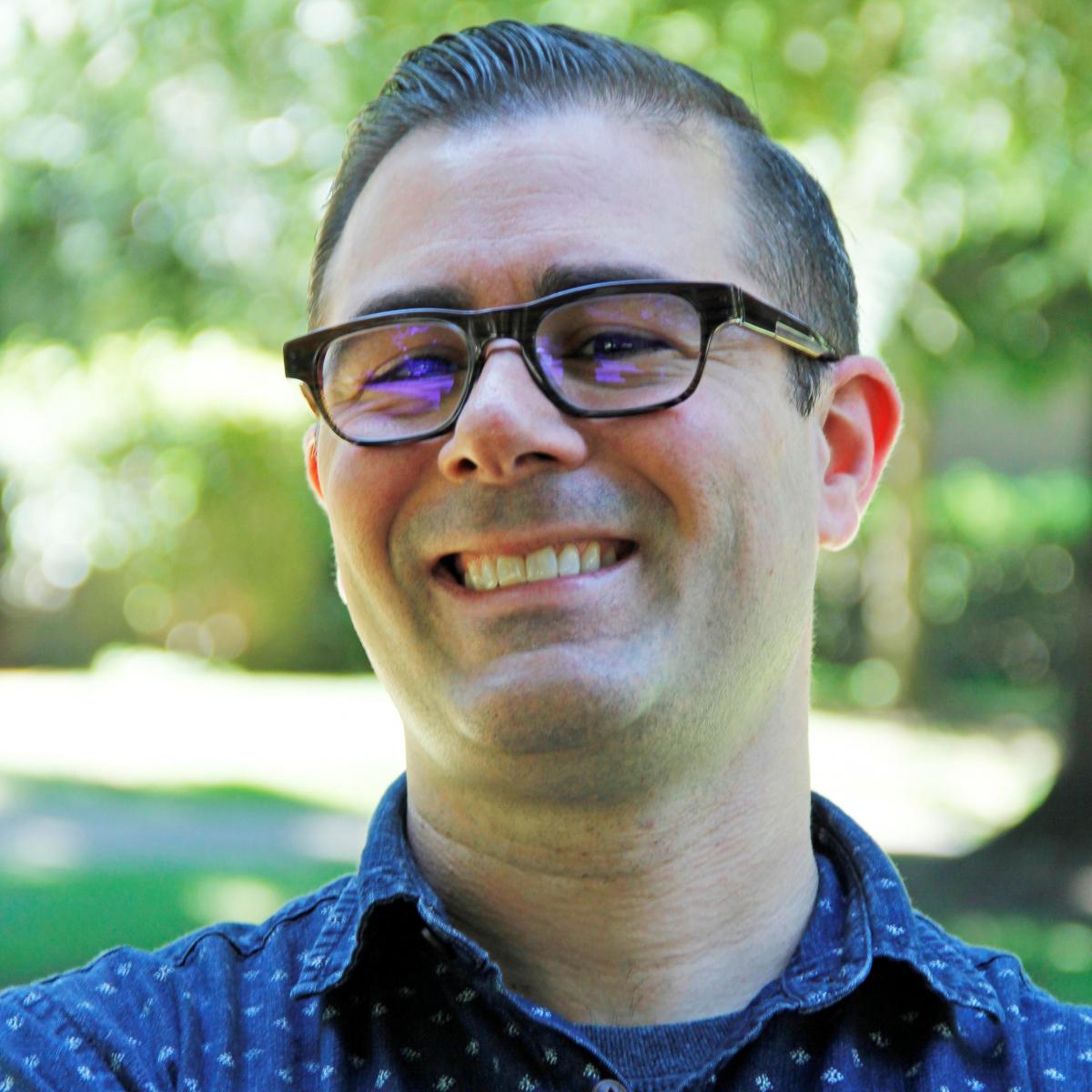
Dr. Caio Miguel is a Professor of Psychology and Director of the Verbal Behavior Research Laboratory at California State University, Sacramento. He will be giving the following presentation: Problem-Solving, Bidirectional Naming, and Derived Stimulus Relations.
Click here for a complete bio and session abstract.
Siri Ming, Ph.D., BCBA-D, Private Practice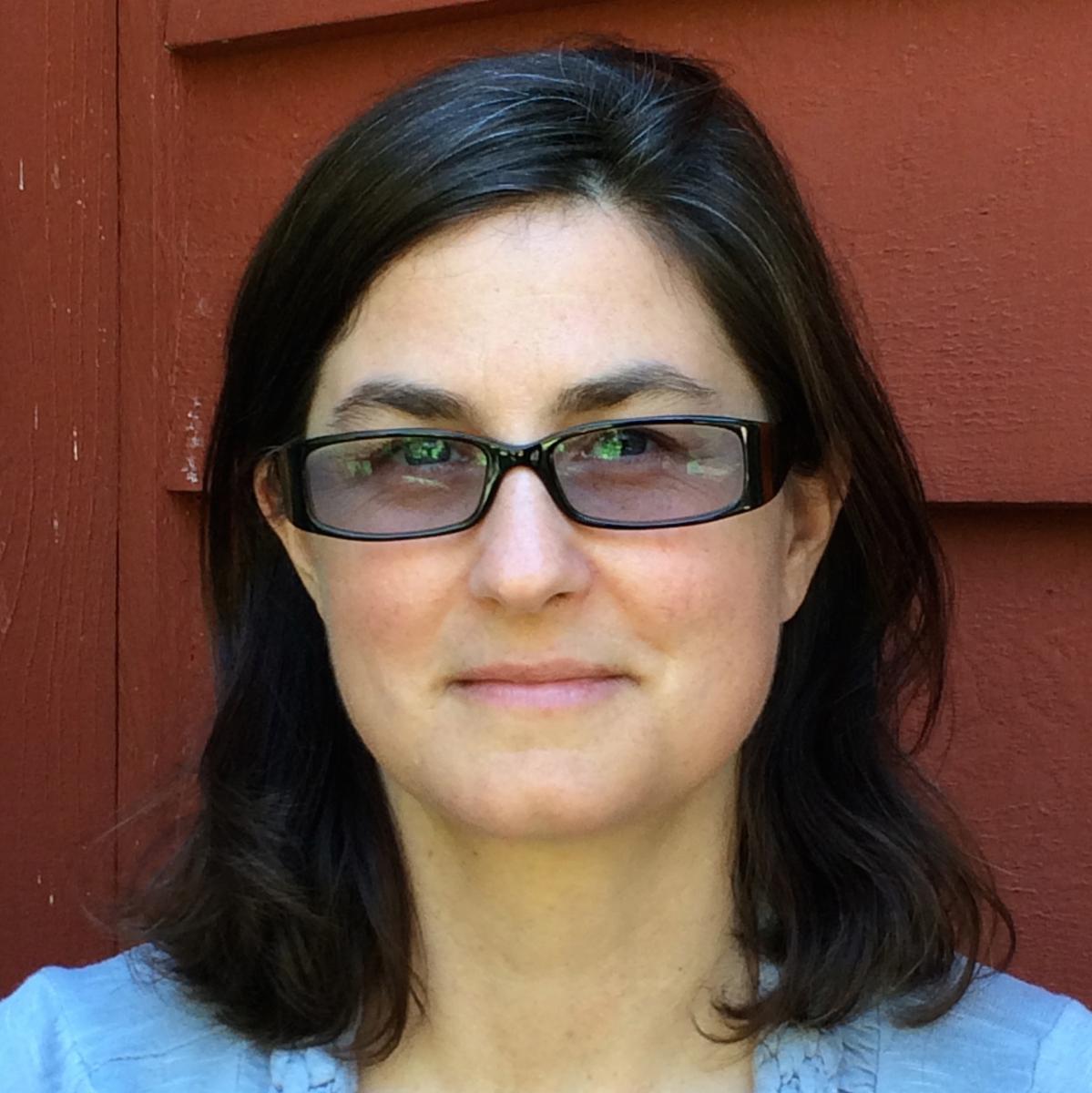
Dr. Ming is a practicing behavior analyst with over 20 years of experience in the field, in positions ranging from direct intervention work with children with autism to regional level quality assurance for developmental disability services across the life span. She will be giving the following presentation: Viewing EIBI Programming through an RFT Lens.
Click here for a complete bio and session abstract.
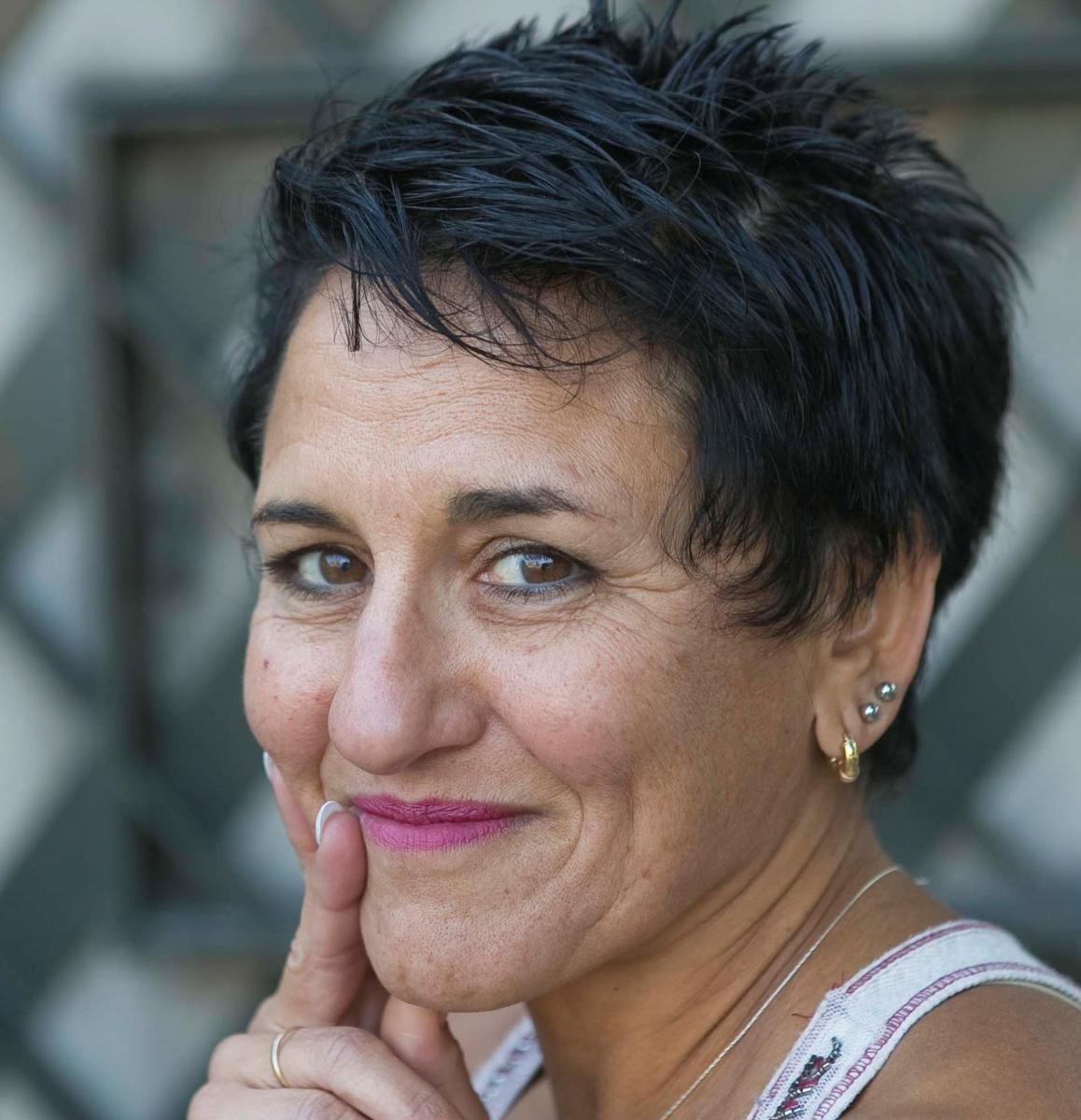 Graciela Rovner, Ph.D., ACT Institutet Sweden & Karolinska Institutet
Graciela Rovner, Ph.D., ACT Institutet Sweden & Karolinska Institutet
Dr. Rovner is known as a highly inspirational and unconventional trainer, the only peer-reviewed trainer that is a physiotherapist (PT). She will be giving the following presentation: Evolving health services towards clinical process-based models to manage chronic diseases (mental and/or physical).
Click here for a complete bio and session abstract.
Emily K. Sandoz, Ph.D., University of Louisiana at Lafayette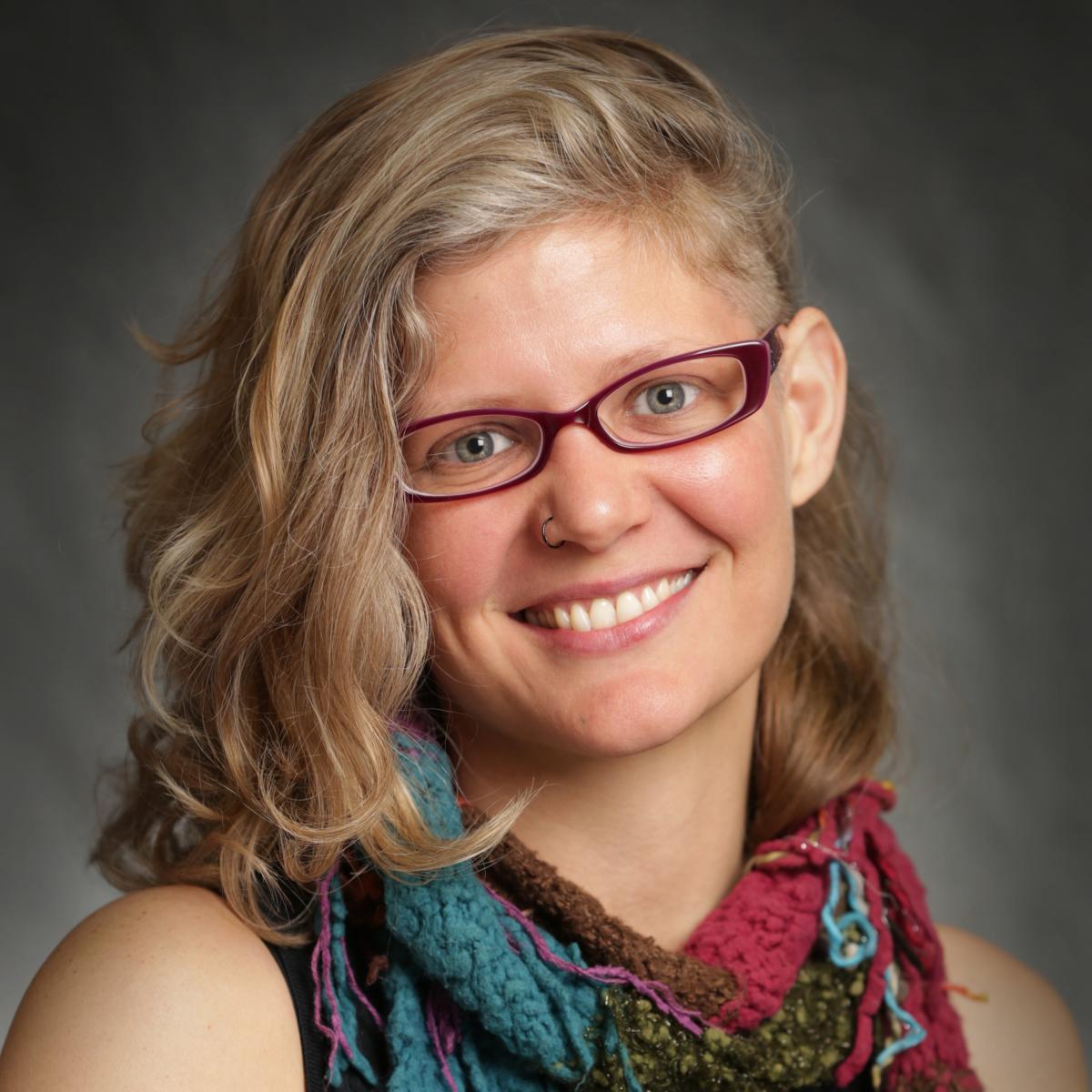
Dr. Emily K. Sandoz is the Emma Louise LeBlanc Burguieres/BORSF Endowed Professor of Social Sciences in the Psychology Department at the University of Louisiana at Lafayette. She will be giving the following presentation: Looking Back to Stay Ahead: Recasting ACT as Behavior Analysis.
Click here for a complete bio and session abstract.
Invited Speakers - Bios and Abstracts
Invited Speakers - Bios and Abstracts*This page is under construction
Plenary Speakers
Amanda Diekman, Ph.D., Indiana University

Amanda Diekman is Professor and Associate Chair in the Department of Psychological and Brain Sciences at Indiana University. She received her B.A. from Kenyon College and her Ph.D. in social psychology from Northwestern University. She investigates how gender stereotypes stem from and reinforce the social structure. Her current research examines perceptions that STEM fields do not afford communal opportunities to connect or help others, and she explores the impact of these perceptions on the motivation and engagement of students from underrepresented groups. She is a Fellow of the Association for Psychological Science, the Society for Personality and Social Psychology, and the Society of Experimental Social Psychology.
Gender as Embedded in Societal Structure, Social Context, and the Self: Opportunities and Obstacles
How can we understand both change and stability in gender roles? I will examine how gender is produced and reproduced in three sites: societal structure, social interactions, and the self. First, societal institutions explicitly and implicitly organize around gender, producing gendered experiences and gendered expectations. Second, these expectations and experiences foster certain interactions. Critically, social interactions in turn create behavioral and cognitive confirmation of gendered expectations. Third, gendered expectations and experiences become internalized into the self, including self-concept and gender identity. In turn, gendered selves influence how individuals navigate social interactions and the broader social system. Through this lens, I will trace implications for gender disparities in STEM. STEM careers are uniquely perceived to lack opportunities to connect to or help others: Highlighting these opportunities can close gender gaps in STEM interest. In this way, changing the opportunities within a particular context can appeal to a broader range of individuals, and eventually shift representation in the broader social role. Understanding gender as fundamentally embedded presents both opportunities and obstacles in the path to gender equality.
Michele J. Gelfand, Ph.D., University of Maryland, College Park
Michele Gelfand is a Distinguished University Professor at the University of Maryland, College Park. Gelfand uses field, experimental, computational, and neuroscience methods to understand the evolution of culture--as well as its multilevel consequences for human groups. Her work has been cited over 20,000 times and has been featured in the Washington Post, the New York Times, the Boston Globe, National Public Radio, The Economist, among other outlets. Gelfand has published her work in many scientific outlets such as Science, the Proceedings of the National Academy of Sciences, Proceedings of the Royal Society B, Psychological Science, Nature Scientific Reports, PLOS 1, among others.
She is the author of Rule Makers, Rule Breakers: How Tight and Loose Cultures Wire Our World (Scribner, 2018) and co-editor of several books on conflict management and negotiation. Additionally, she is the founding co-editor of the Advances in Culture and Psychology Annual Series and the Frontiers of Culture and Psychology series (Oxford University Press). Gelfand is the past President of the International Association for Conflict Management, and she has received several awards, most recently including her election to the American Academy of Arts and Sciences in 2019.
Tight or Loose? The Key to Unlocking Our Cultural Divisions
Over the past century, we have explored the solar system, split the atom, and wired the earth, but somehow, despite all of our technical prowess, we have struggled to understand something far more important: our own cultural differences. Michele Gelfand’s research shows that many cultural differences reflect a simple, but often invisible distinction: The strength of social norms. Tight cultures have strong social norms and little tolerance for deviance, while loose cultures have weak social norms and are highly permissive. The tightness or looseness of social norms illuminates similar patterns of difference across nations, states, organizations, social class, and households. Many of the conflicts we encounter spring from the structural stress of tight-loose tension. By unmasking culture to reveal tight-loose dynamics, we can see fresh patterns in history, illuminate some of today’s most puzzling trends and events, and see our own behavior in a new light. At a time of intense political conflict and rapid social change, this template shows us that moderation – not tight or loose extremes – has never been more needed.
Joseph LeDoux, Ph.D., New York University
Joseph LeDoux is a University Professor and Henry and Lucy Moses Professor of Science at New York University, and directs the Emotional Brain Institute located at both NYU and at the Nathan Kline Institute. His work is focused on the brain mechanisms of memory and emotion. LeDoux has received a number of awards for his research, and is an elected member of the American Academy of Arts and Sciences and the National Academy of Sciences. He is also the author of several books, including The Emotional Brain, Synaptic Self, Anxious (which received the 2016 William James Book Award from the American Psychological Association), and The Deep History of Ourselves (which is a finalist for the 2020 Pen America E.O. Wilson Award for Literary Science Writing). As a sideline, he is the lead singer and songwriter in the rock band, The Amygdaloids, and in the acoustic duo, So We Are.
As Soon as There Was Life There Was Danger: Fear Is a Human Invention
Organisms face challenges to survival throughout life. When we freeze or flee in danger, we often feel fear. Tracing the deep history of danger give a different perspective. The first cells living billions of years ago had to detect and respond to danger in order to survive. Life is about not being dead, and behavior is a major way that organisms hold death off. Although behavior does not require a nervous system, complex organisms have brain circuits for detecting and responding to danger, the deep roots of which go back to the first cells. But these circuits do not make fear, and fear is not the cause of why we freeze or flee. Fear a human invention; a construct we use to account for what happens in our minds when we become aware that we are in harm’s way. This requires a brain that can personally know that it exists at the moment, that its body is the entity that might be harmed in the present situation, and that someday it will cease to exist.
Hannah Bockarie, B.A., Commit and Act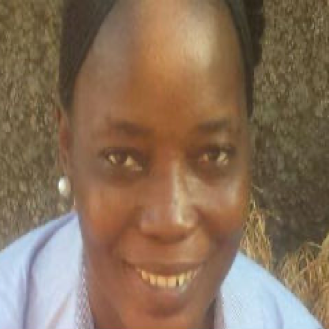
Hannah Bockarie is the Country Director for Commit and Act in Sierra Leone. She is a Sierra Leonan teacher, educated at Makeni Teachers College and has earned a B.A. in social work. Hannah is also a trained psychosocial counselor, certified by the International Rescue Committee and Medecins Sans Frontieres Belgium, Sierra Leone.
In her previous role as social worker, she has led a shelter for girls who experienced violence for the international youth charity Don Bosco, Freetown. She is a very experienced caregiver and engaged in the education and supervision of her colleagues. Hannah brings expertise in representing different mental health programs in her country and has been consulted by the WHO on mental health efforts in the region.
Hannah co-ordinates the activities of the organization, leading core staff. She organizes the training workshops, and leads clinical supervision for local therapists and psychosocial counsellors. In recognition of her courageous and successful work, the Ministry of Health and Sanitation in Sierra Leone declared Hannah the leader of the psychosocial aspect of Ebola prevention in Bo District, and she also received series of awards as the best Psychosocial Counsellor.
My her-story: A woman working to reclaim the world, beginning with one small nation
A nation with strikingly few women leaders, a country facing gender-based violence of pandemic proportions, Sierra Leone sits on the western edge of Africa. I am one of the few, an African woman leading an international NGO. During my formative years as a woman in social work in Sierra Leone, I had no female role models. I worked for years in social service organizations under men who didn’t understand the need we have in Africa to encourage women to speak and be heard. I wanted to dedicate myself to helping women who survived trauma during the civil war. Today I routinely approach powerful government ministers, church officials, and paramount chiefs. I organize women, teachers, and children into effective prosocial workgroups. I led through a global Ebola crisis and later, opened a shelter for abused girls and pregnant teens. In this talk, I will discuss the role I play as a woman leading an effort to reclaim the world starting in one small nation, and I will relate this to the struggles of all women internationally.
Invited Speakers
Patrick Friman, Ph.D., ABPP, Center for Behavioral Health at Boys Town and University of Nebraska School of Medicine
Dr. Patrick C. Friman received his Ph.D. from the University of Kansas. He is the current Vice President of Behavioral Health at Boys Town and a Clinical Professor in the Department of Pediatrics at the University of Nebraska School of Medicine. He was formerly on the faculties of Johns Hopkins University, University of Pennsylvania, and Creighton University Schools of Medicine and the Department of Psychology at the University of Nevada. He is a Fellow of the Association for Behavior Analysis International, in three divisions of the American Psychological Association, and of the American Board of Behavioral Psychology. He is the former Editor of the Journal of Applied Behavior Analysis and former President of the Association for Behavior Analysis International. He is currently on the editorial boards of four peer reviewed journals. He has published more than 200 scientific articles and chapters and three books. The majority of his scientific and clinical work is in Behavioral Pediatrics and Behavioral Medicine.
Six Metaphysical Sources of Reinforcement
The word metaphysics has several definitions. The earliest and simplest is after or beyond physics. Aristotle wrote his noted treatise “Physics” first and subsequently wrote “The Metaphysics.” The definition that best fits this talk is “lacking form or substance.” It is no exaggeration to say that behavior analysts have given metaphysics, no matter how you define it, a wide berth. In this talk, I advocate a reconsideration. I will describe six potential sources of reinforcement all of which lack form and readily discernible substance. This is not to say that giving them form and identifying their substance is impossible. It is merely to say that their form and substance, at present, lack operational definitions. The purpose of this talk is not to provide the definitions, although it will provide some movement towards them. The purpose of the talk is to demonstrate that behavior analysts can and will consider subject matter that affects all human beings even though it does not lend itself readily to observation and measurement.
Akihiko Masuda, Ph.D., University of Hawaii at Manoa
Dr. Akihiko Masuda is an associate professor of Clinical Psychology at the University of Hawai‘i at Mānoa. His primary areas of interest include philosophy of science, clinical behavior analysis, acceptance- and mindfulness-based behavioral therapies, diversity and multi-cultural competency, and Zen Buddhism. He is the author of more than 110 peer-reviewed papers and book chapters. His recent works include Mindfulness and Acceptance in Multicultural Competency (New Harbinger, 2014), Handbook of Zen, Mindfulness and Behavioral Health (Springer, 2017), and Prejudice, Stigma, Privilege, and Oppression: A Behavioral Health Handbook (Springer, 2020).
ACT and Zen: What if Zen is the Chosen Valued-Direction?
To date, there are a number of papers and dialogues that highlight the areas of conversion between ACT and Buddhism. In this talk, I would like to examine this relationship further through following the perspective of Dogen Zen. Dogen Zen is a school of Zen Buddhism that was evolved from the original Buddhism. The aim of Dogen Zen is the actualization of true self, which can be manifested in the form of boundless compassion, wholeheartedness, and simple life. This value-laden aspect of Soto Zen points to a specific direction in therapy that can be incorporated into ACT. At the same time, some of the directions that clients and ACT therapists pursue may not be aligned with that of Soto Zen. To highlight this convergence and divergence, first I am going to present Dogen Zen’s notion/experience of true self in detail. Then, I am going to discuss how desire and values can be played with from the standpoint of true self. Finally, I would like to share everyday actions that are guided by true self.
Caio Miguel, Ph.D., BCBA-D, California State University, Sacramento 
Dr. Caio Miguel is a Professor of Psychology and Director of the Verbal Behavior Research Laboratory at California State University, Sacramento. He holds adjunct appointments at Endicott College, MA., and at the University of São Paulo, Brazil. He is the past-editor of The Analysis of Verbal Behavior and a former Associate Editor for the Journal of Applied Behavior Analysis. Dr. Miguel's research focuses on the study of verbal behavior and stimulus control. He has given hundreds of professional presentations around the world, and has had over 70 manuscripts published in English, Portuguese, and Spanish. He is the recipient of the 2013 award for outstanding scholarly work by the College of Social Sciences and Interdisciplinary Studies at Sacramento State, the 2014 Outstanding Mentor Award by the Association for Behavior Analysis International (ABAI), the 2019 Award for Excellence in Teaching Verbal Behavior from the Verbal Behavior Special Interest Group of ABAI, and the 2019 Alumni Achievement Award from the Department of Psychology at Western Michigan University.
Problem-Solving, Bidirectional Naming, and Derived Stimulus Relations
During the course of language development, children get exposed to a multitude of experiences leading to the development of a higher-order operant referred to as bidirectional-naming (BiN). This operant describes the integration of both listener and speaker behaviors that leads to speaking with understanding. Some problem-solving strategies may require that we talk to ourselves, and in turn, understand what we are saying. During this talk, I will describe a series of studies showing that in the absence of BiN, participants (adults and children with disabilities) often fail to solve problems presented during tests of stimulus equivalence/coordination and comparative relations. BiN seems to be a pivotal skill in the development of complex language and cognition.
Siri Ming, Ph.D., BCBA-D, Private Practice 
Dr. Ming is a practicing behavior analyst with over 20 years of experience in the field, in positions ranging from direct intervention work with children with autism to regional level quality assurance for developmental disability services across the life span. Her research and clinical focus is on applications of Relational Frame Theory to early intervention programs for children with autism, integrating Skinnerian verbal behavior with RFT. She has authored numerous peer-reviewed research and theoretical articles on applications of RFT as well as a practical handbook on using RFT in early intervention programs. She teaches and acts as subject matter expert for graduate level classes in Verbal Behavior for the Chicago School of Professional Psychology, and is an associate editor for The Analysis of Verbal Behavior journal. Siri has provided supervision to dozens of practitioners working towards board certification, and provides complex case consultation, curriculum consultation, and professional coaching for BCBAs. Her focus since 1998 has been on working with individuals without access to local supervision or expertise due to geographical location, and many of her supervisees were among the very first certified behavior analysts in their country or region.
Viewing EIBI Programming through an RFT Lens
For behavior analysts working with children with autism, taking an RFT perspective fundamentally shifts the focus of our language programming. By viewing the development of complex verbal behavior, including the development of a sense of self, as learning to respond to increasingly complex relational patterns, we can approach language intervention from a truly functional standpoint, setting the foundations for generative language from the very start. Beginning with the social roots of language in joint attention, Dr. Ming describes a powerful and developmentally-informed framework for assessment and intervention based on RFT that moves systematically from teaching simple non-arbitrary relational responding towards establishing complex arbitrarily applicable relational responding in numerous relational patterns. Throughout, she shares lessons learned from research and practice to shed light on the path for behavior analysts on their journey of learning and using RFT.
 Graciela Rovner, Ph.D., ACT Institutet Sweden & Karolinska Institutet
Graciela Rovner, Ph.D., ACT Institutet Sweden & Karolinska Institutet
Dr. Rovner is known as a highly inspirational and unconventional trainer, the only peer-reviewed trainer that is a physiotherapist (PT). She is a senior pain and mental health specialist PT in Sweden, twice awarded with the prize for the best presentation at the International Conference for Physiotherapists in Mental Health and nominated by the Swedish Physiotherapy association as the best physiotherapist of the year 2014. Her Ph.D. is in Medicine, and her three master's degrees are in clinical medical sciences, psychology, and physiotherapy. She is also the president of the Swedish ACBS chapter.
Based on her clinical translational research and her broad experience as a clinician and clinical innovator, she developed the ACTiveRehab framework, which allows the integrated care and inter-professional team members to implement the principles and processes of ACT from their professional fields (and not as psychotherapy only). The ACTiveRehab is a comprehensive framework to streamline the clinical pathways in an ACT consistent manner and organize the setting for the implementation of ACT principles in integrated care settings.
Evolving health services towards clinical process-based models to manage chronic diseases (mental and/or physical)
Are you delivering your interventions based on old and traditional health care structures? Are you still meeting patients individually because their responsiveness to groups is uneven? And does this limit your availability for other patients? Are you systematically assessing and treating lifestyles that are related to chronic conditions? Health care has been uniquely slow to innovate. The urgent need to prevent and treat chronic conditions requires the implementation of tailored interventions for sustainable lifestyle changes. For that to happen, integrative and evidence-based clinical models that streamline clinical pathways are required. ACTiveRehab is an unique empirically developed clinical model that identifies distinct patterns of psychological flexibility. This algorithm guides the practitioner to reorganize clinical pathways by modularizing the ACT processes in a stepwise manner. Get inspired by the development and research behind ACTiveRehab and its results. We will explore how to modularize and tailor interventions for transdiagnostic groups with shared patterns of PF. We will discuss how ACTiveRehab can flexibility adapt to different settings, from private practice to integrated primary care and university hospitals.
Emily K. Sandoz, Ph.D., University of Louisiana at Lafayette
Dr. Emily K. Sandoz is the Emma Louise LeBlanc Burguieres/BORSF Endowed Professor of Social Sciences in the Psychology Department at the University of Louisiana at Lafayette. Emily is the Director of the Louisiana Contextual Science Research Group and the Editor-in-Chief of the Journal of Contextual Behavioral Science. She has co-authored three books on acceptance and commitment therapy for struggles with eating and body image, along with chapters and journal articles on ACT, Relational Frame Theory, values, the therapeutic relationship, and psychological flexibility. Emily has led more than 70 professional training workshops around the world, and serves as a peer-reviewed ACT trainer. She also practices as a Clinical Psychologist, focusing on clinical behavior analysis of body-related difficulties.
Looking Back to Stay Ahead: Recasting ACT as Behavior Analysis
Behavior therapy is shifting to recognizing empirically-based processes of behavior change over and above empirically-supported treatment packages. From a CBS perspective, this is a welcome change, consistent with how we’ve characterized Acceptance and Commitment Therapy (ACT) and Functional Analytic Psychotherapy (FAP), for example – by the behavioral processes they target instead of by particular techniques. Over time, however, mid-level processes seem to drift from the basic philosophical, theoretical, and empirical foundations from which they emerged. When this occurs, clinicians struggle to assess and intervene on mid-level processes in the moment, and they devolve into unobservable personological factors. This limits the clinician’s sensitivity, responsiveness, and creativity in therapy, thus limiting most of the advantages of using a process-based therapy! And, it doesn’t have to be this way. We have, in CBS, an incredibly powerful way of understanding behavior - in terms of its context. And this understanding lends itself directly to assessment and intervening in the moment. This paper will recast ACT as behavior analysis - in terms of context, behavior, and functional relations among them.
Program Committee
Program CommitteeProgram Committee Chairs
Jennifer Gregg, Ph.D.
Jennifer Gregg, Ph.D. is a Professor of Psychology at San Jose State University and a Clinical Psychologist at California Cancer Care. She is a peer-reviewed trainer in Acceptance and Commitment Therapy, which she began delivering, studying, and training in 1997. She is the author of dozens of scholarly papers in contextual behavioral science, and serves on the Editorial Board for the Journal of Contextual Behavioral Science. Her specialty is the application of ACT to medically ill populations, with an emphasis on cancer and end-of-life.
.jpg)
Matthew Boone, LCSW
Matthew S. Boone, LCSW, is a social worker, writer, trainer, and public speaker who specializes in acceptance and commitment therapy (ACT). He is a peer-reviewed ACT trainer and a former consultant for the VA ACT for Depression training rollout. He is the editor of the book Mindfulness and Acceptance in Social Work: Evidence-Based Interventions and Emerging Applications.
RFT and Behavior Analysis Track Chair: Jonathan Tarbox, Ph.D., BCBA-D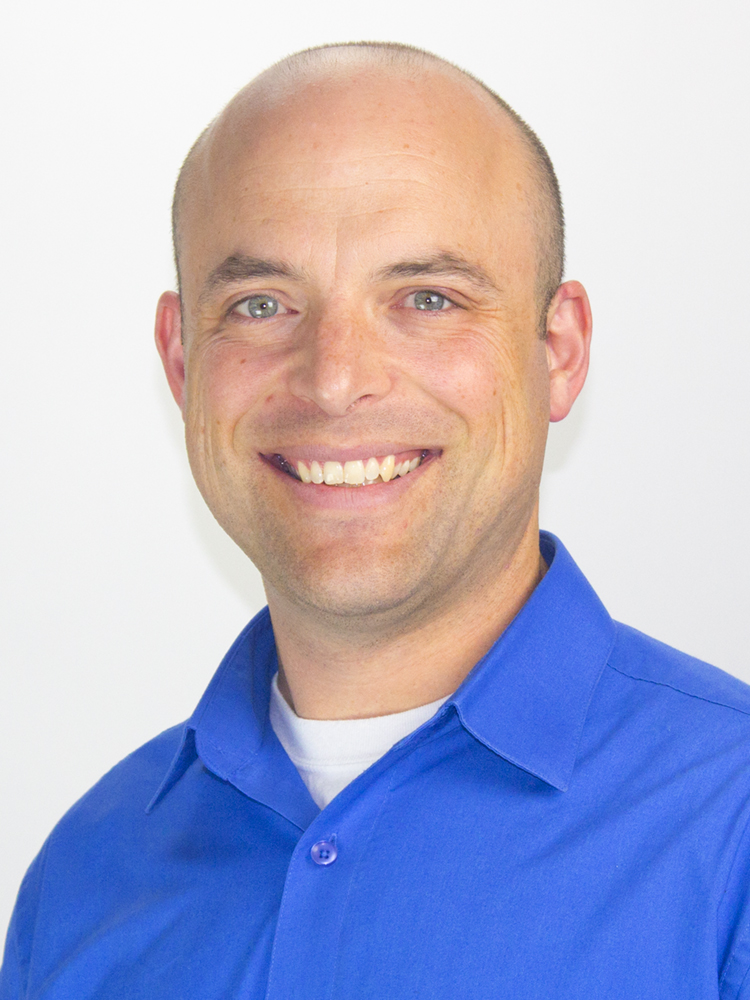
Dr. Jonathan Tarbox is the Program Director of the Master of Science in Applied Behavior Analysis program at the University of Southern California, as well as Director of Research at FirstSteps for Kids. Dr. Tarbox is the Editor-in-Chief of the journal Behavior Analysis in Practice and serves on the editorial boards of several scientific journals related to autism and behavior analysis. He has published four books on autism treatment, is the Series Editor of the Elsevier book series Critical Specialties in Treating Autism and Other Behavioral Challenges, and an author of well over 80 peer-reviewed journal articles and chapters in scientific texts. His research focuses on behavioral interventions for teaching complex skills to individuals with autism, applications of Acceptance and Commitment Training (ACT) inside of applied behavior analysis, and applications of applied behavior analysis to issues of diversity and social justice.
If you have questions about your submission(s), please contact Jennifer and Matthew.
Committee members:
Niloofar Afari
Priscilla Almada
John Blackledge
Marie-France Bolduc
Joseph Ciarrochi
Rachel Collis
Hubert Czupała
Charlotte Dack
JoAnne Dahl
Beate Ebert
Nuno Ferreira
Victoria Follette
Manuel Garayar
Brandon Gaudiano
David Gillanders
Andrew Gloster
Nic Hooper
Jack Jacobsen
Maria Karekla
Karen Kate Kellum
Valerie Kiel
Andreas Larsson
Lou Lasprugato
Jenna LeJeune
Michael Levin
Rhonda Merwin
Eric Morris
Miranda Morris
Kate Morrissey Stahl
Brian Mundy
Amy Murrell
Manuela O'Connell
Fabián Olaz
Ray Owen
Nanni Presti
Benjamin Ramos
Hank Robb
Ann Rost
Graciela Rovner
Benjamin Schoendorff
levin Schwartz
Laura Silberstein-Tirch
Wanda Smith
Joanne Steinwachs
Jill Stoddard
Tom Szabo
Dennis Tirch
Sheri Turrell
Kevin Vowles
Ross White
Joann Wright
General Schedule of Events - July 14-19, 2020
General Schedule of Events - July 14-19, 2020| MONDAY, JULY 13, 2020 | |||
|
3:00-5:30pm |
Pre-Conference Workshop Registration | ||
| TUESDAY, JULY 14, 2020 | |||
| 7:30am-4:30pm | Pre-Conference Workshop Registration | ||
| 9:00am-5:15pm | Pre-Conference Workshops | Coffee/Tea, 10:30-10:45am | |
| Lunch, 12:00-1:15am | |||
| Coffee/Tea, 3:30-3:45pm | |||
| WEDNESDAY, JULY 15, 2020 | |||
| 8:00am-4:30pm | Pre-Conference Workshop Registration | ||
| 9:00am-5:15pm | Pre-Conference Workshops | Coffee/Tea, 10:30-10:45am | |
| Lunch, 12:00-1:15pm | |||
| Coffee/Tea, 3:30-3:45pm | |||
| 6:00-6:45pm | Rookies Retreat: ACBS Conference Orientation (Student and First Time Attendee event) | ||
| 5:45-8:00pm | Registration | ||
| 6:30-8:30pm |
Opening Social/ Chapter & SIG Event (Cash bar available) Guests (family & friends) of registered attendees are welcome at this event.) |
||
| THURSDAY, JULY 16, 2020 | |||
| 7:30am-4:45pm | Registration | ||
| 8:00-9:00am | Chapter/SIG/Committee Meetings | ||
| 9:00am-6:00pm | Conference Sessions | Coffee/Tea, 10:15-10:35am | |
| Lunch, 12:05-1:20pm | |||
| Coffee/Tea, 2:50-3:10pm | |||
| Break, 4:40-5:00pm | |||
| Approx. 6:30-8:30pm | Poster Sessions (A cash bar will be available. Guests (family & friends) of registered attendees are welcome at this event.) | ||
| FRIDAY, JULY 17, 2020 | |||
| 8:00am-4:45pm | Registration | ||
| 8:00-9:00am | Chapter/SIG/Committee Meetings | ||
| 9:00am-6:00pm | Conference Sessions | Coffee/Tea, 10:15-10:35am | |
| Lunch, 12:05-1:20pm | |||
| Coffee/Tea, 2:50-3:10pm | |||
| Break, 4:40-5:00pm | |||
| SATURDAY, JULY 18, 2020 | |||
| 8:00am-4:45pm | Registration | ||
| 8:00-9:00am | Chapter/SIG/Committee Meetings | ||
|
9:00am-6:00pm |
Conference Sessions |
Coffee/Tea, 10:15-10:35am | |
| Lunch, 12:05-1:20pm | |||
| Coffee/Tea, 2:50-3:10pm | |||
| Break, 4:40-5:00pm | |||
|
8:30-10:30pm |
Follies! (A cash bar will be available. Guests (family & friends) of registered attendees are welcome at this event.) | ||
| 10:30pm-12:45am | Dance Party! (Music & dance floor... what more do you need?) | ||
| SUNDAY, JULY 19, 2020 | |||
| 8:30am-12:00pm | Registration | ||
| 9:00am-12:05pm | Conference Sessions | Coffee/Tea, 10:15-10:35am | |
Eco-Friendly Initiatives
Eco-Friendly InitiativesACBS is committed to reducing the caron footprint of the World Conference and encourages you to join us in this effort.

- Our selected venue recycles the food grease and cooking oils which is turned into petroleum byproducts.
- The venue will clean their Food Service mats with the waste water recycled through their own internal waste water system and was recently recognized by LifeCity as a best practice for New Orleans Restaurants.
- The venue will recycle their coffee grounds, donating our used grounds to area schools for their gardens.
- The venue will recycle all of our food scraps for composting.
- The conference will not offer a beef meal option, in order to help reduce the carbon foot print.
- The conference registration form will encourage attendees to select vegan and vegetarian meal options.
- The venue recycles glass, aluminum, paper, and cardboard, substantially reducing our daily waste and carbon footprint.
- ACBS and the venue recycle Printer Ink cartridges.
- Our selected venue participates as an active member of Clean the World by donating all of the leftover soaps, shampoos and other bottled amenities for recycling that are donated to overnight shelters.
- The venue will participate in the “Make a Green Choice” program in our guest rooms to cut down on cleaning products and reduce our carbon footprint. Make a Green Choice allows guests to choose not to have housekeeping service in exchange for food and beverage vouchers. This program cuts down on the amount of cleaning products that are used throughout the week.
- The conference will use biodegradable name badge holders.
- The conference registration form offers attendees the ability to opt out of a printed conference program.
- The meeting rooms have converted all of the Incandescent lights to either LED or Compact Fluorescent, reducing our attendees electrical usage for lighting by more than 50%.
- The venue has installed motion sensors throughout the hotel to cut down our energy usage.
- The venue will utilize a computerized HVAC system for all of our meeting and public space, which turns on 45 minutes before the start of a function, and off 30 minutes after the conclusion of the event.
- The venue purchases from local Farmers and Suppliers, reducing carbon emissions from transportation and long term storage.
-
 Interested in offsetting the carbon impact of your flight? Sustainable Travel or Carbon Fund offer you the ability to donate to offset your carbon footprint from your flight ($6-$80 depending on flight length and which program). Please note, there are many other good carbon-offsetting programs through other organizations. These options are mentioned for your convenience.
Interested in offsetting the carbon impact of your flight? Sustainable Travel or Carbon Fund offer you the ability to donate to offset your carbon footprint from your flight ($6-$80 depending on flight length and which program). Please note, there are many other good carbon-offsetting programs through other organizations. These options are mentioned for your convenience.
First Timer’s Guide to the ACBS World Conference in New Orleans
First Timer’s Guide to the ACBS World Conference in New OrleansThis page is currently under construction.
Welcome!
We have compiled this guide to assist first-time conference attendee’s in making their time at the ACBS World Conference as productive and stress-free as possible. There’s no “right” way to attend the conference nor is there a set number of sessions or events to attend. You should attend the conference with the plan to make connections, learn, and have fun.
Planning for the Conference
Getting there: Check here for airport transfer information to get you to the venue or accommodations.
General Conference Schedule: Please find the schedule of events which will help you plan your days here - Gen schedule
What Should I Bring?
Snacks and a water bottle: ACBS provides lunch each day along with Coffee/Tea breaks in the morning and afternoon. If you’d like to supplement that, shop at the grocery store and stock up on fruit, granola bars, or energy bars – items that are portable and filling to sustain you through the day. Your brain will thank you!
Comfortable Shoes & Clothes: This is not the time to wear new shoes, even if you look amazing in them. Bring your favorite comfortable shoes. ACBS conferences are a bit more informal that other similar conferences when it comes to dress. Most people wear slacks/shorts/jeans and a button-down shirt, blouse, or something similar. Be comfortable. (Oh, and a sweater is a good idea in case a room is chilly with air-conditioning.)
Choosing Conference Sessions (2020 Preliminary Program)
Sometimes selecting which of the approx. 165 education sessions to attend requires some time. There is a lot of cool research, some really useful practical training, thought provoking invited speakers, and a wide variety of topics. Expand your horizons and have fun. Read through the sessions available. Keep a list of these available sessions, but don’t stress about definitively picking one over another. You will end up chatting with other attendees about pending sessions and they may lean toward one or the other or even suggest one you had not considered. Another strategy is to find (or recruit) a buddy to attend a different session in the same time slot and then meet up afterward to share information.
You will notice there are several different types of sessions available throughout the conference. We’ve included a brief explanation of each type to assist with choosing your sessions:
• Workshops are training sessions of 1.5 or 3 hours and usually focus on a combination of experiential exercises, case conceptualization, role plays, and/or didactic teaching. The workshops July 16-19 are open to all, no advanced registration is required for individual sessions.
• The Ignite presentation is a short, structured talk in which presenters present on ideas and issues they are most passionate about using a “deck” of 20 slides that auto-advance every 15 seconds for a total of 5 minutes each.
• Symposia are a series of three to five 15-20 minute presentations focused on either empirical research or conceptual, philosophical, historical, or methodological issues. A discussant highlights and integrates the contributions of various speakers in the symposium and moderates questions from the audience.
• Invited Lectures are in depth, invited talks by researchers/trainers doing something especially awesome. These presenters have been specifically invited to provide new insights or depth to the conference. We encourage you to attend!
• Panel discussions consist of 3 to 5 speakers selected for some shared interest or expertise in an area. Panelists respond to one or more questions or issues, with time allotted for interaction among the speakers and with the audience.
Networking at the Conference
The First Timer’s Event/Rookie’s Retreat: Attending this event can help you get oriented to the conference, meet some attendees, and start your networking! Jessica Borushok will facilitate The First Timer’s Event/Rookie’s Retreat again this year. The event will be held on Wednesday, July 16 - time and location to be determined.
Chapter/SIG (Special Interest Group) Meetings: You are welcome and encouraged to attend any Chapter and SIG meetings that are occurring during the conference which interest you. You do not need to be a member of these groups to attend and this is a great way to meet people who live locally to you or who have similar interests.
Evening and Social Events: ACBS conference social events (networking receptions, mixers, follies, dance party, etc.) generally have high attendance. These events are a good opportunity to chat with others in a relaxed environment and have fun. You will find the schedule for evening and social events here:
Quick Tips
• Clothing: New Orleans area temperatures in July are hot and humid. Daily highs are predicted to be between 87-95 degrees Fahrenheit (30-35 degrees Celsius). Dress comfortably. In general, it does rain about one third of the month of July, so you will want to be prepared for some rainy days.
• All sessions from Thursday morning through Sunday noon, are included with your conference registration. Workshops given during these times are complimentary.
• If you’re an early riser and want a nice start to your day, check out our morning movement and meditation sessions. CEs are even available!
• You will be meeting other therapists/researchers so be prepared to help them remember you by sharing your business card. If you don't have a business card, don't worry! ACBS is an informal conference and you can always snap a picture of someone's name tag and message them later through our membership directory.

